Join us for the first academic walkthrough of our exhibition programme as we welcome Marco Bohr, Associate Professor in Design and Digital Art at Nottingham School of Art & Design.
This event marks the beginning of a series of short, informal, academic-led talks and tours of the Bonington Gallery exhibition programme. These sessions provide our academic colleagues with an opportunity to share insights, spark discussion, and share research that resonates with the themes of our exhibitions.
Marco’s research is concerned with the role that images play in the shaping of a variety of discourses related to politics, gender, identity, sexuality, censorship, ethics and disasters. Drawing on his background as an exhibiting photographer, Marco’s research interest is principally focused on the photographic image — not only as a medium of visual expression but also as a research methodology and a tool for political activism.
Marco’s research interest also extends to visual propaganda, cinema, documentary and essay film. His book “Visual Counterculture in Japan” was recently published by Bloomsbury.
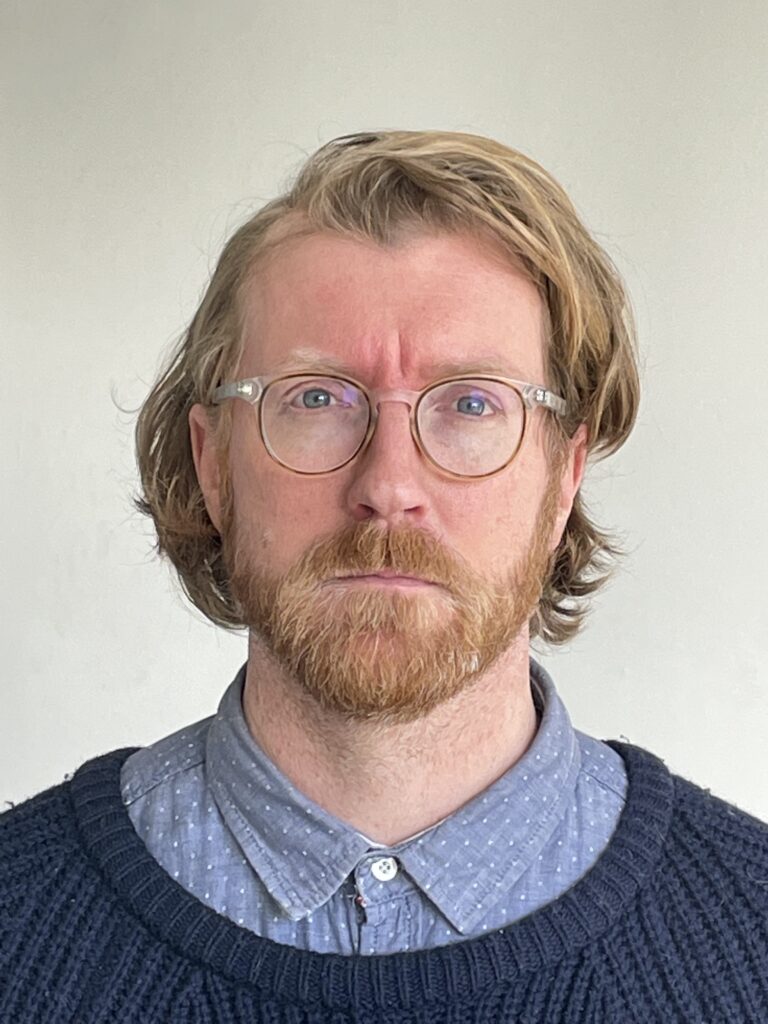
For our eighth display from the Bonington Archive, we are looking at an exhibition in our more recent history: House of Wisdom (September 27th – October 27th 2018). This exhibition was staged in the areas outside of the gallery and showcased hundreds of objects, books, articles, research and furniture which looked into the political power of books and libraries over the past century.
The central focus of the cabinet display is an A4 folio which contained over 100 newspaper articles around the closure of libraries, censorship of texts, new discoveries of ancient texts and political actions around libraries and freedom of speech. This is displayed alongside photo documentation, the original exhibition text, and a flyer listing the artists involved in the original project.
As part of the original project, there was a full public programme which took place across the city. All the recorded content from those talks, film screenings, and performances can be found by following this link
Archive cabinet was curated by Alex Jovčić-Sas, the original exhibition by Cüneyt Çakırlar
Please note, this is an archive presentation of a historical exhibition which occurred in 2018.
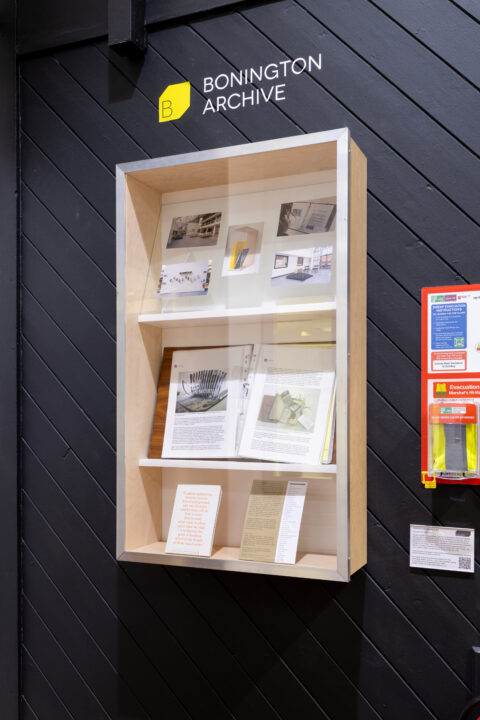
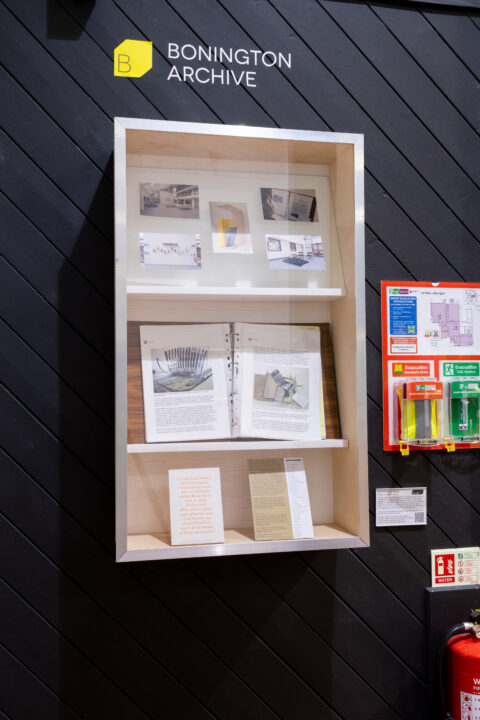
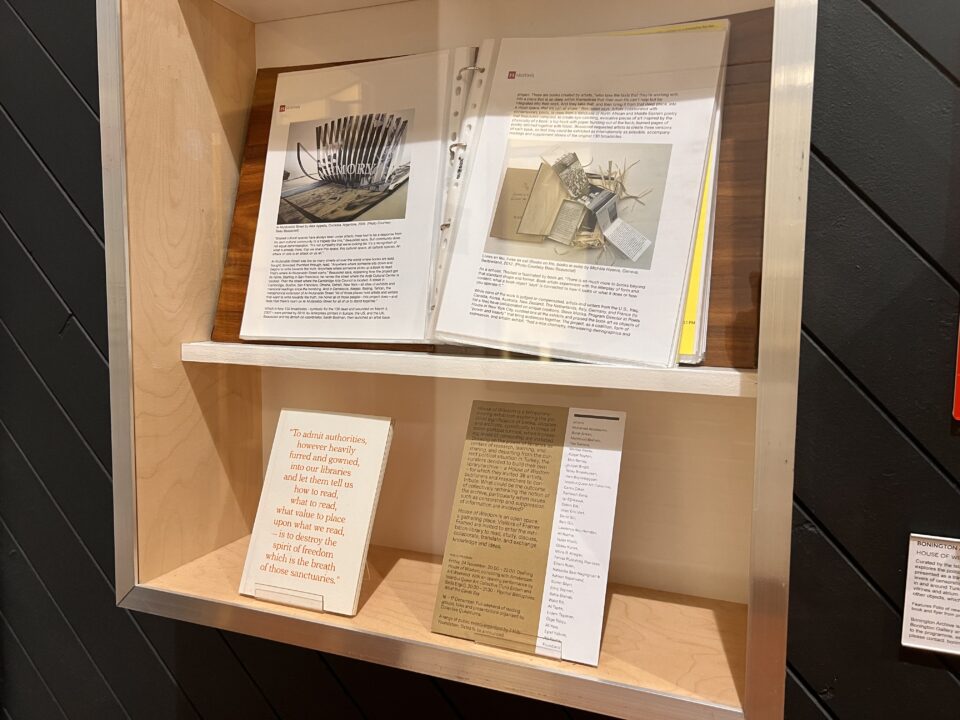
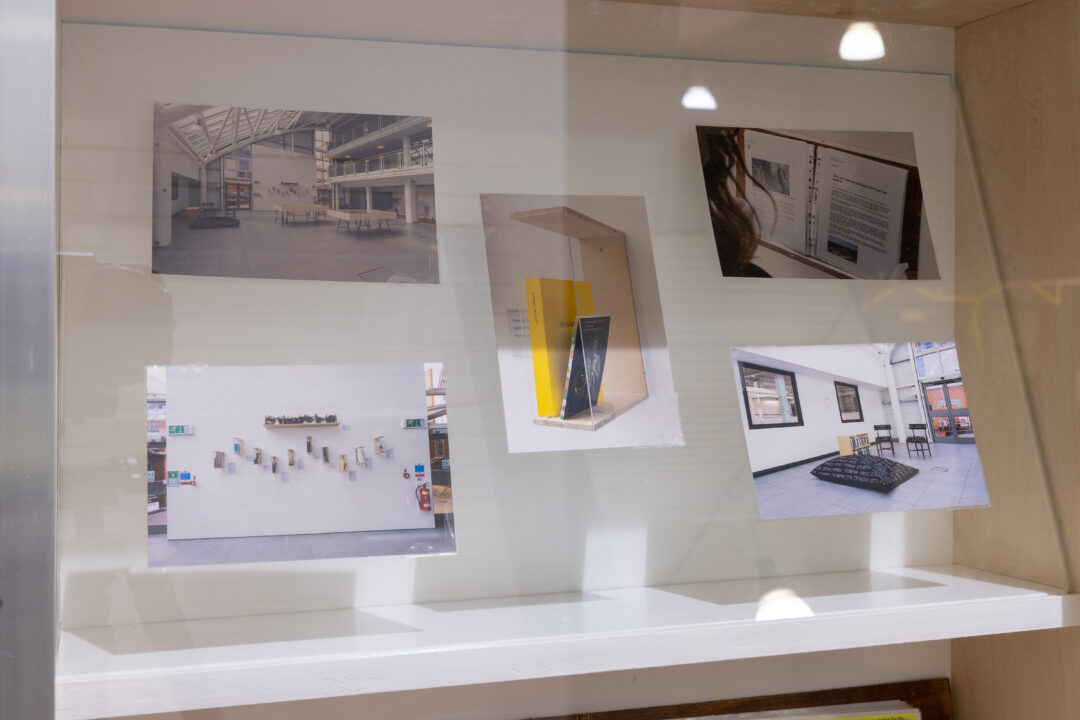
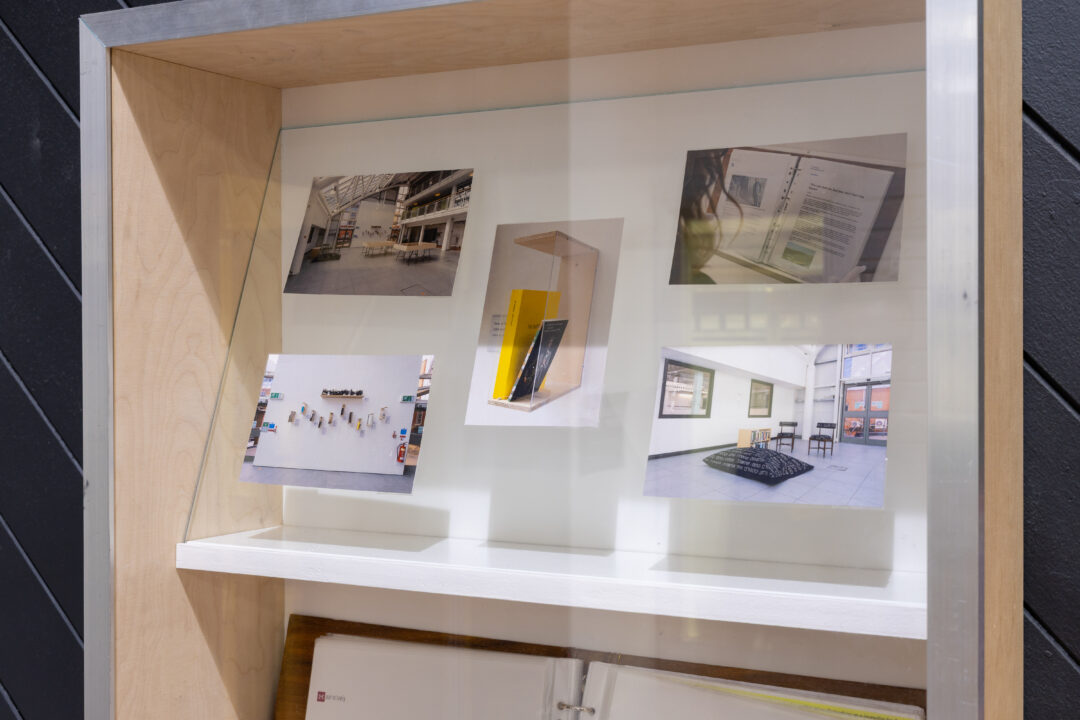
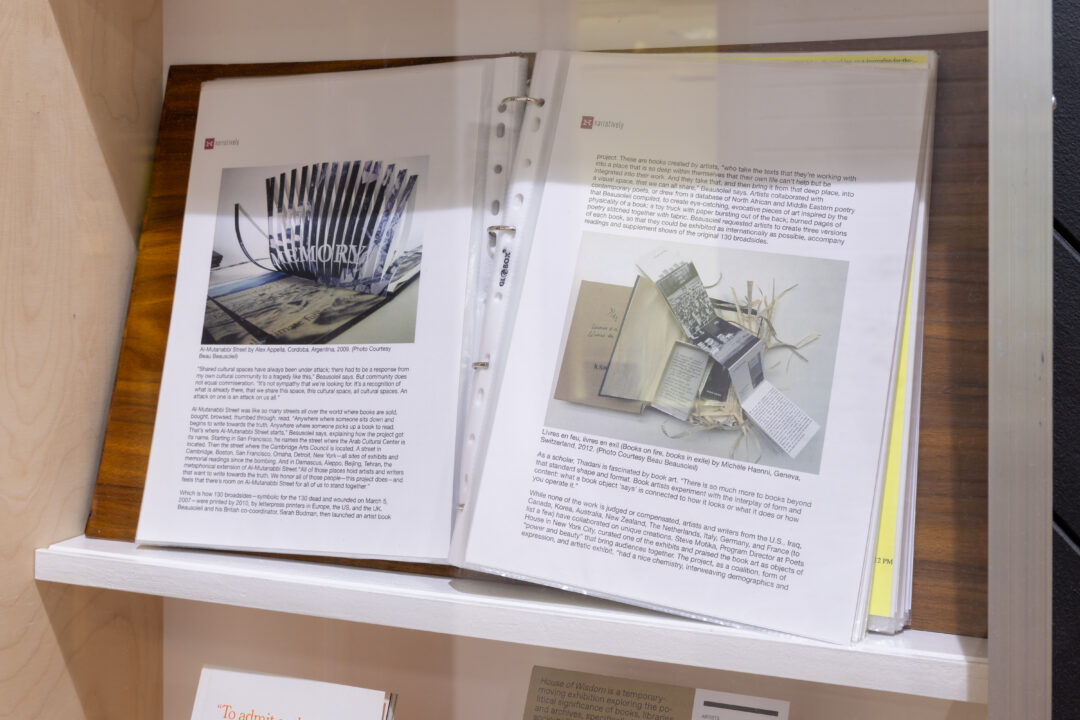
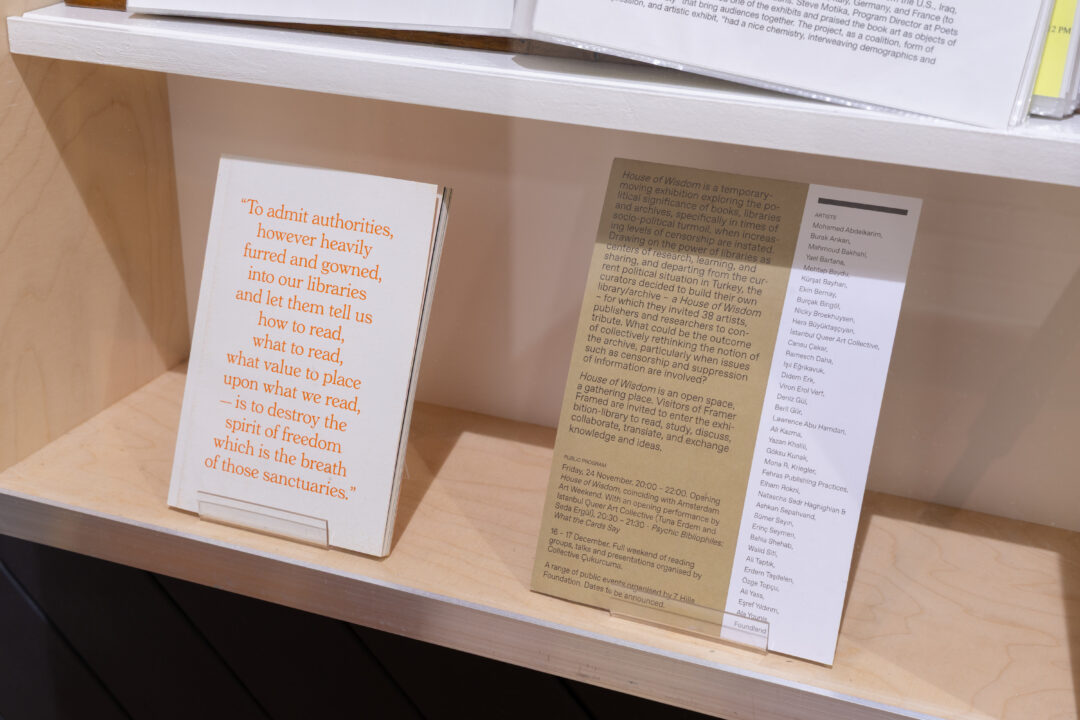
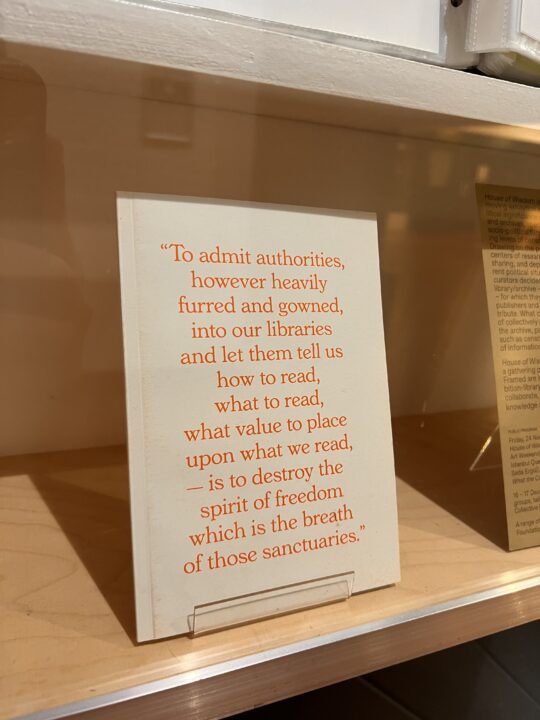
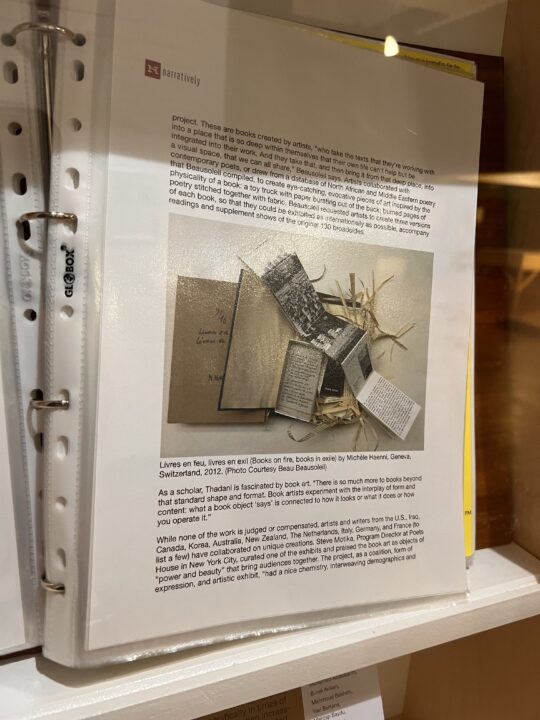
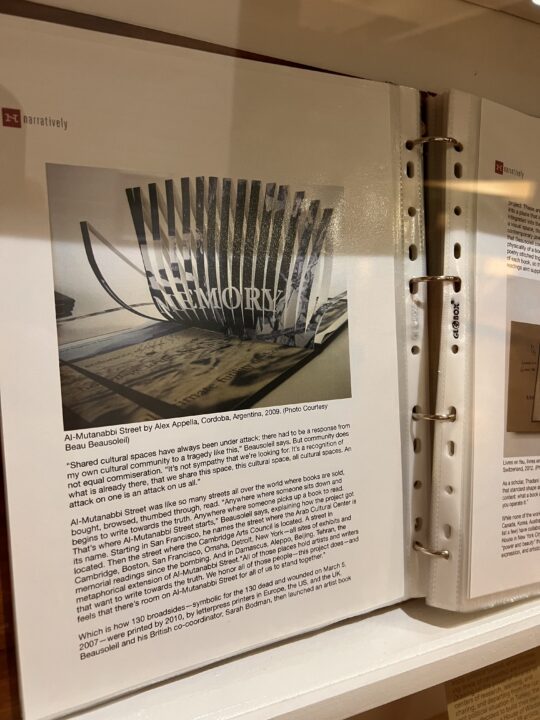
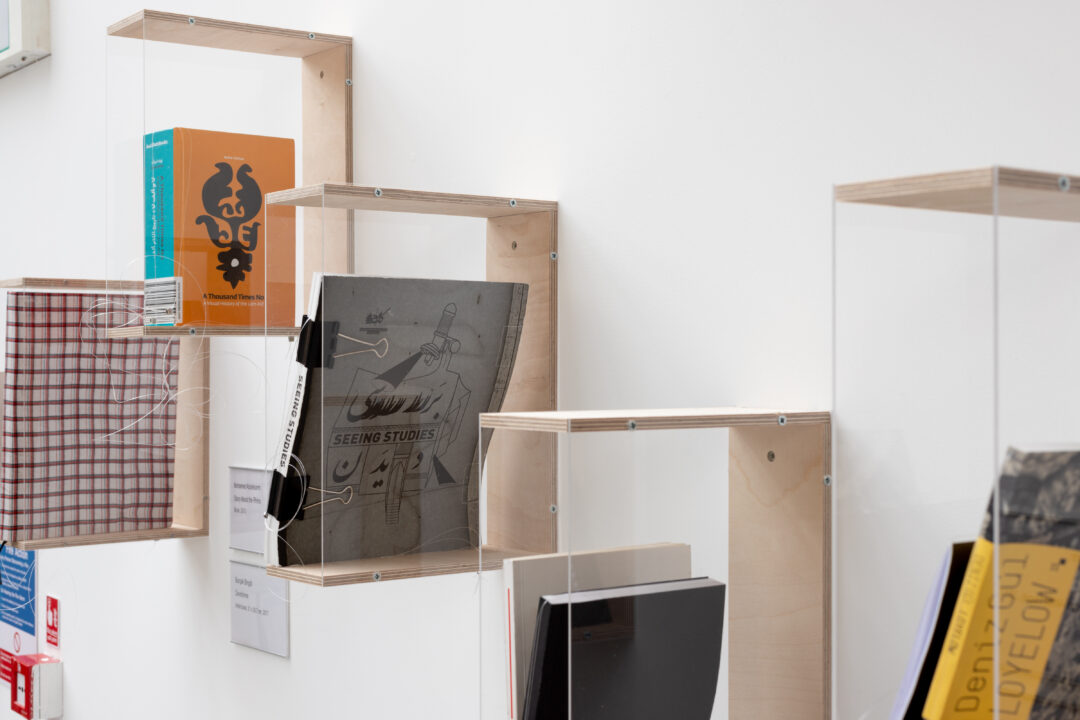
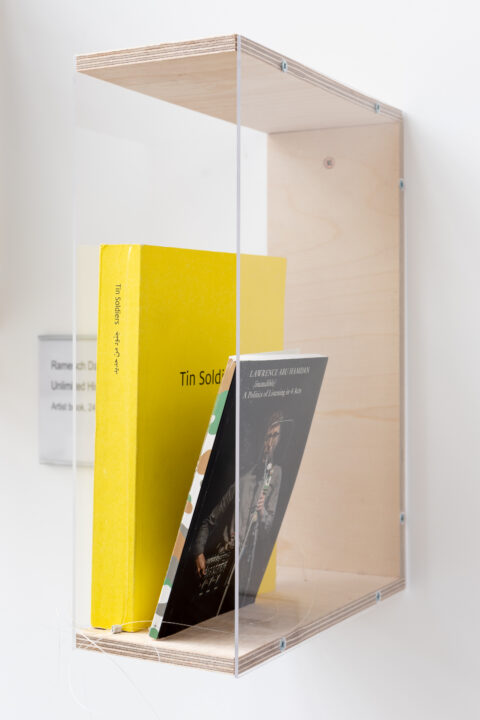
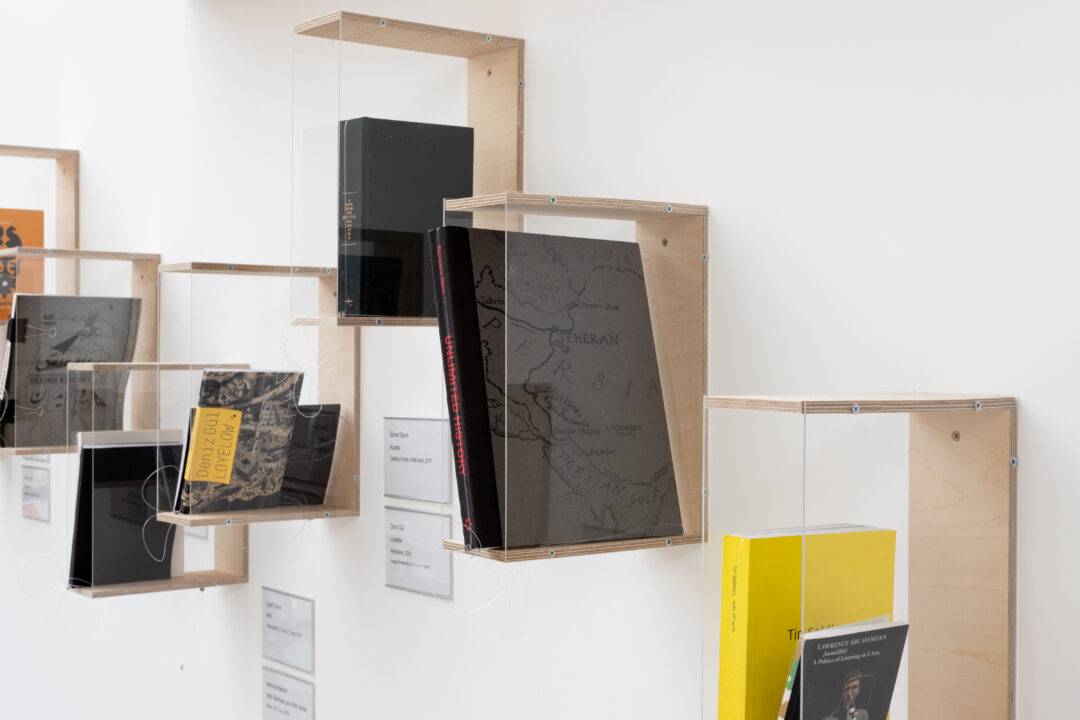
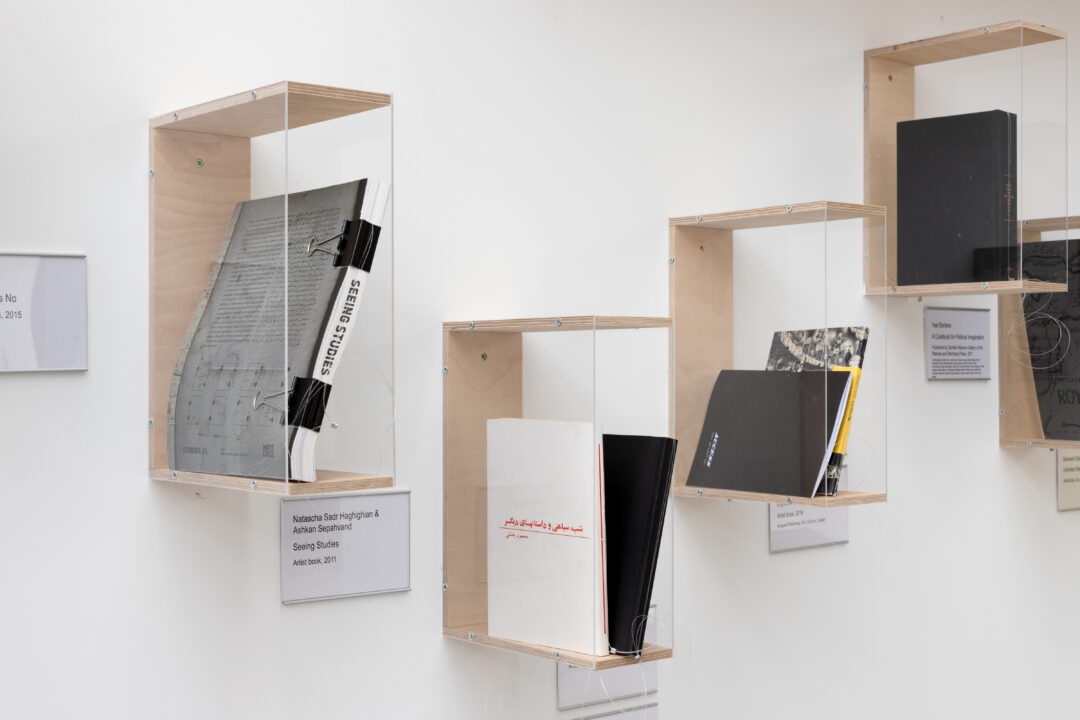
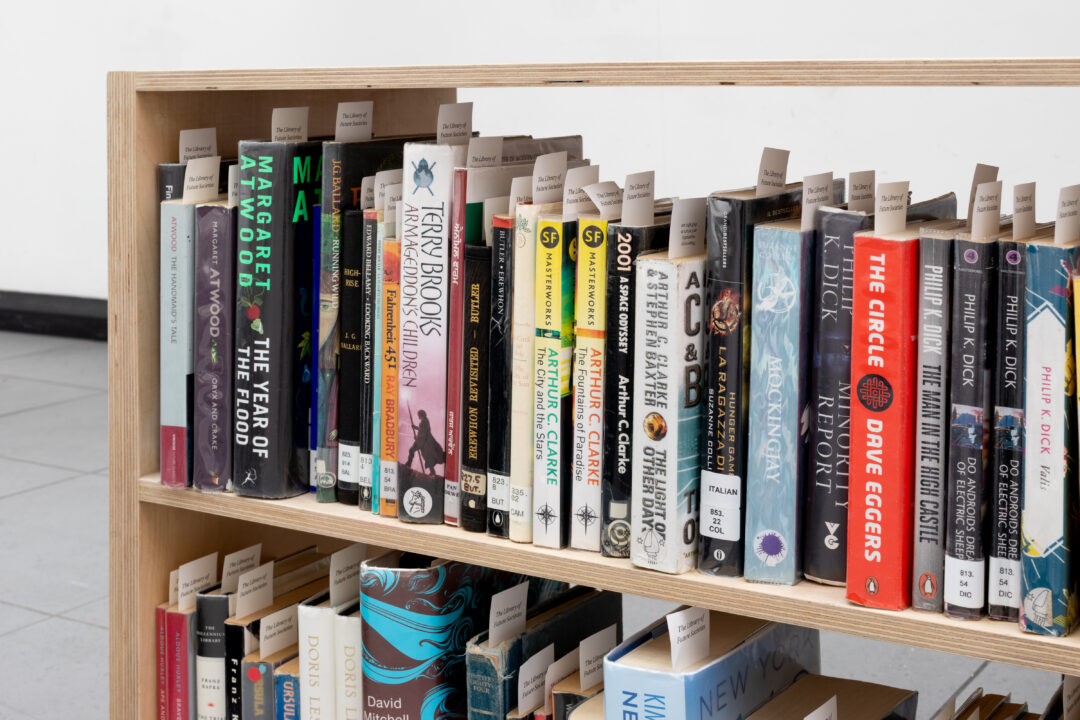
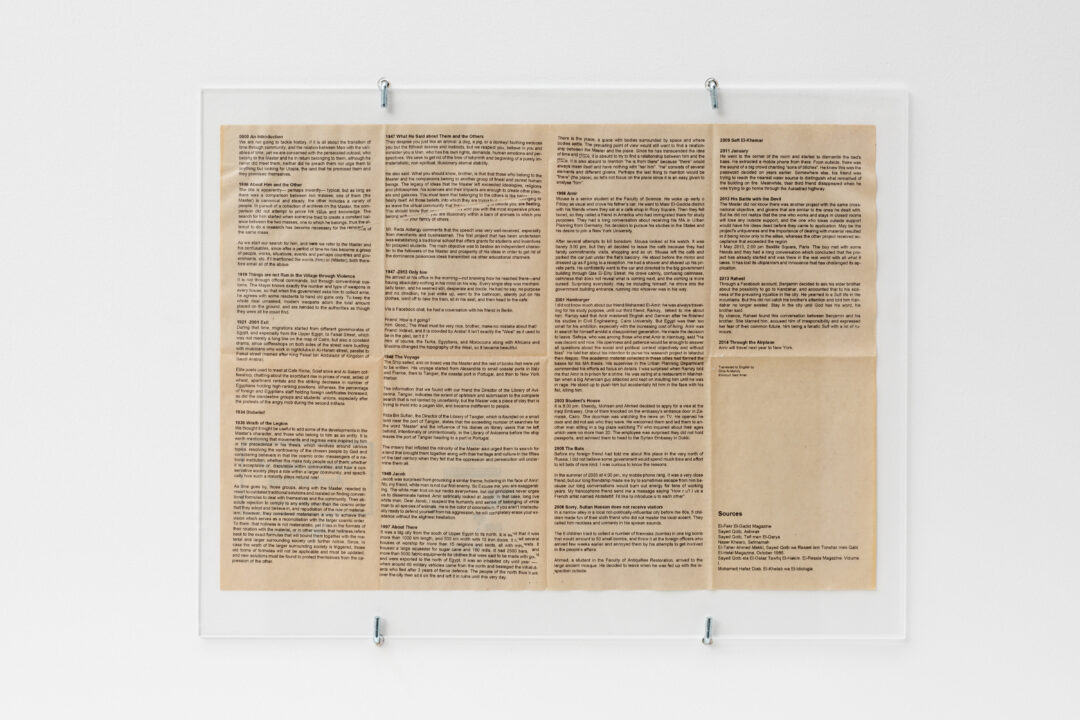
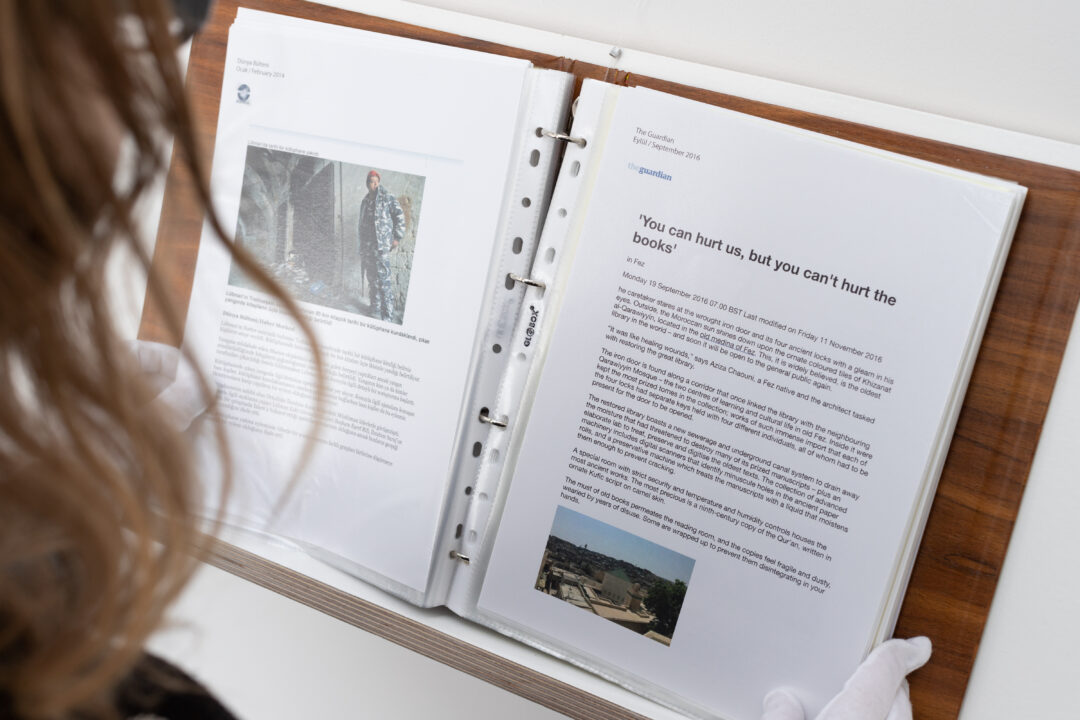
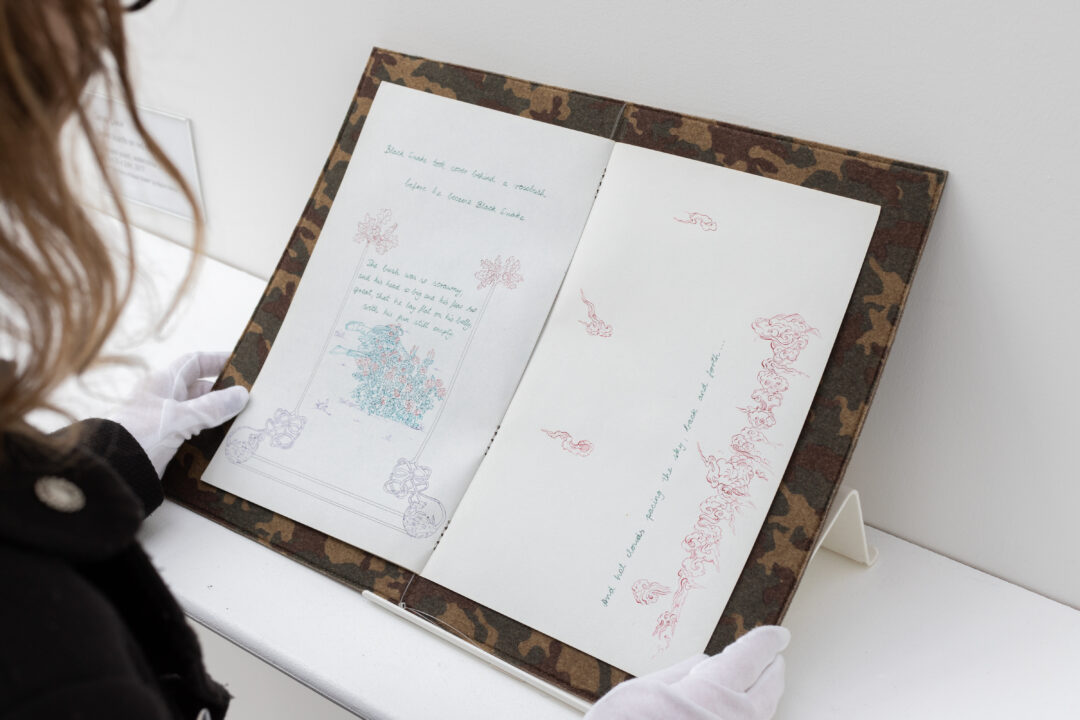
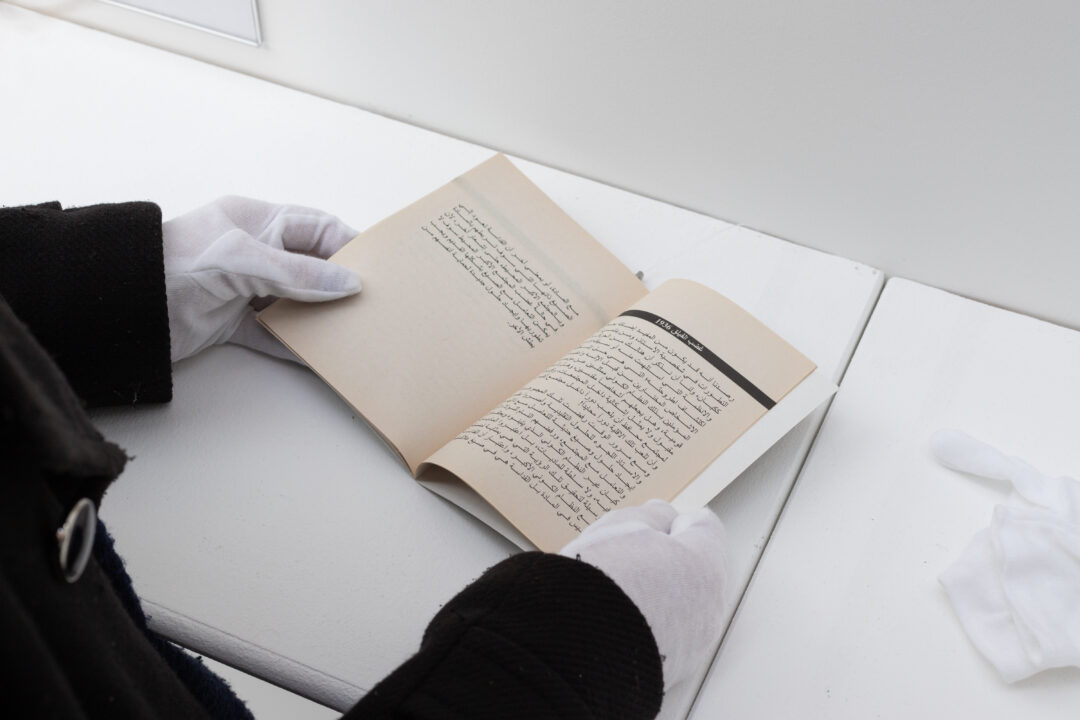
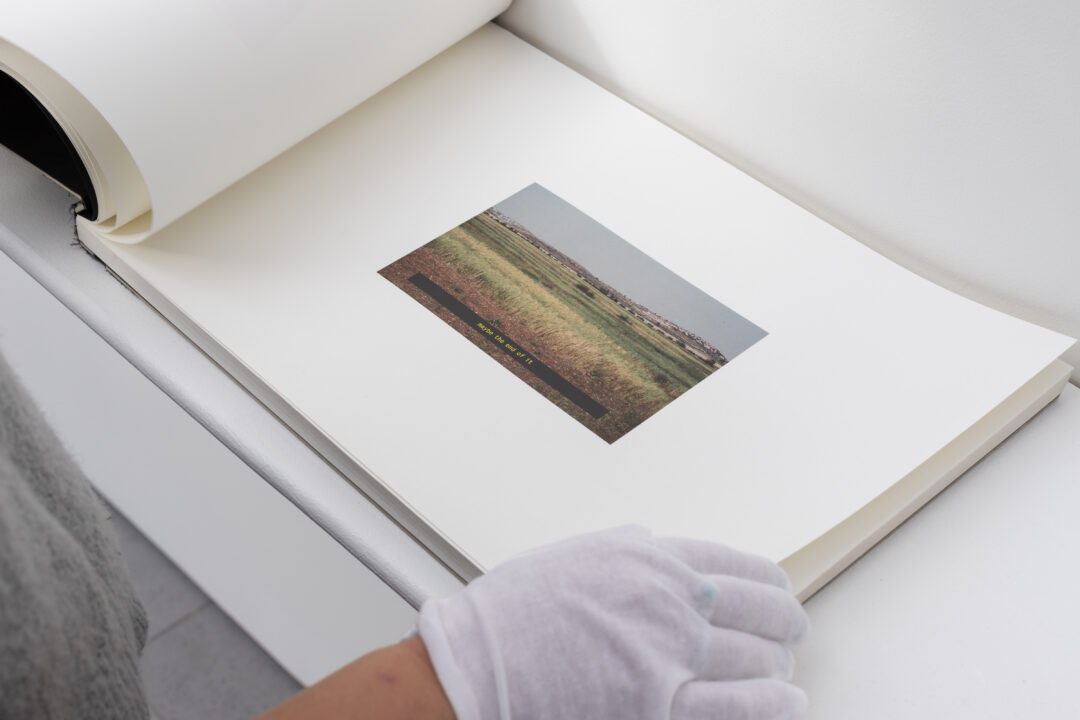
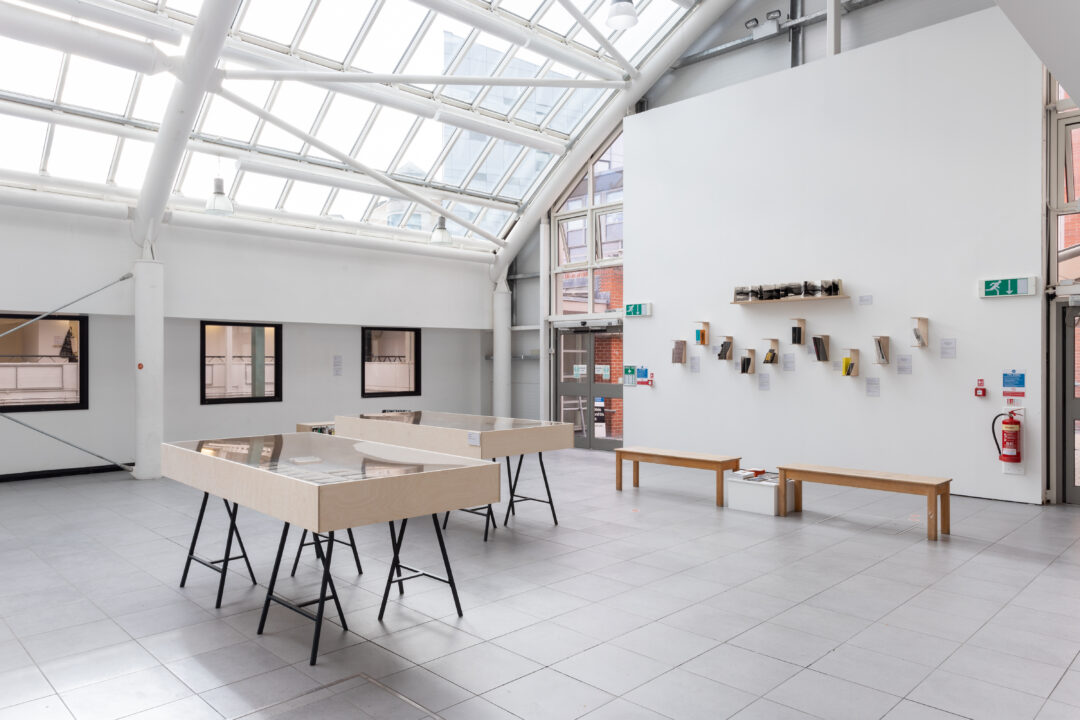
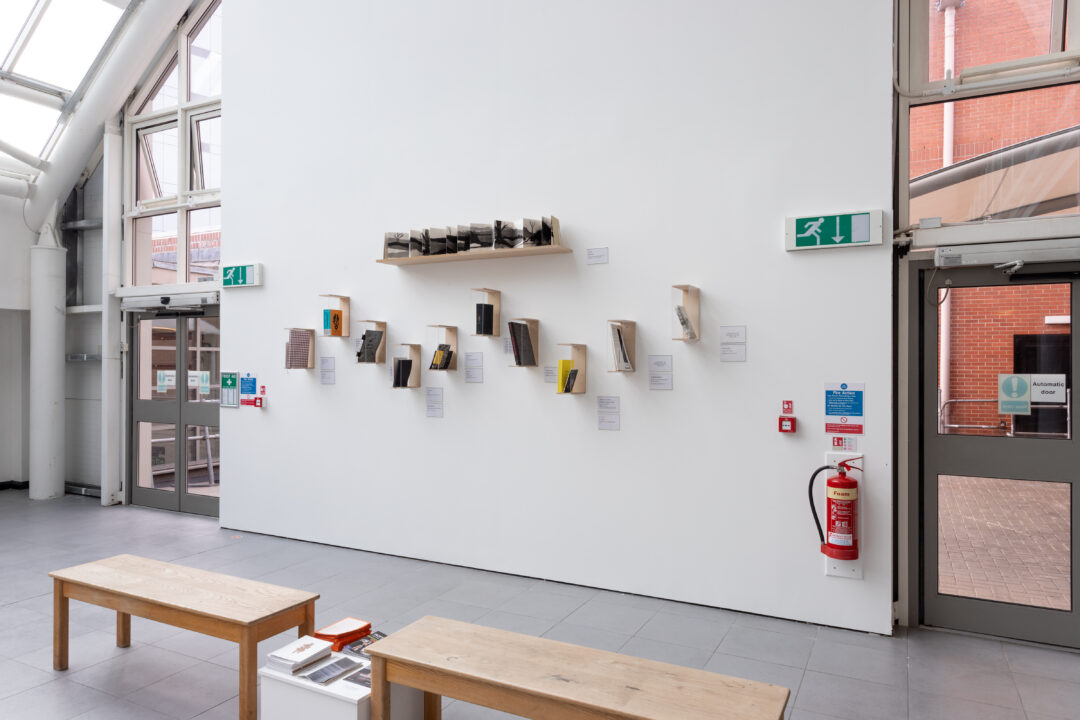
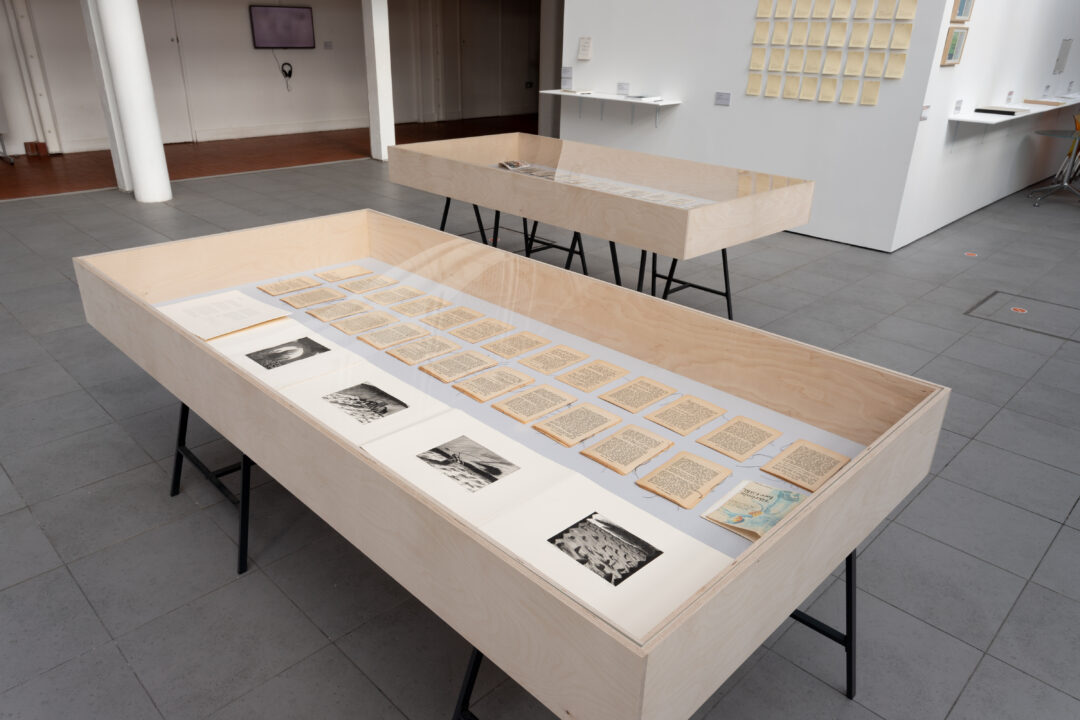
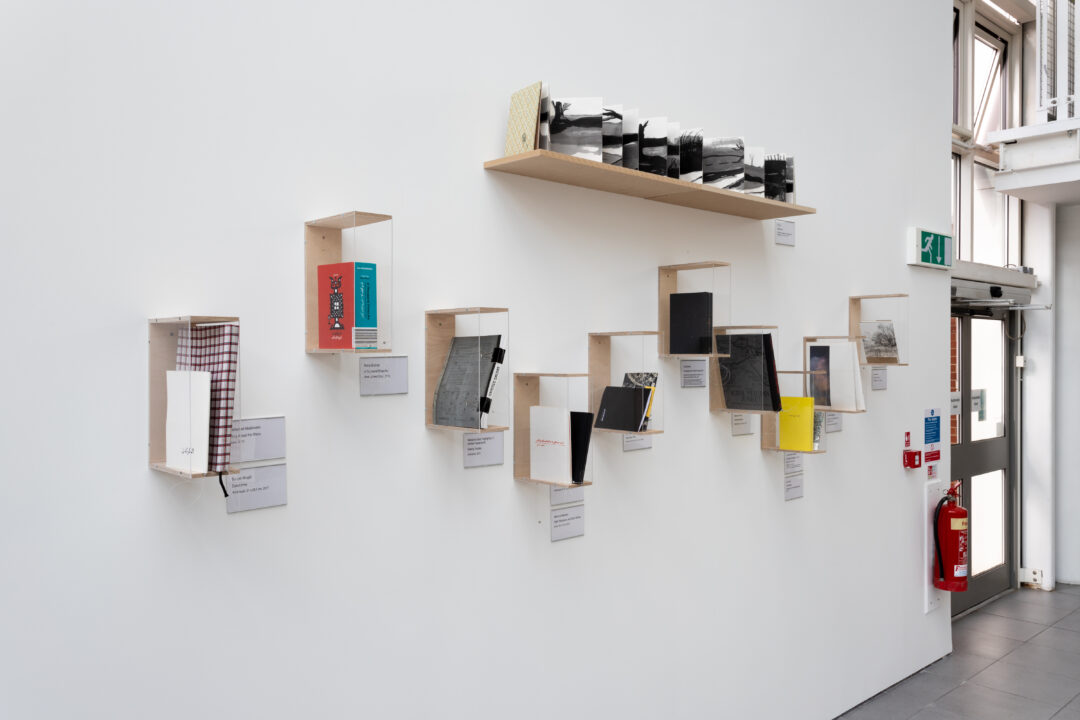
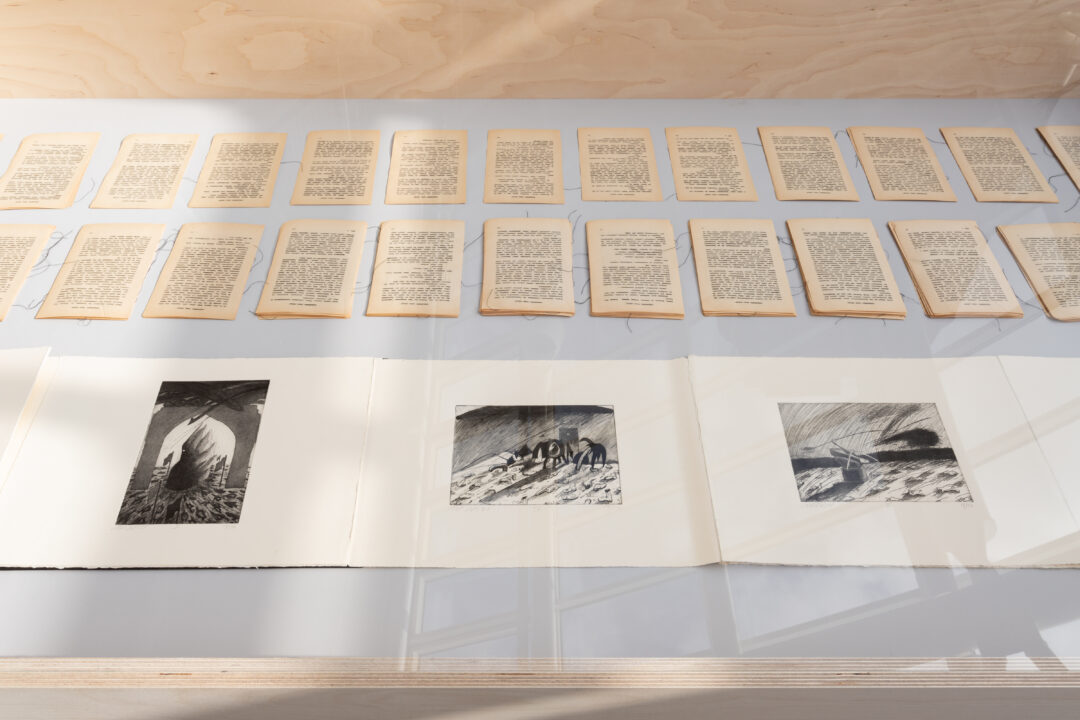
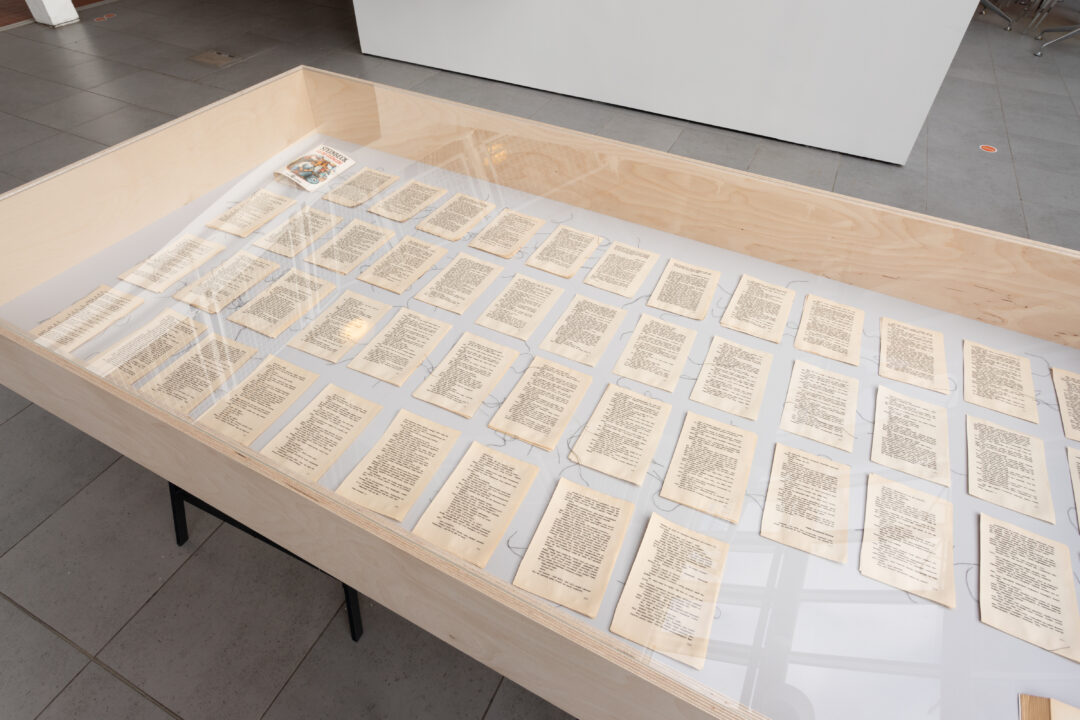
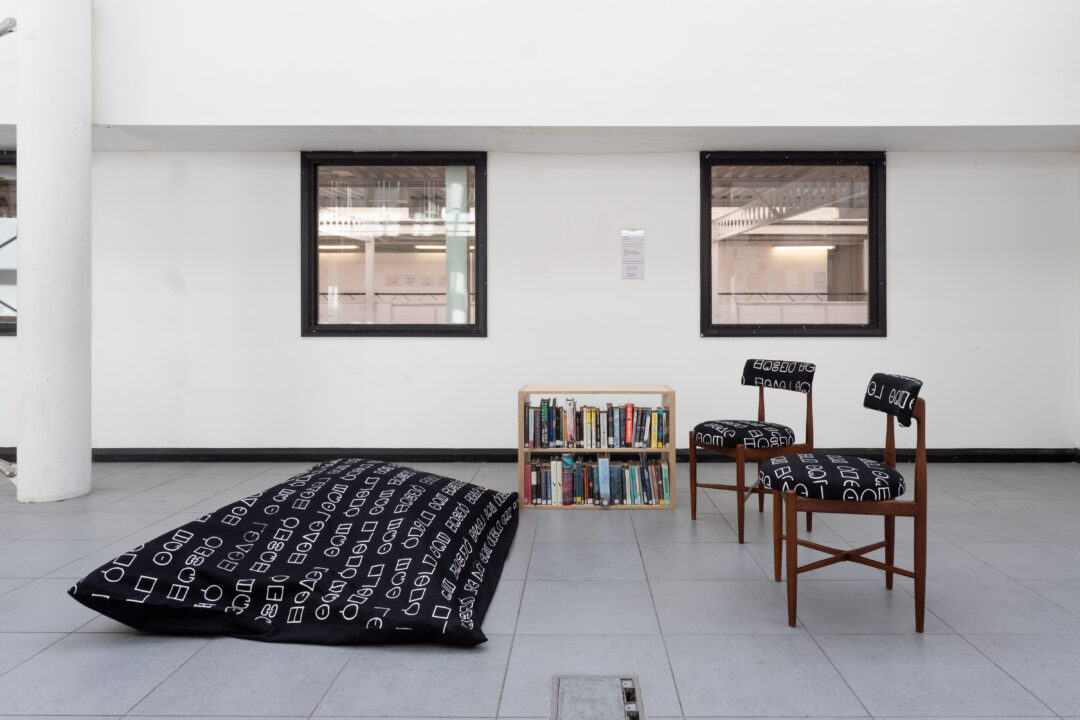
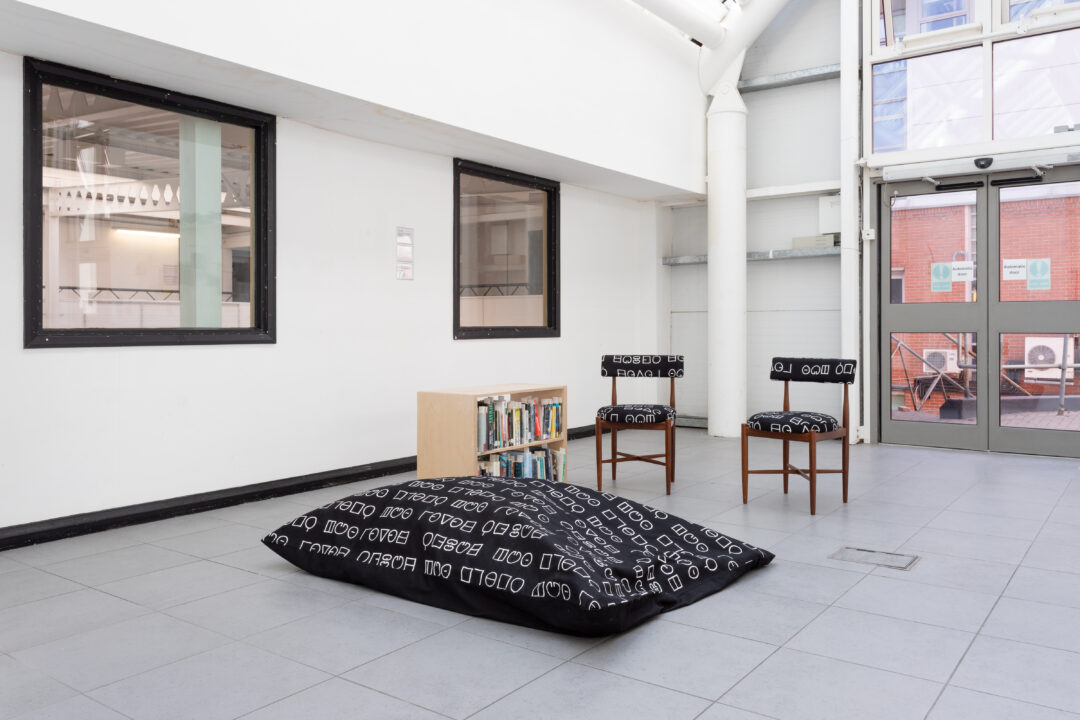
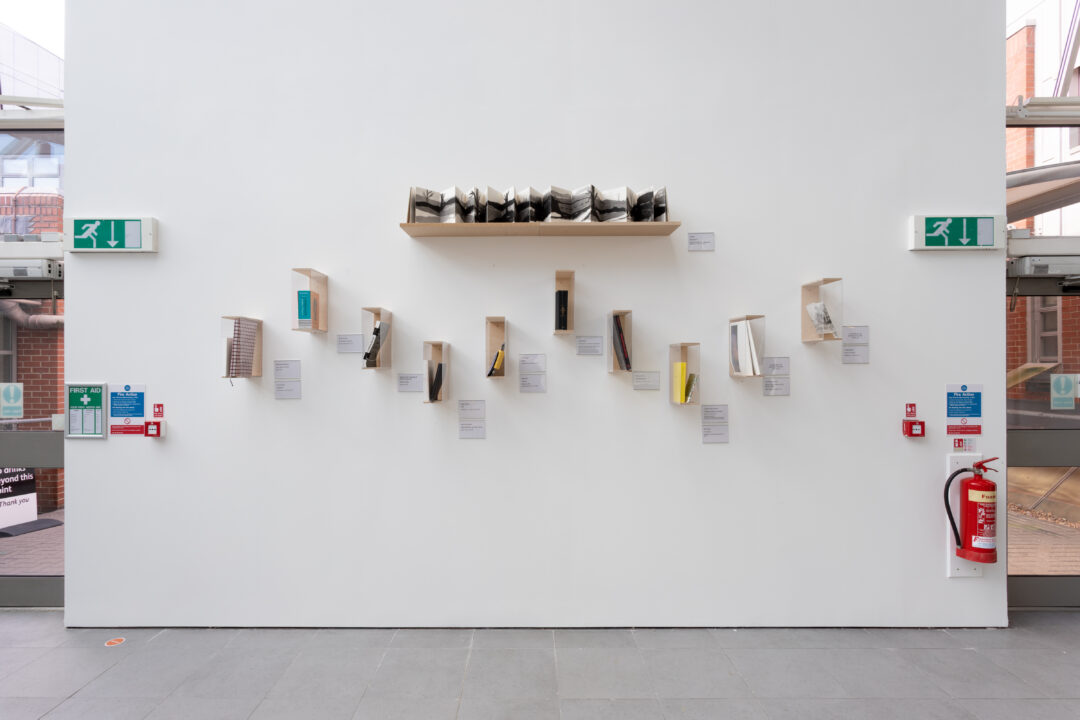
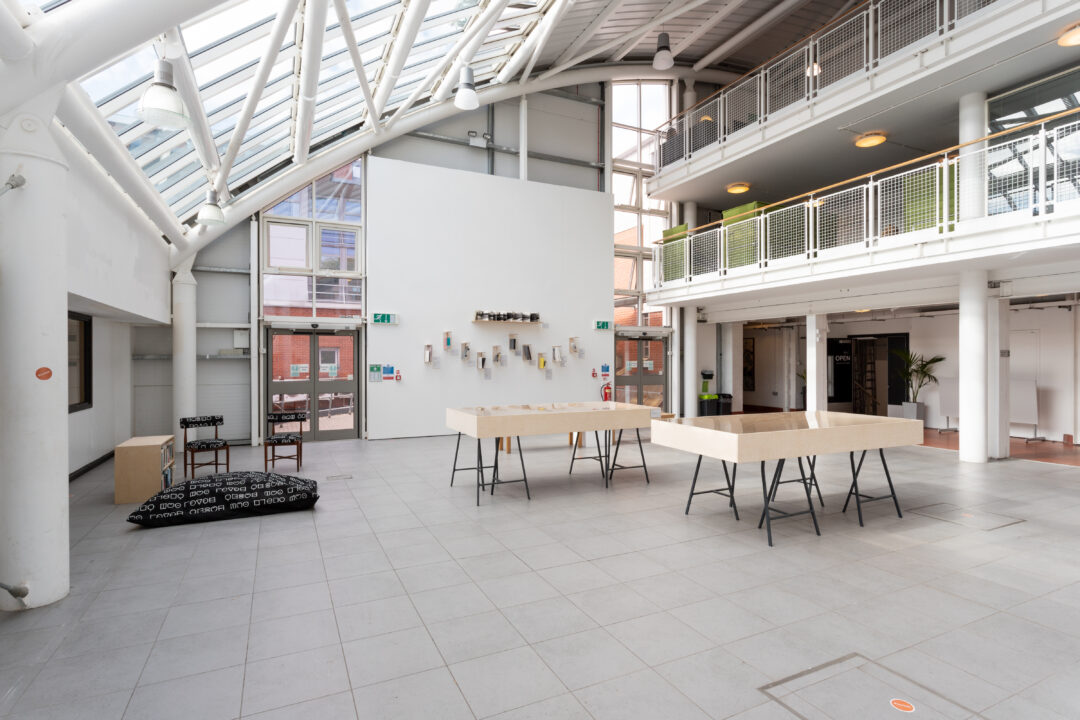
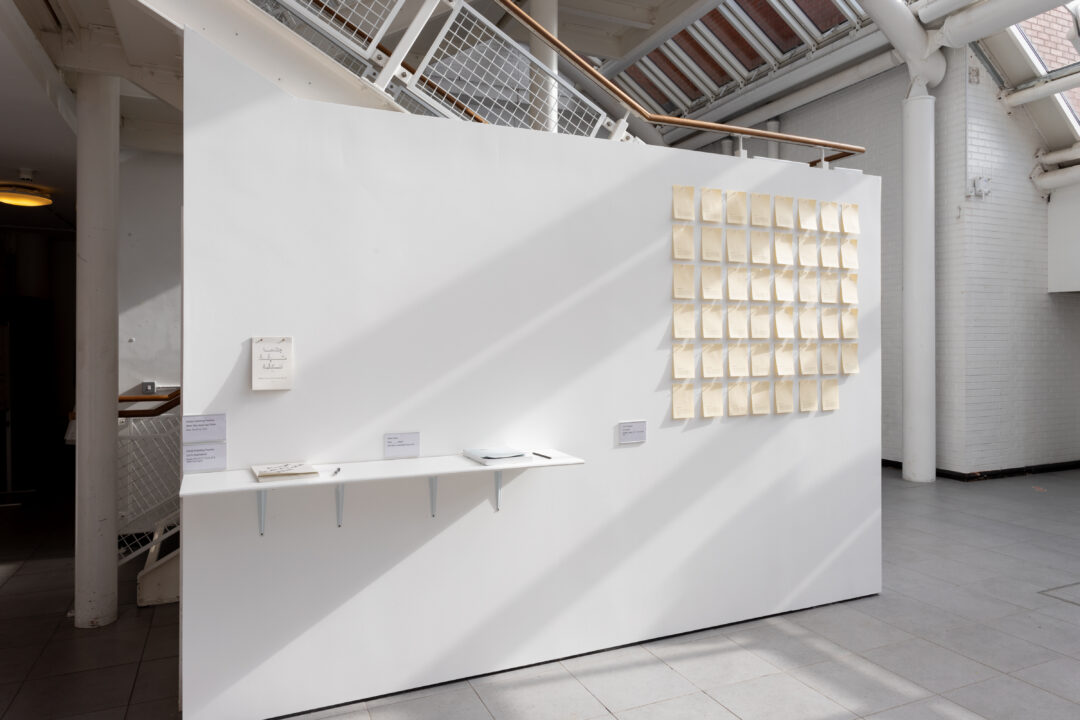
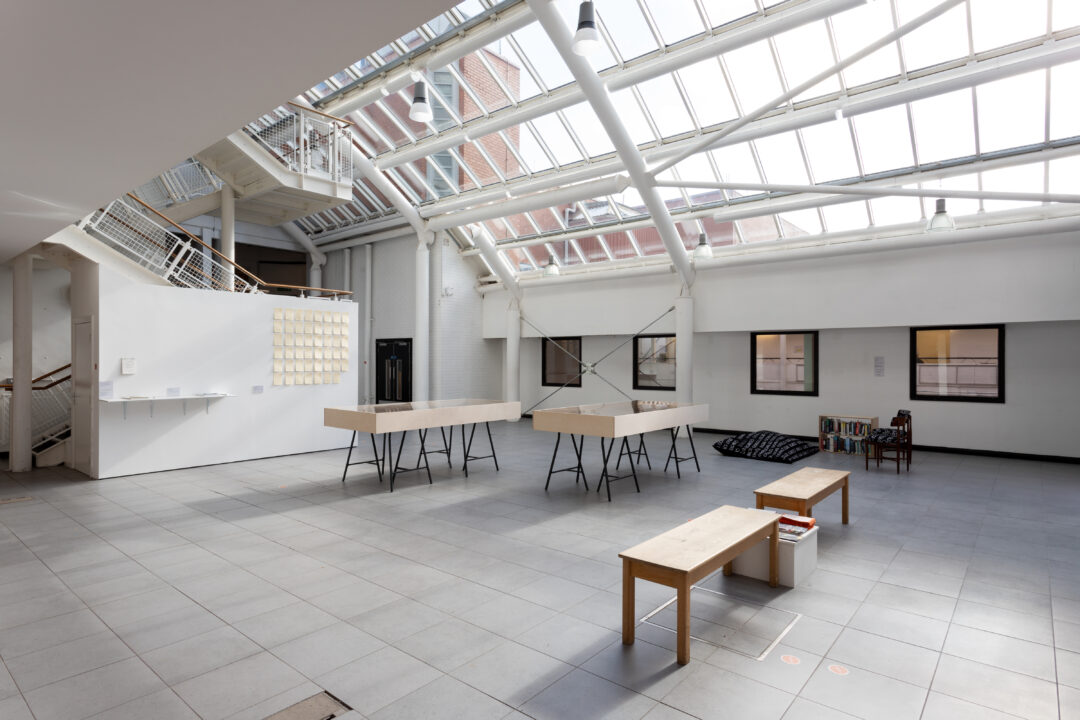
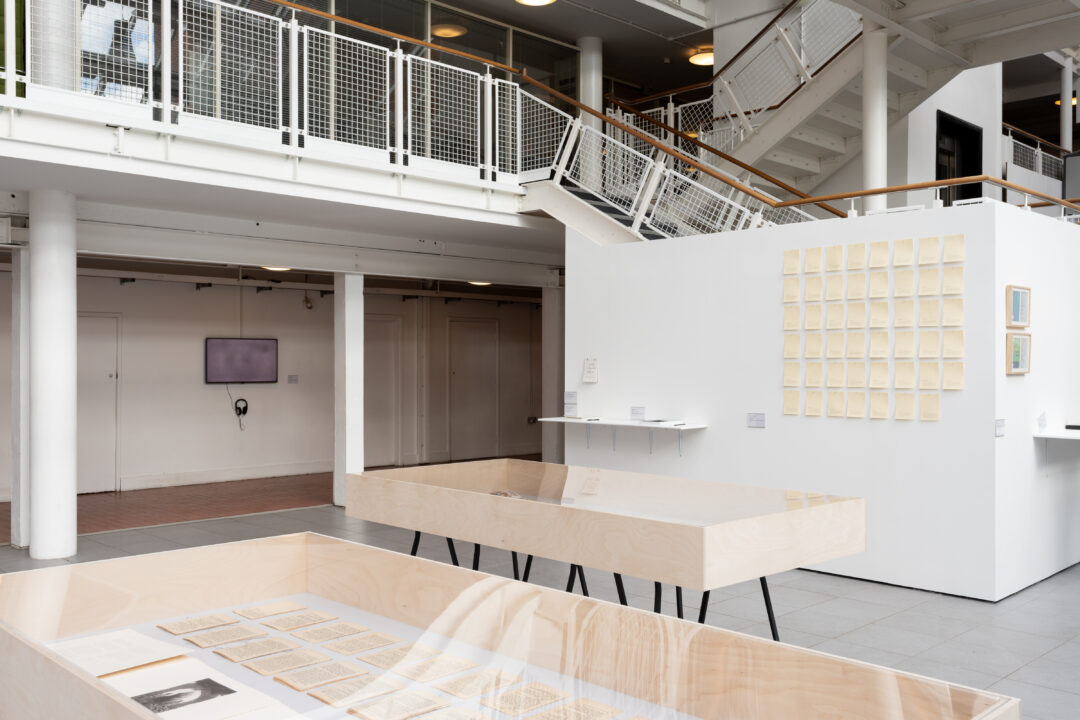
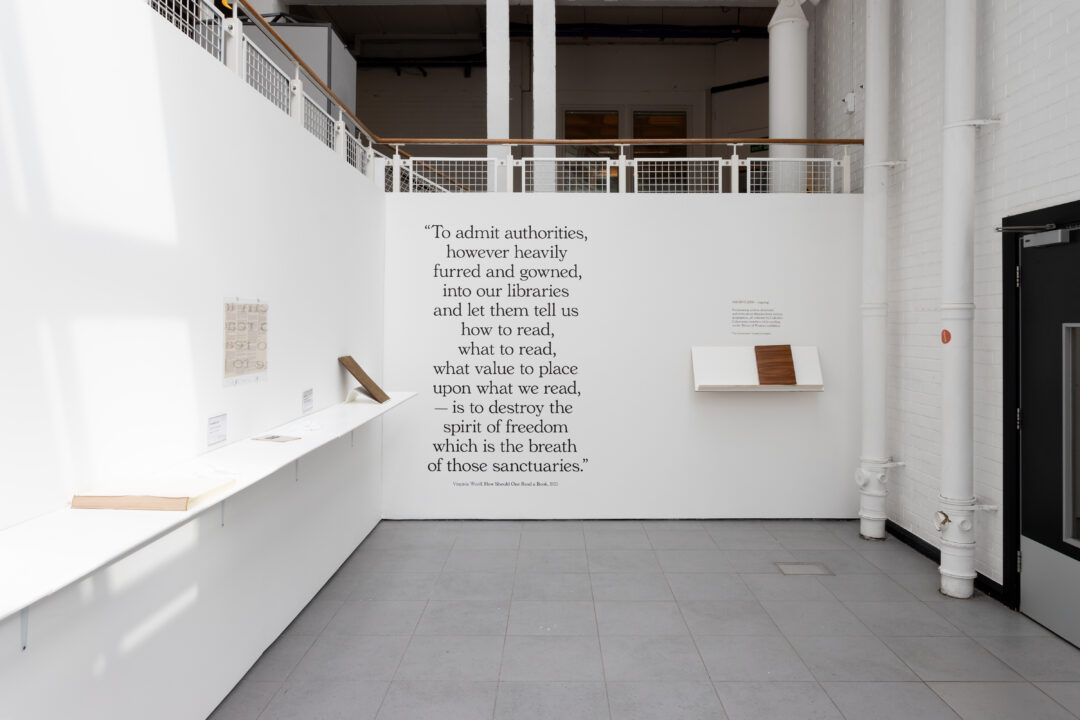
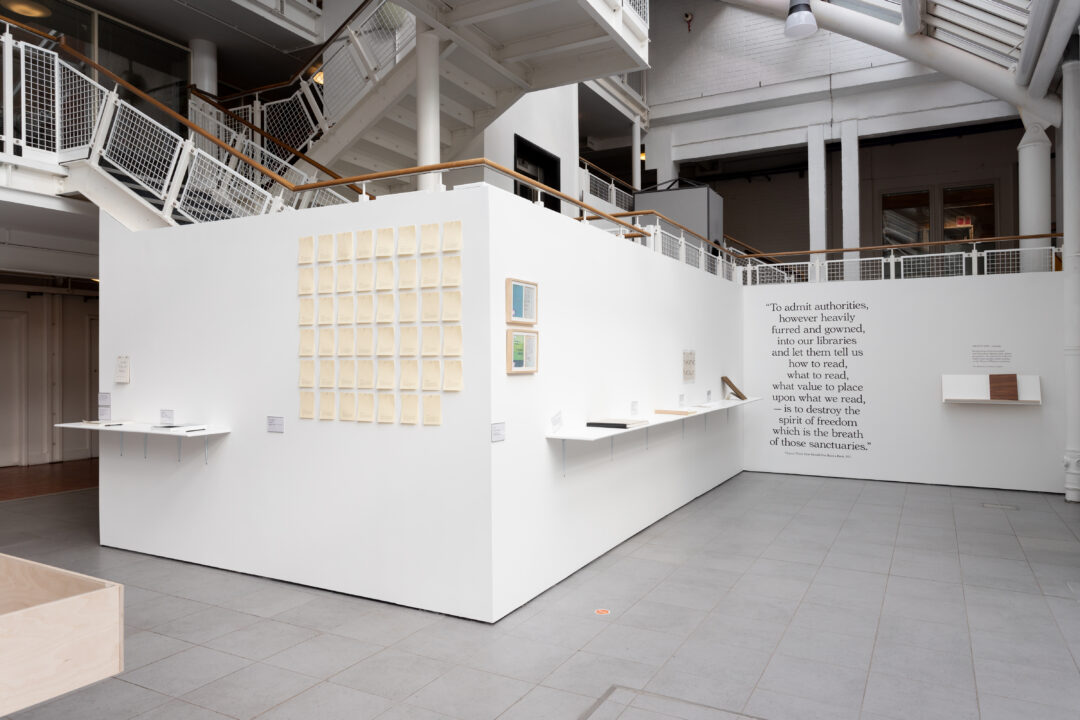
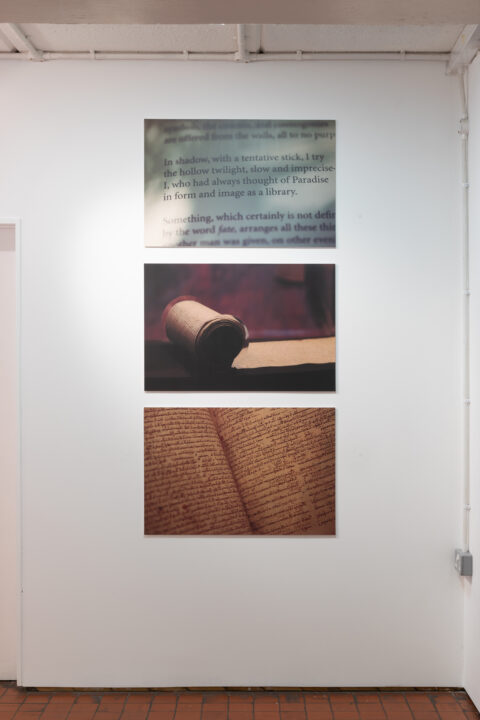
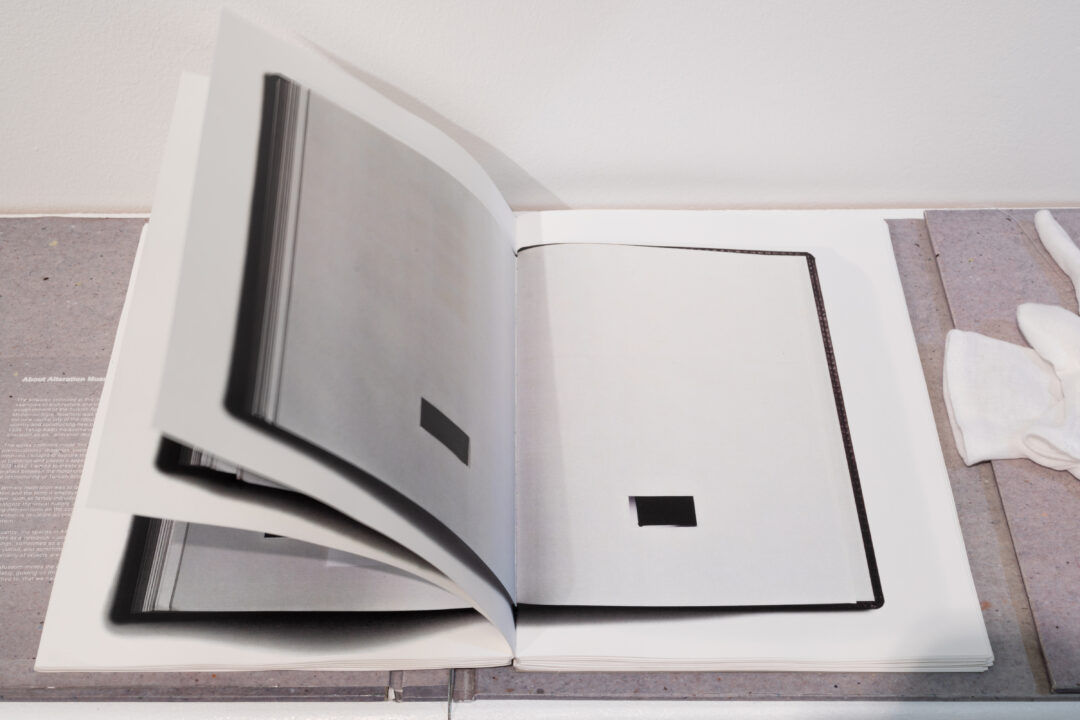
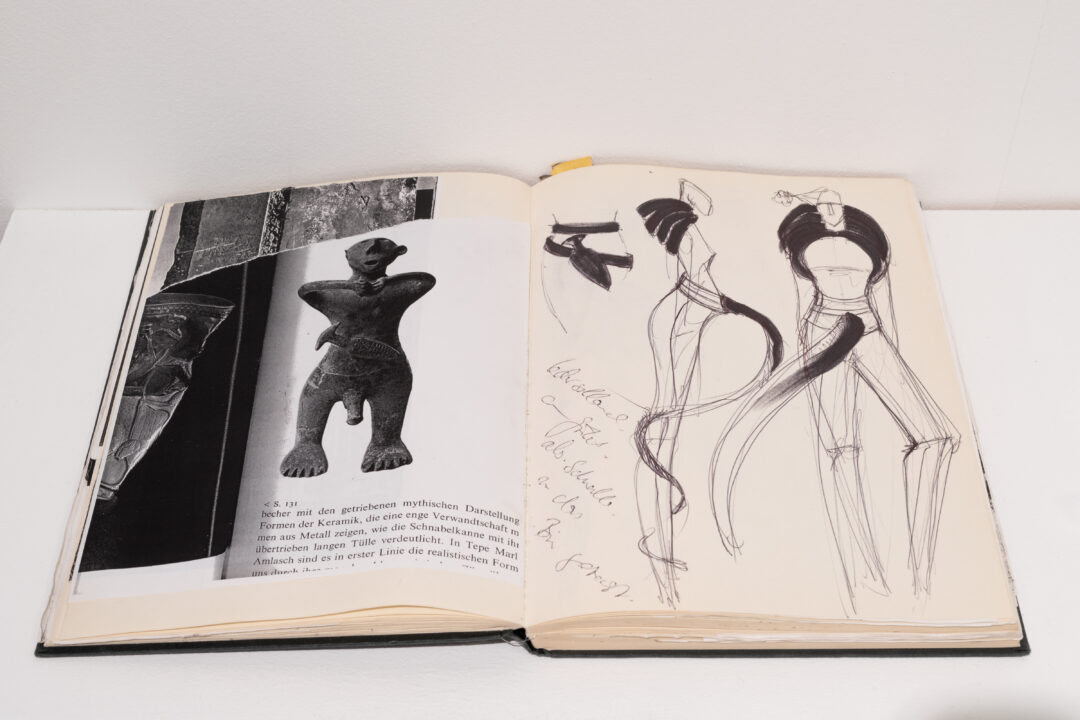
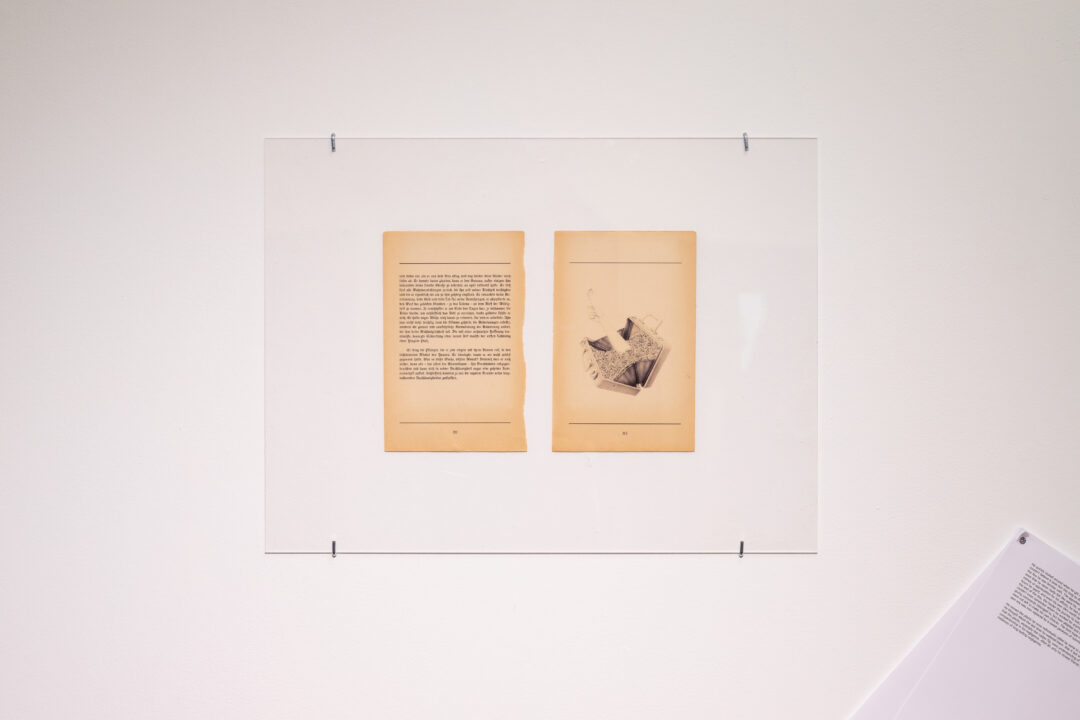
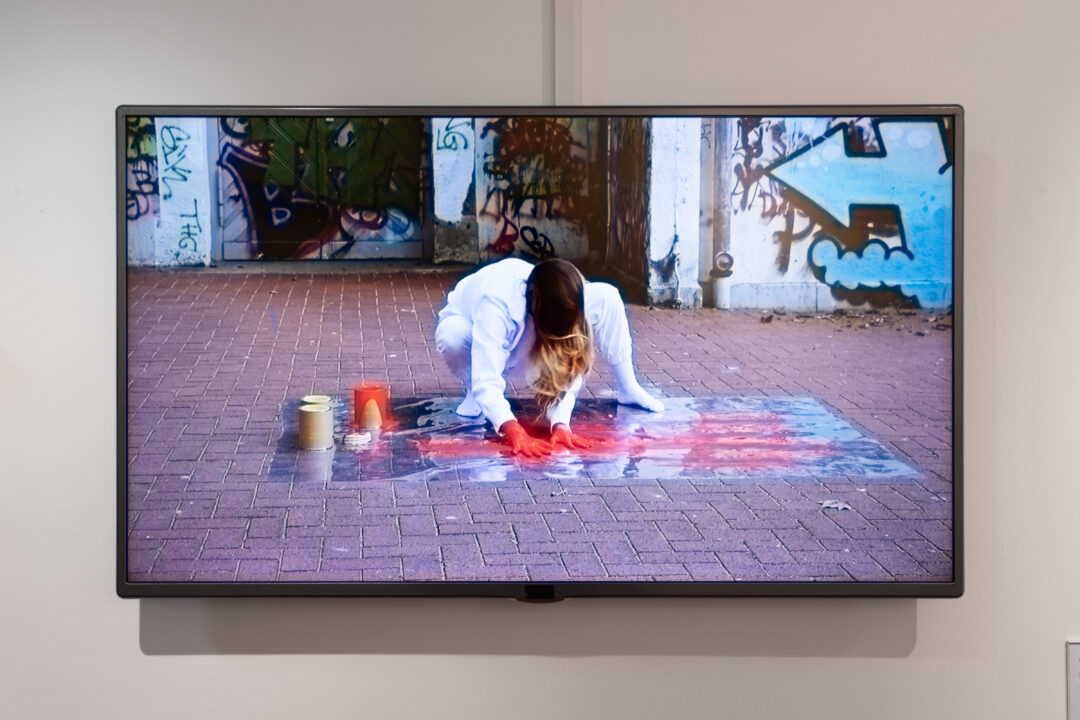
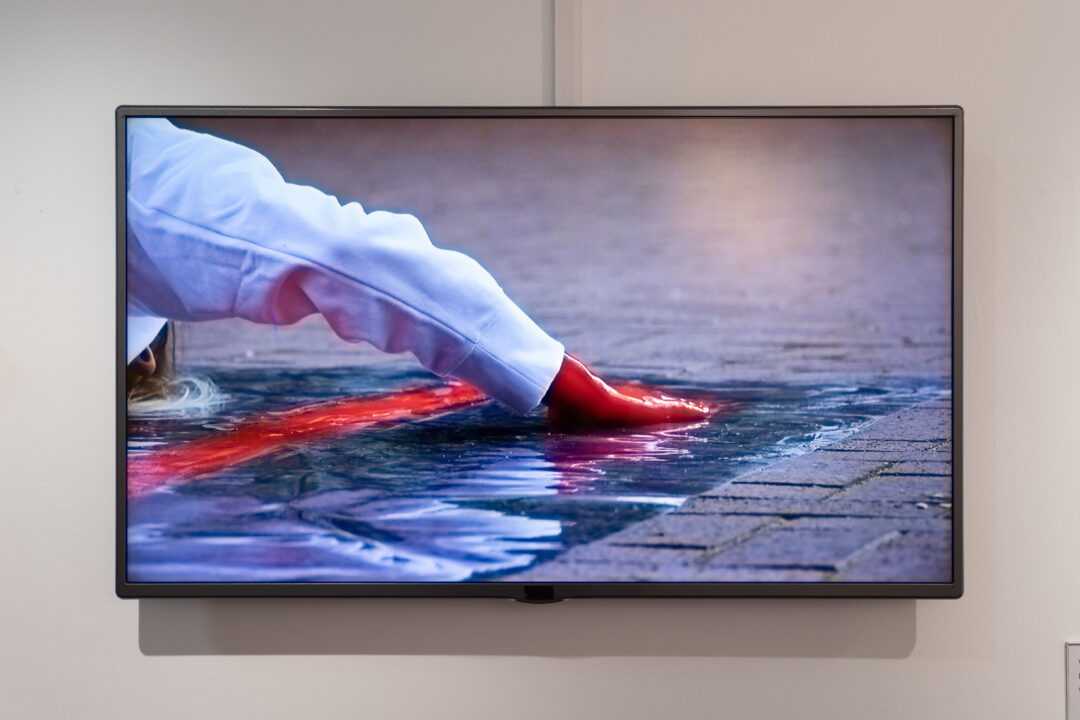
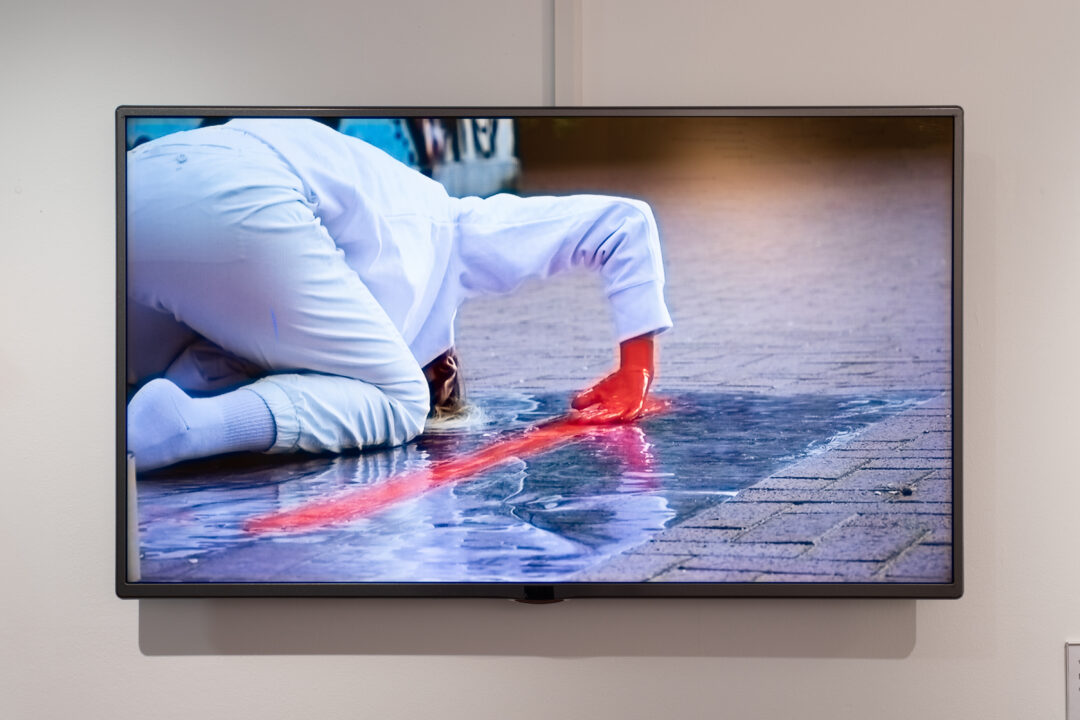
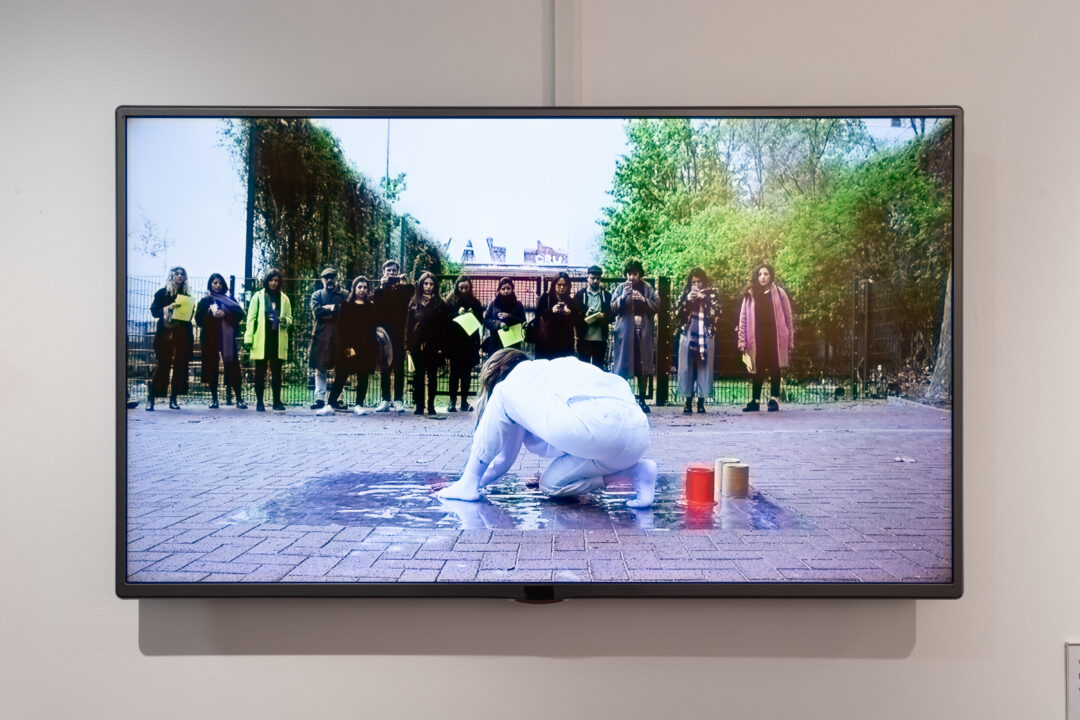
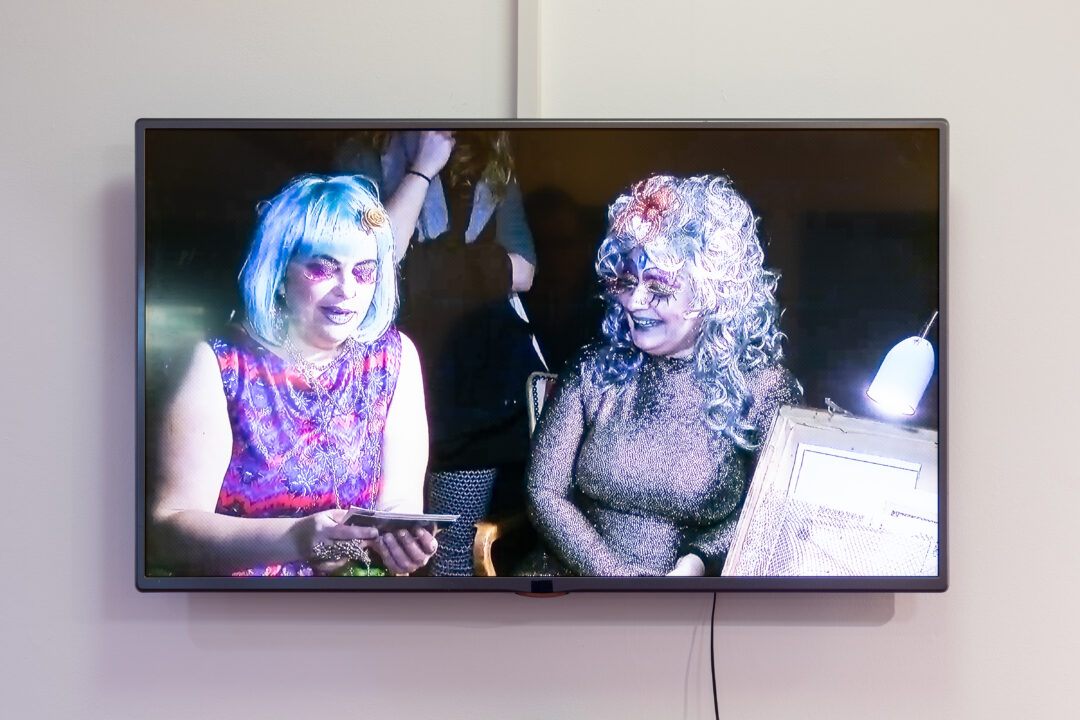
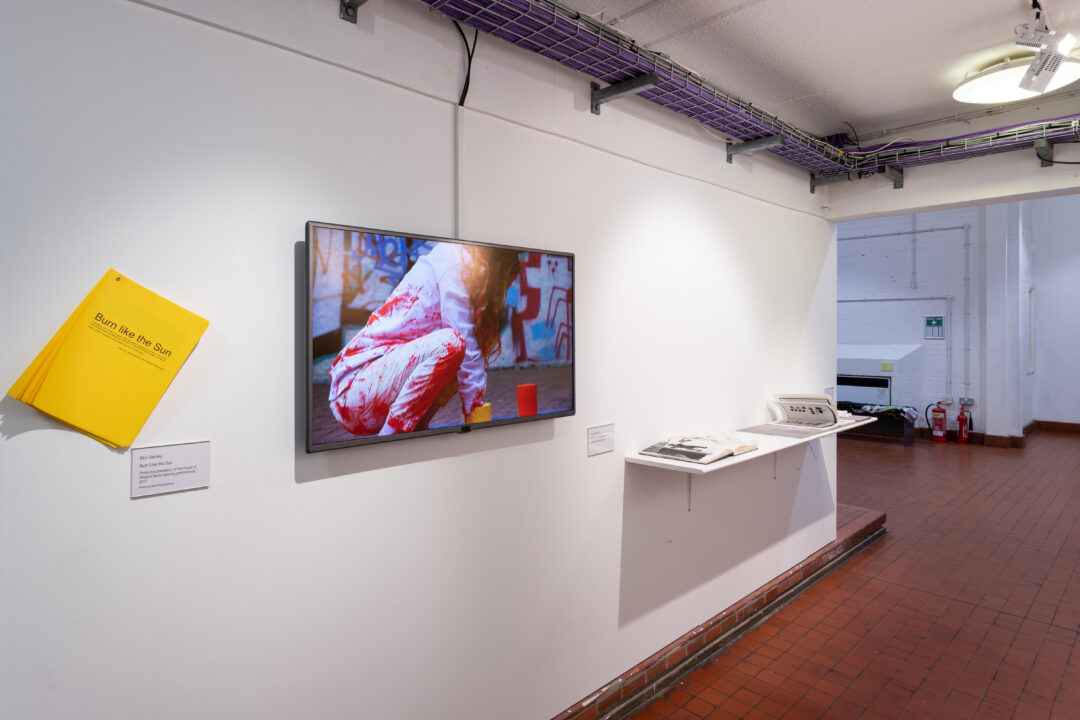
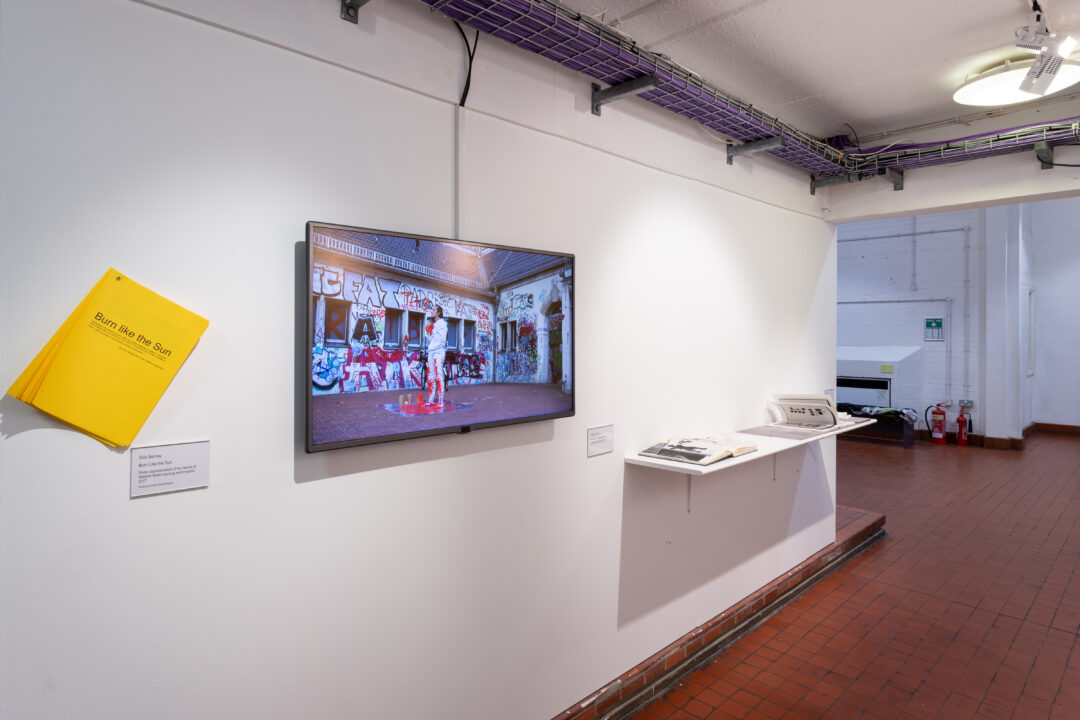
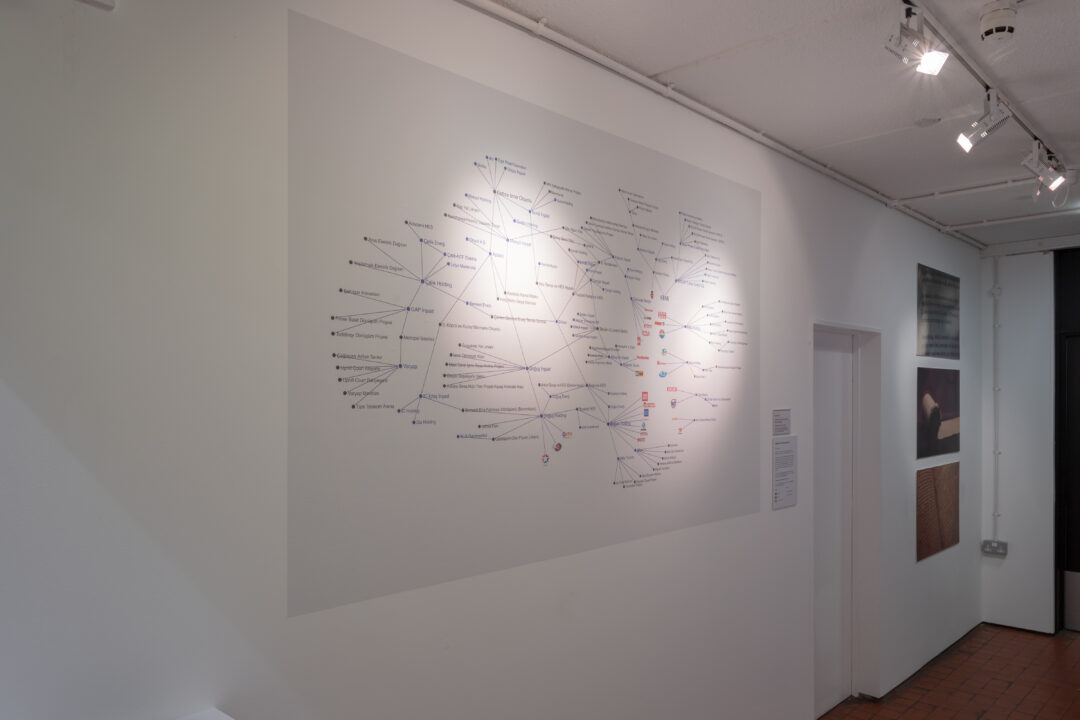
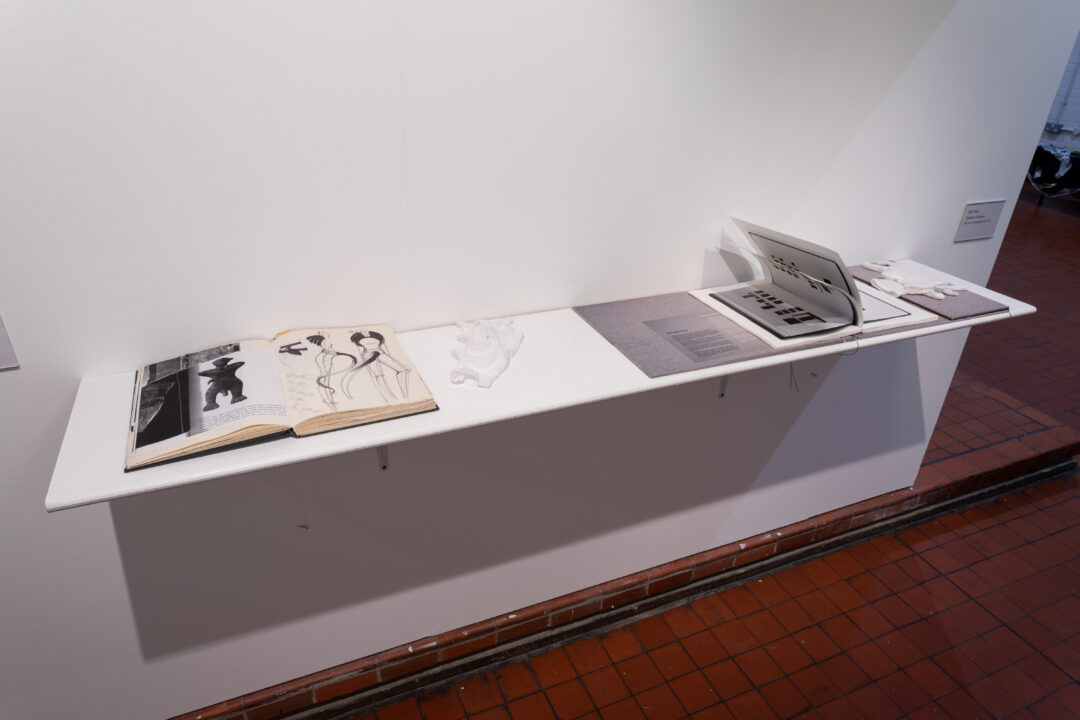
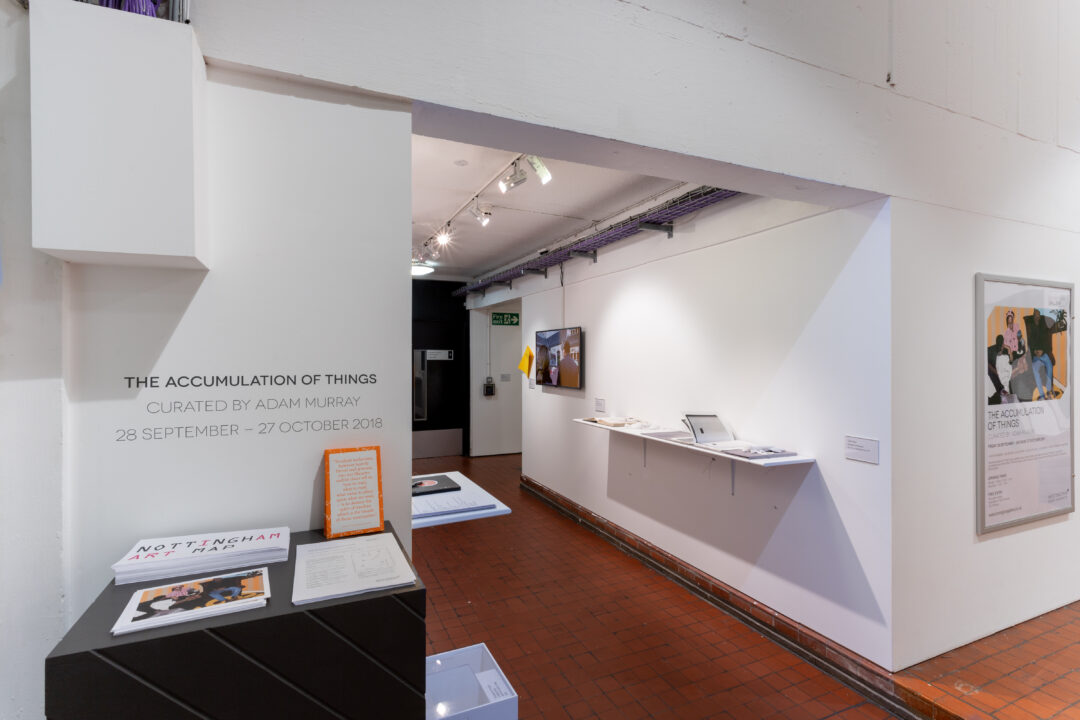
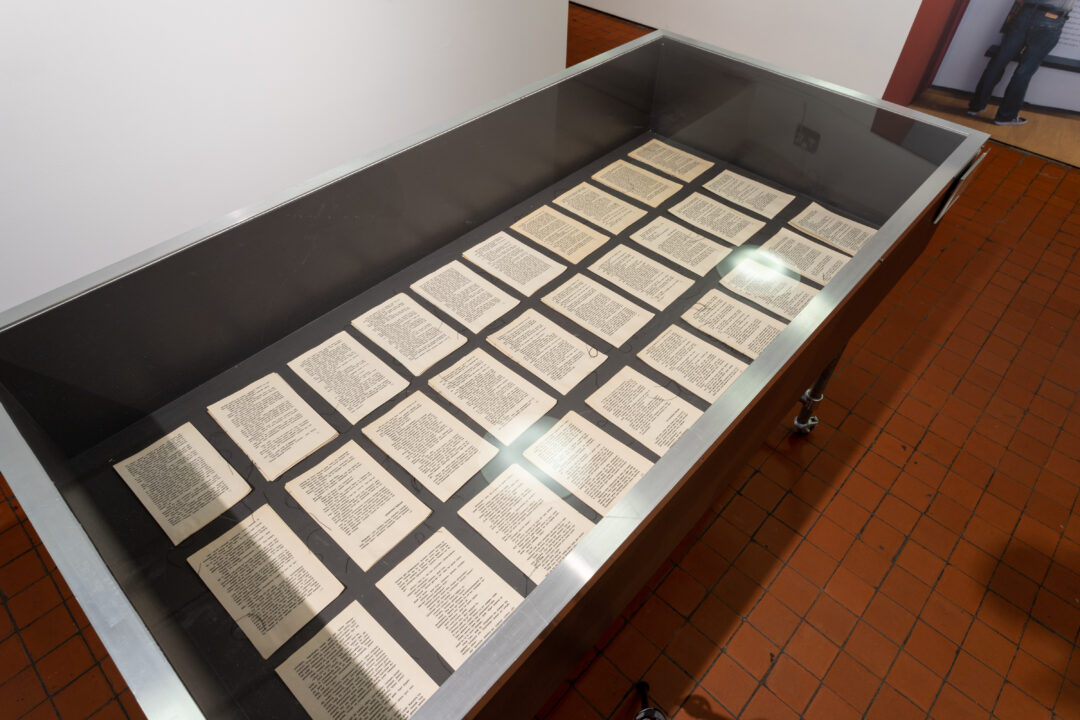
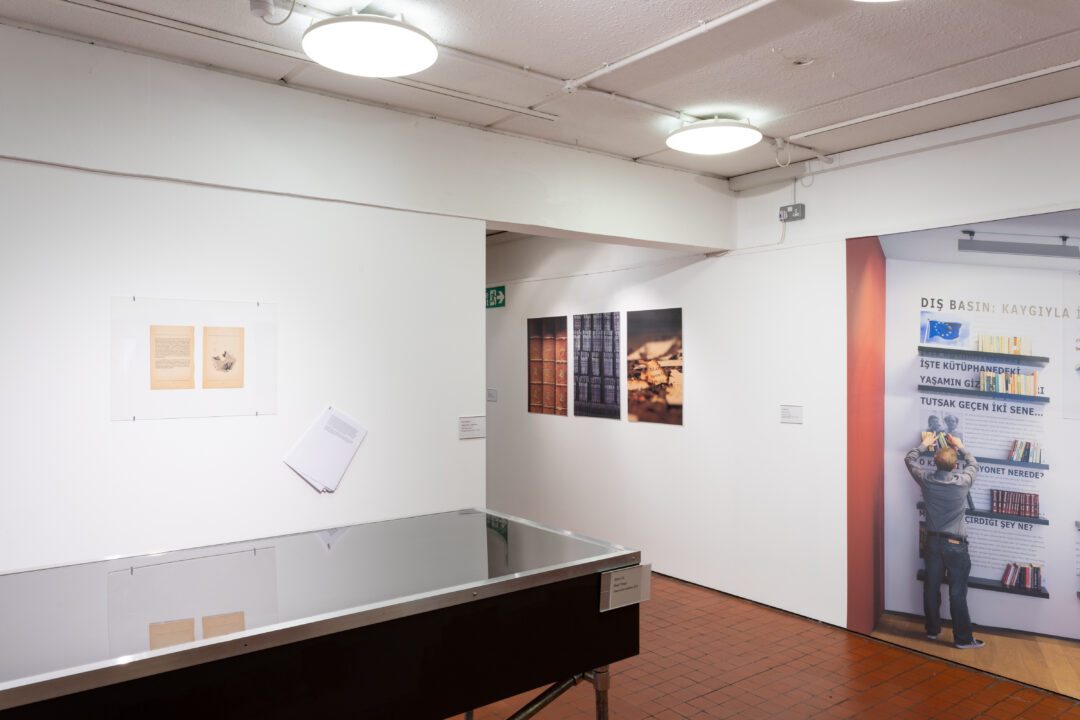
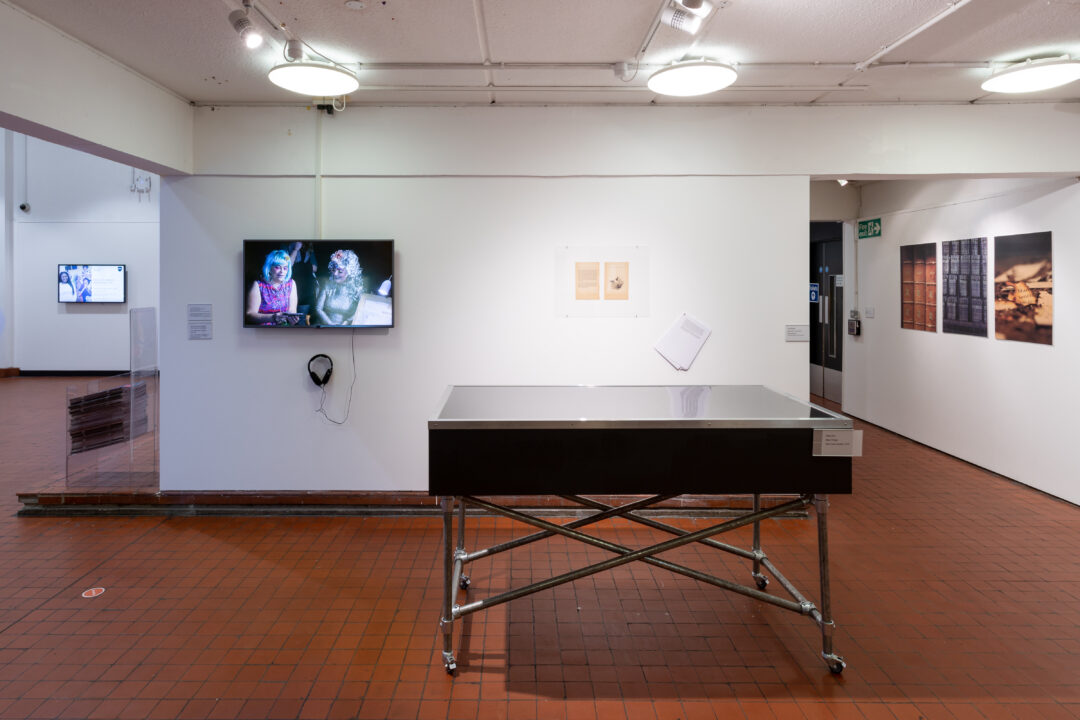
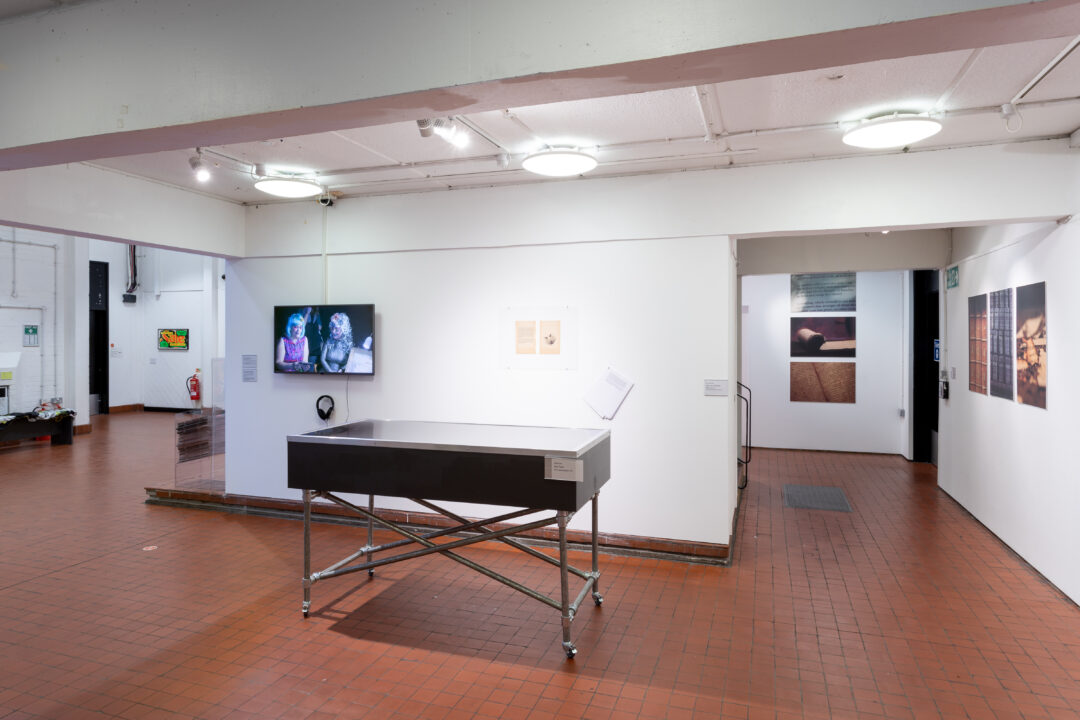
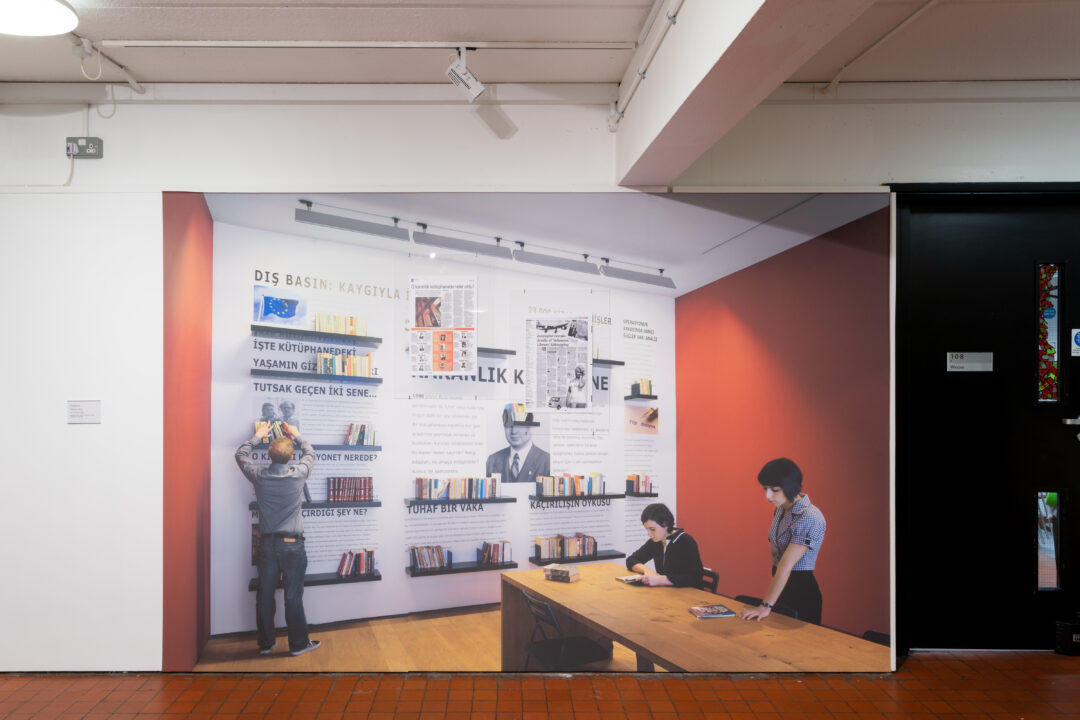
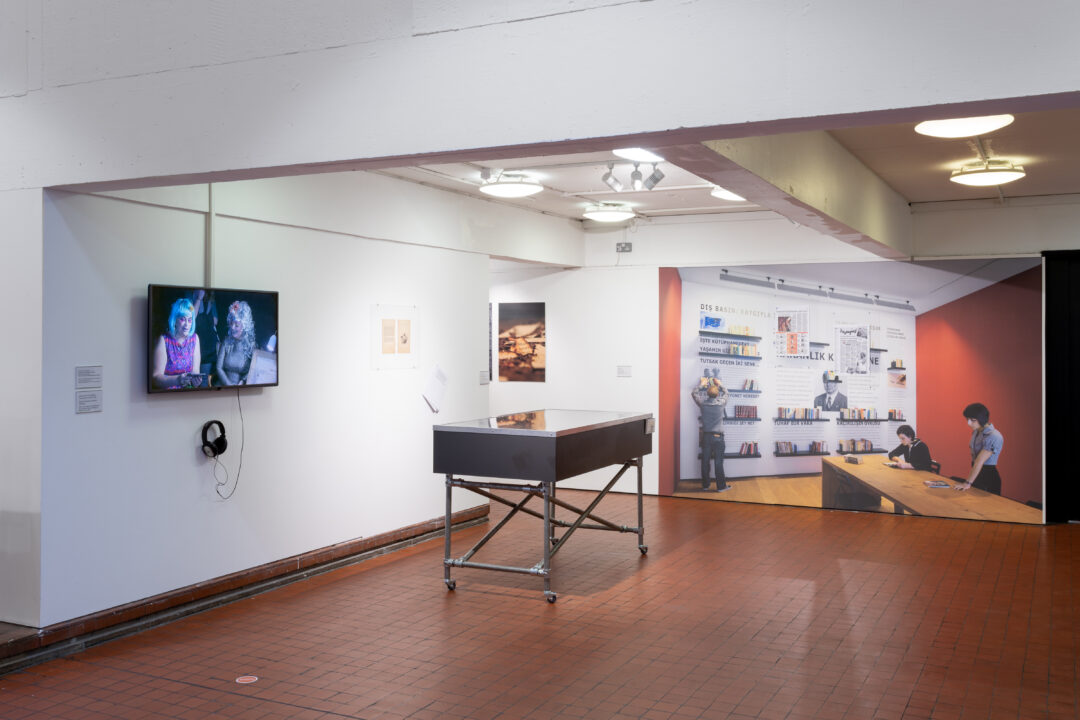
Original exhibition text:
Throughout centuries, libraries have been perceived as places where knowledge on life and space is organised, read, and interpreted, yet at certain times, their political significance are underestimated. Public libraries have been important symbols of political power and formation of cultural identity. They play a significant role in the political struggle for independence, as centres of democratic ideals, such as free access to cultural heritage and information. As public spaces, they are essential for bringing people together to share information, and they become even more important during times of collective resistance and protests for freedom.
Curated by the Istanbul-based Collective Çukurcuma, House of Wisdom explores the political power of books and libraries in our century, and is presented as a travelling exhibition/library that explores the increasing levels of censorship on information and the current sociopolitical situation in and around Turkey. It started its journey in the non-profit art space, Dzialdov, Berlin. The show moved to Istanbul as part of the 15th Istanbul Biennial’s public program, and then to the art space Framer Framed in Amsterdam, as part of the Amsterdam Art Weekend 2017 programme.
The exhibition and public programme of events now reside in Nottingham, with a panel discussion at Primary, in June 2018, followed by the exhibition here at Bonington Gallery and across the city, see public programme events (curated by Cüneyt Çakırlar) below for full details.
Artists include: Mohamed Abdelkarim, Burak Arıkan, Mahmoud Bakhshi, Yael Bartana, Mehtap Baydu, Kürşat Bayhan, Ruth Beale, Ekin Bernay, Burçak Bingöl, Nicky Broekhuysen, Hera Büyüktaşçıyan, Cansu Çakar, Ramesch Daha, Işıl Eğrikavuk, Didem Erk, Foundland Collective, Deniz Gül, Beril Gür, Lawrence Abu Hamdan, İstanbul Queer Art Collective (Tuna Erdem and Seda Ergül), Ali Kazma, Yazan Khalili, Göksu Kunak, Mona Kriegler, Fehras Publishing Practices, Elham Rokni, Natascha Sadr Haghighian & Ashkan Sepahvand, Sümer Sayın, Erinç Seymen, Bahia Shehab, Walid Siti, Ali Taptık, Erdem Taşdelen, Özge Topçu, Viron Erol Vert, Ali Yass, Eşref Yıldırım, Ala Younis
CURATED BY COLLECTIVE ÇUKURCUMA
House Of Wisdom was in collaboration with Queer Art Projects (London, UK), Bonington Gallery, Primary, Bromley House Library, Nottingham UNESCO City of Literature, and Five Leaves Bookshop.
Join us for the launch of our final exhibitions of the season: THROUGH A MIRROR, DARKLY – a film commission from Turner-Prize nominated artist Naeem Mohaiemen and the 30th instalment of our Vitrines featuring a collection of photography from Baltimore-based photographer John Dean.
THROUGH A MIRROR, DARKLY is a new three-channel film by Turner Prize nominated artist Naeem Mohaiemen. It explores memorialisation, protest, and political violence through the lens of events in May 1970, when American students protesting domestic racism and overseas wars were met by state violence.
As part of the 30th instalment of our Bonington Vitrines series, we’re delighted to present A Semester in Nottingham, 1976, an exhibition of photographs by Baltimore-based John Dean. Captured during his time as a visiting student to NTU in 1976, these photographs offer a powerful glimpse into Nottingham life during a transformative era.
Enjoy a free welcome drink, delicious food (first come, first served!) and music.
All welcome but reserve your free ticket to avoid disappointment.
Bonington Gallery presents A Semester in Nottingham, 1976, an exhibition of photographs by Baltimore-based John Dean. Captured during his time as a visiting student to Nottingham Trent University (NTU) in 1976, these photographs offer a powerful glimpse into Nottingham life during a transformative era.
This exhibition marks a poignant return to the institution — formerly Trent Polytechnic — where John studied as a visiting student nearly fifty years ago.
Armed with a camera and a quiet curiosity, John immersed himself in the rhythms of Nottingham life. Over the course of a single semester, he wandered the city’s streets and parks — Hyson Green, Market Square, the Arboretum — capturing striking black-and-white portraits of residents going about their daily lives. The resulting images are both documentary and deeply personal, offering a rare and intimate glimpse into the everyday lives of Nottingham’s people during a transformative era.
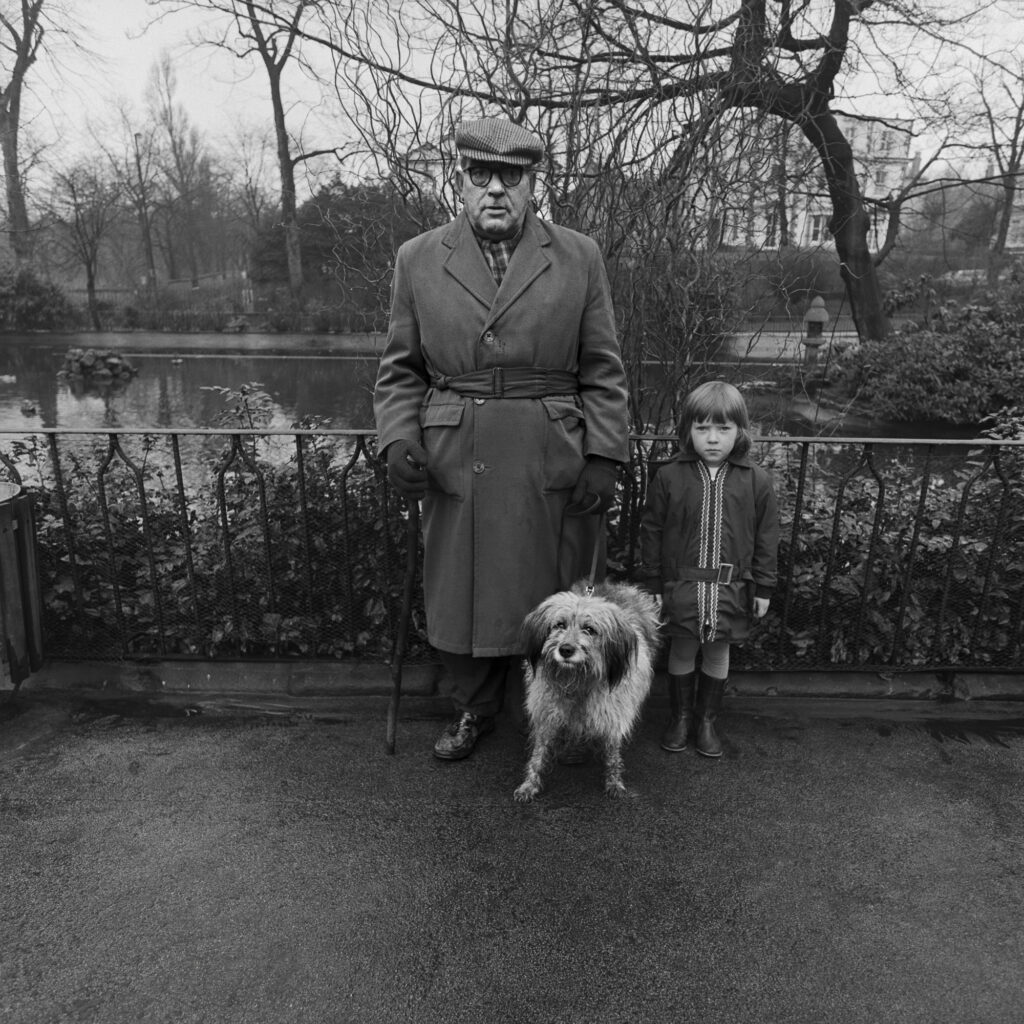
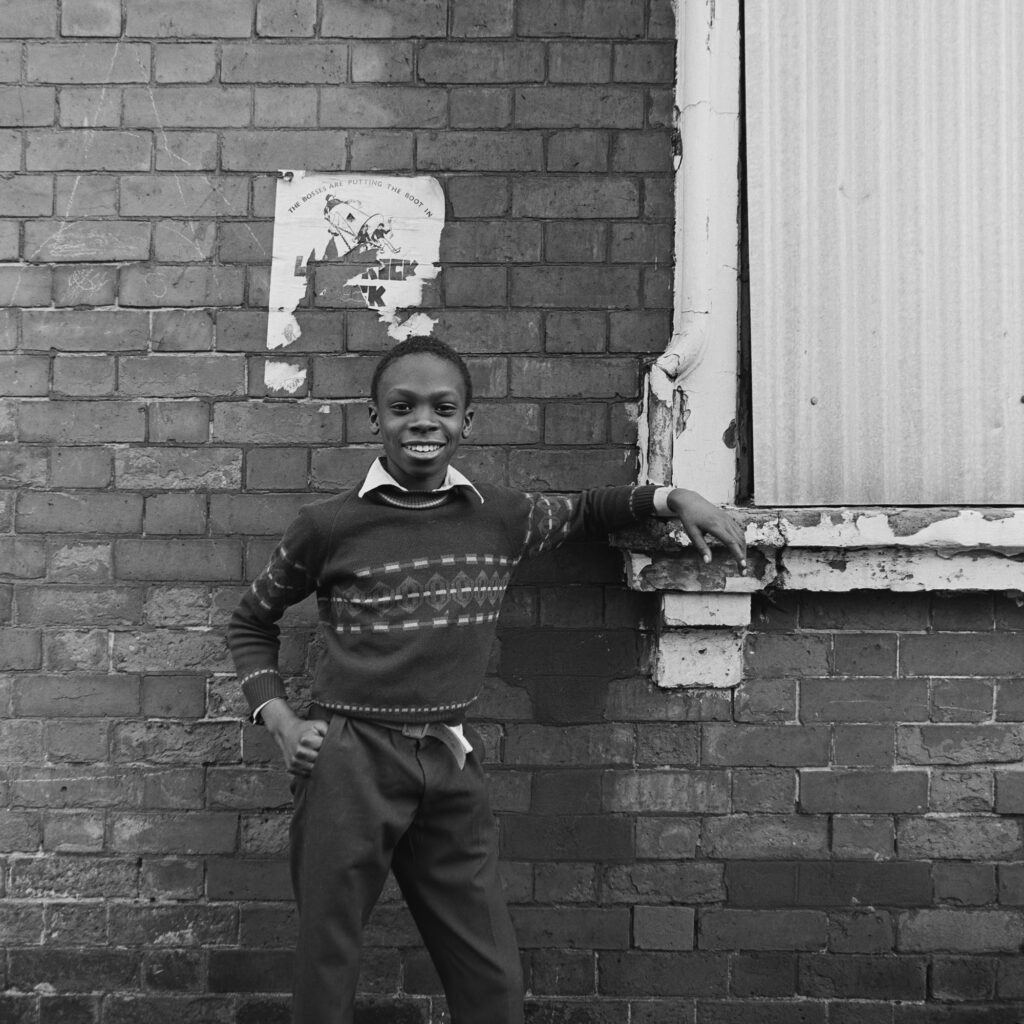
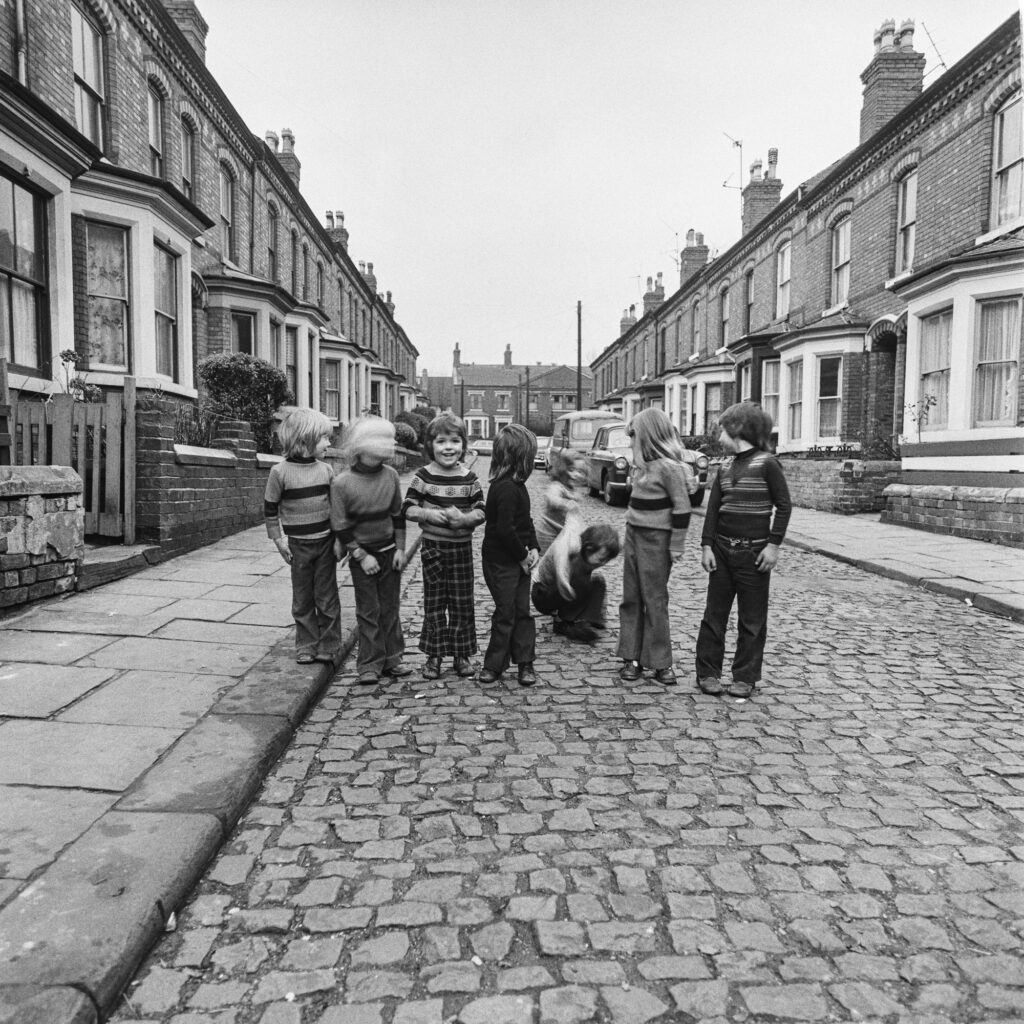
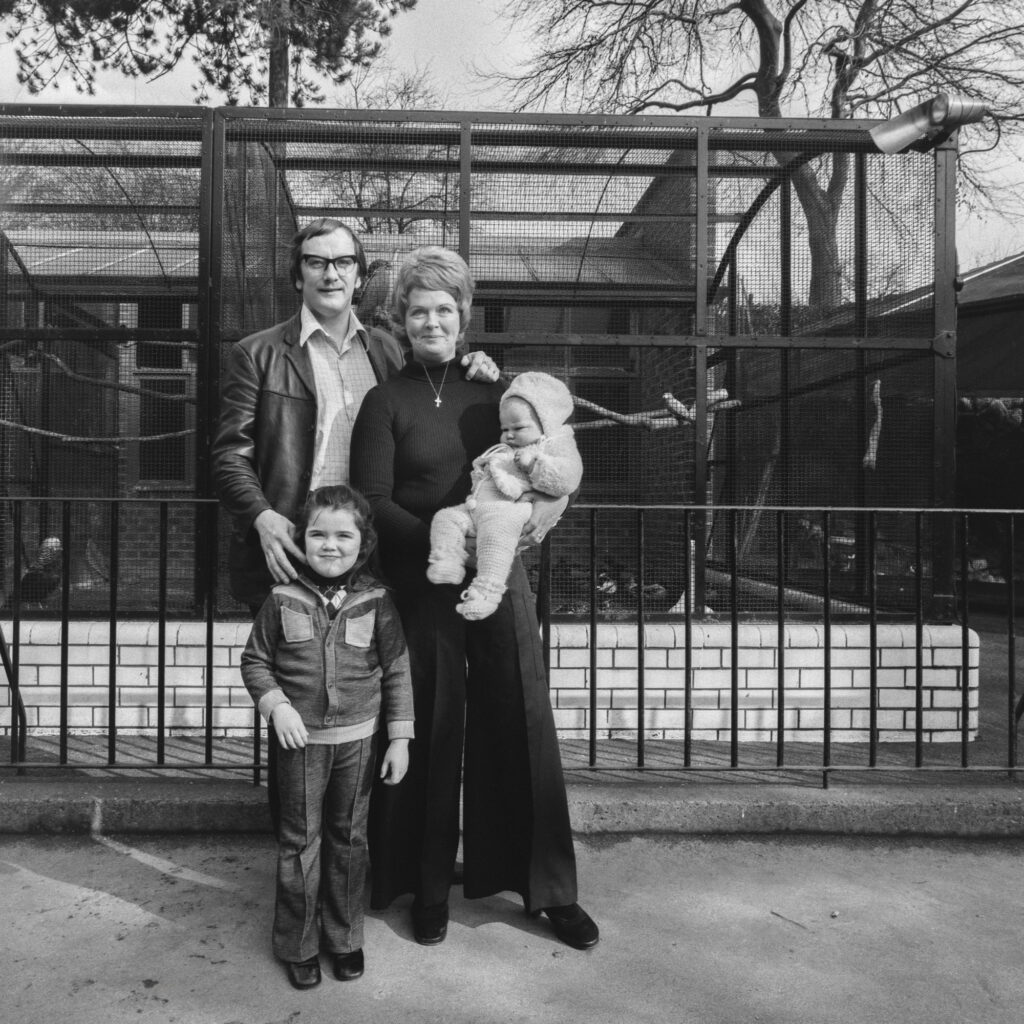
First developed in Trent’s own darkrooms (situated next door to the gallery), these photographs have remained largely unseen for decades. Now, they return to the place of their origin, standing as a testament to the power of observational storytelling, told through the eyes of a visitor to the city.
John has since built a distinguished career as a producer and videographer, creating historical and educational media for museums and non-profit organisations across the United States and beyond. Yet photography remains his first and most enduring creative language — a medium through which he continues to explore the intersections of memory, environment, and human experience.
John Dean is a Baltimore-based photographer, videographer who graduated with a BFA from the Maryland Institute College of Art. He regularly works with museums, non-profit organisations and editorial platforms on the creation of educational and historical media and content.
In addition to institutional work, John’s independent photographic practice has taken him across the world, exploring historic and cultural sites of significance, such as excavation sites in Greece and sacred spaces in Istanbul. As a long time mentor and arts advocate, John is consistently guided by a curiosity for human stories.
Join us for the launch of our latest exhibitions — new film and textile work by multi-disciplinary artist Ibiye Camp, exploring the complex interplay between infrastructure, care, and resilience along the coast of West Africa.
layt de kam critically examines the deployment of temporary power ships along West African coasts as a response to energy shortages. The work reflects both hope and uncertainty, emphasising the fragility of these energy solutions while honouring the resilience of coastal communities.
Accompanying layt de kam in our Vitrines is Through Our Eyes, In Our Words, an exhibition presenting stories of ageing, belonging, and inclusion among middle-aged and older-aged LGBT+ people in Britain.
Enjoy a free welcome drink, delicious food (first come, first served!) and music by multidisciplinary artist Fauzia.
All welcome but reserve your free ticket to avoid disappointment.

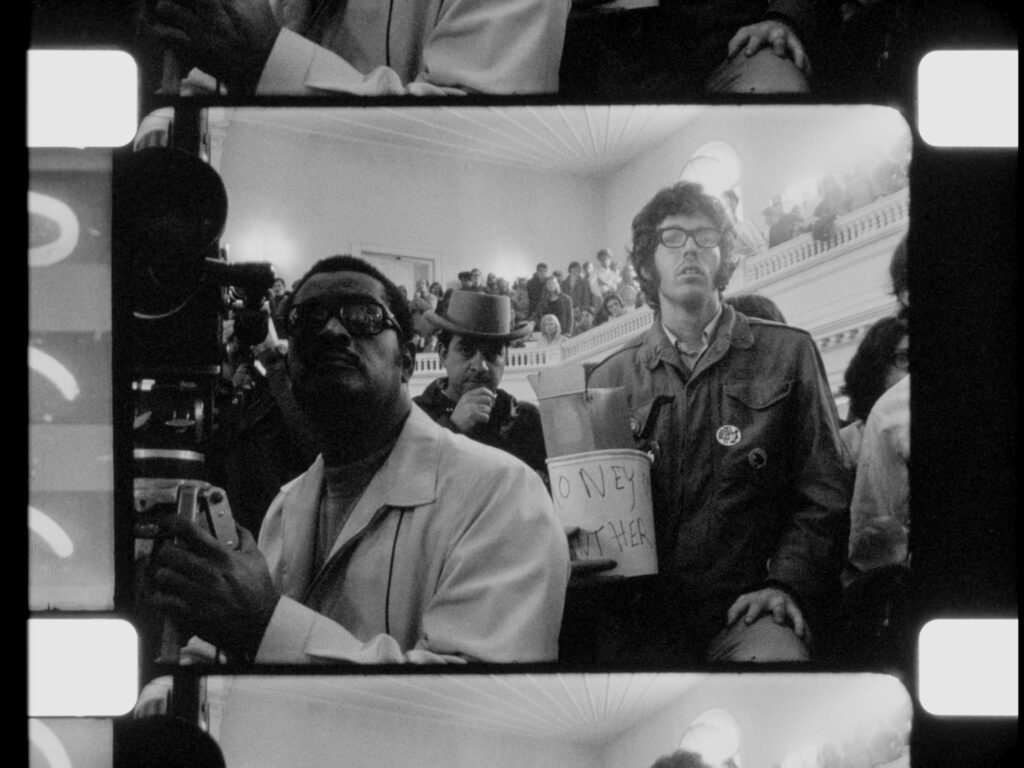
Bonington Gallery is pleased to present THROUGH A MIRROR, DARKLY, a new three-channel film by Turner Prize nominated artist Naeem Mohaiemen. The film explores memorialisation, protest, and political violence through the lens of events in May 1970, when American students protesting domestic racism and overseas wars were met by state violence.
As the Vietnam War came to its bloody end, for the American media, the memory of four American students shot dead at Kent State University was sometimes as emotionally charged as the millions of deaths in Vietnam.
In the decades that followed, a memorial community has formed around the ‘four dead in Ohio’. Yet while the deaths of students Alison Krause, Jeffrey Miller, Sandra Scheuer, and William Schroeder at Kent State, Ohio, are remembered, not many recall Phillip Lafayette Gibbs and James Earl Green, two students killed ten days later by police officers at Jackson State College, Mississippi, a Historically Black College.
By choreographing the relationship between archival footage and contemporary ceremonies memorialising the dead, THROUGH A MIRROR, DARKLY explores the role of memorials as a focal point for individual and collective grief. By comparing Kent and Jackson State, the project underscores blind spots around racialised violence and class tensions, made concrete in the disparity in coverage of these two campus shootings. The inclusion of stage-managed press conferences reveals the political machinations of the Nixon administration who fuelled a backlash to anti-war protests.
Mohaiemen deftly presents these intersecting strands, weaving together the voices of key political players, student leaders, and the fabled ‘man on the street’ alongside Vietnam veterans, to propose new interpretations of the events of May 1970 and their lasting impact.
“In Corinthians 13:12, ‘through a glass, darkly’ meant the impossibility of viewing the full scope of divine plans. In a more earthly, secular context, I consider the memorialization of the Vietnam War era, and how the farther away we get in years, the hazier the many meanings of events in the mirror of memory become.”
– Naeem Mohaiemen
Naeem Mohaiemen was born in London, UK, grew up in Dhaka, Bangladesh and currently lives and works in New York, USA. He combines films, photography, drawings, and essays to explore forms of utopia-dystopia within families, borders, architecture, and uprisings – beginning in South Asia and then radiating outward to transnational collisions in the Muslim world after 1945.
Several conversations around ‘nonalignment’ as a concept container in contemporary art pivoted after the premiere of his film Two Meetings and a Funeral (2017) at Documenta 14, which was nominated for the Turner Prize (2018).
Mohaiemen’s museum projects are represented by Experimenter Gallery (India) and film screenings are represented by LUX (UK); his work is in major international collections including British Museum and Tate Modern (London), Museum of Modern Art (New York), MACBA (Barcelona), Van Abbemuseum (Eindhoven), Kiran Nadar Museum (Delhi), National Gallery of Singapore, Art Institute of Chicago, Samdani Art Foundation and Sharjah Art Foundation.
Mohaiemen is co-editor with Eszter Szakacs of Solidarity Must Be Defended (Budapest, 2023) and with Lorenzo Fusi of System Error: War is a Force That Gives Us Meaning (Siena, 2007). He is the author of Bengal Photography’s Reality Quest (Dhaka, 2025), Baksho Rohoshyo (Umea, 2024), Midnight’s Third Child (Dhaka, 2023) and Prisoners of Shothik Itihash (Basel, 2014). He is a faculty member at the Visual Arts Department, Columbia University.
Following the inaugural London presentation of the work by Artangel at Albany House (September – December 2025), the UK tour has been convened by Film and Video Umbrella and will travel to Bonington Gallery, Nottingham (2026), The Hunterian, University of Glasgow (2026), and John Hansard Gallery, Southampton (2026). The work will also be shown at the Wexner Center for the Arts at The Ohio State University, in Spring 2026.
The Albany House presentation of this exhibition has been reviewed by Jonathan Jones for The Guardian, and featured in Art and Design and Art Review.
Commissioned and produced by Artangel.
Commissioned in partnership with Film and Video Umbrella and Wexner Center for the Arts at The Ohio State University.
Supported by Experimenter.
Exhibition Partners: The Hunterian, University of Glasgow, John Hansard Gallery, Southampton and Bonington Gallery, Nottingham.
Artangel, FVU and John Hansard Gallery are generously supported using public funding by Arts Council England.
Artangel is generously supported by the private patronage of The Artangel International Circle, Special Angels, The Guardian Angels and The Company of Angels.
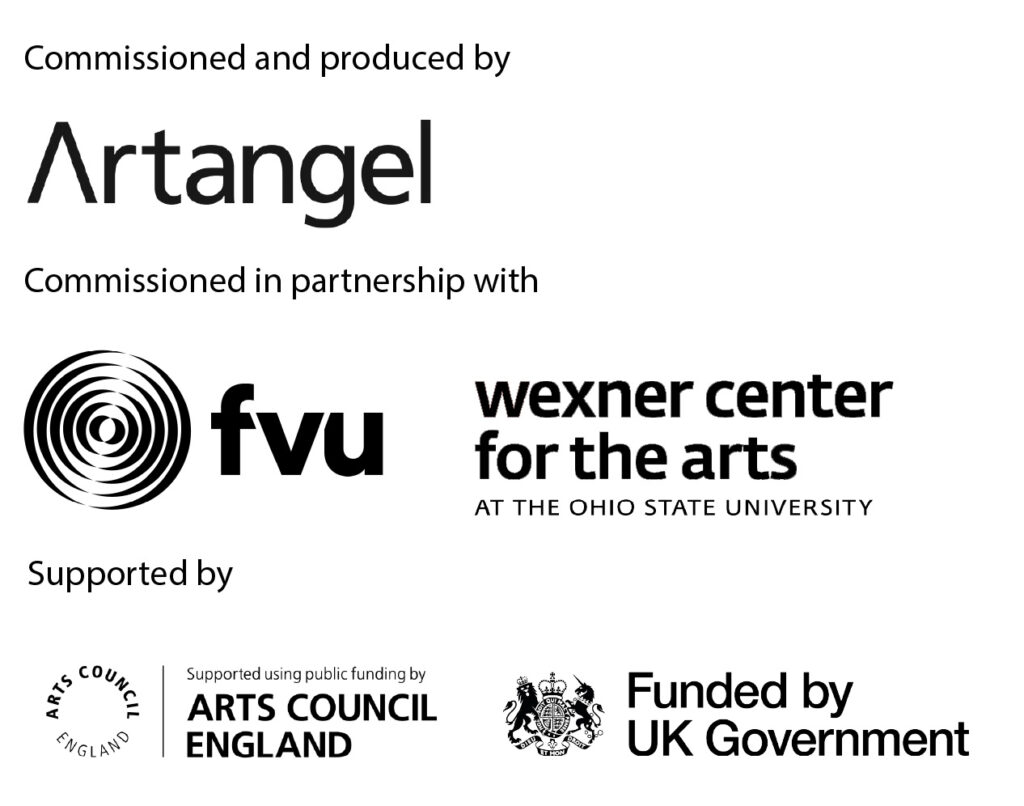
Bonington Gallery is delighted to present Through Our Eyes, In Our Words, an exhibition exploring stories of ageing, belonging, and inclusion among middle-aged and older-aged LGBT+ people in Britain.
What does it mean to belong? To grow older? To feel heard, seen, recognised?
Spanning LGBT+ History Month 2026, this exhibition from the IncludeAge project invites you to engage with the experiences of middle-aged and older-aged LGBT+ people in Britain today. Reflected through photographs, personal objects and testimony, LGBT+ people share what matters to them: the places they love and where they feel seen, and the everyday moments that shape who they are.
These artefacts don’t come from behind a lens held by someone else. They were taken by the people whose stories they tell. Some might identify as artists or creative practitioners, others not. Each photo and object is a choice – of what to show, how to show it, and what it means. Some speak of joy and celebration. Others quietly express frustration or longing—all of them reflect lives lived with strength, humour, creativity, and care.
The IncludeAge project (2022-26) explores experiences of inclusion and exclusion among diverse middle-aged and older aged people (40+), in physical places and online spaces..
The project specifically engages with LGBT+ individuals and people with learning disabilities. Its goal is to build on the insights shared by participants and use them to develop solutions that foster more inclusive communities.
The project is led by Professor Judith Sixsmith at the University of Dundee, in partnership with the University of Hertfordshire, Liverpool John Moores University, and the University of Edinburgh. Several organisations are also involved in the project, including Tonic Housing, Sleeping Giants, and Outside the Box, among others.
At Bonington during LGBT+ History Month 2026, Through Our Eyes / In Our Words showcases the richness of LGBT+ voices, histories, and imagery emerging through the project. Exhibitions elsewhere in the country will showcase material relating to the participants with learning disabilities.
For more information, please contact Dr Richard Vytniorgu (r.vytniorgu@herts.ac.uk).
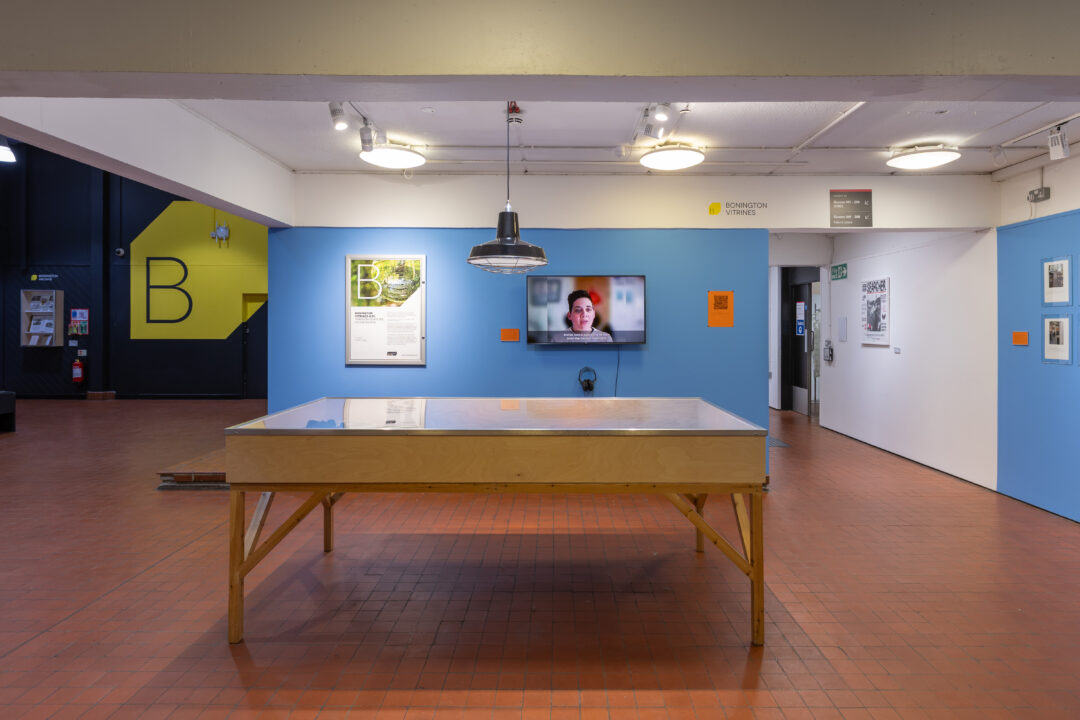
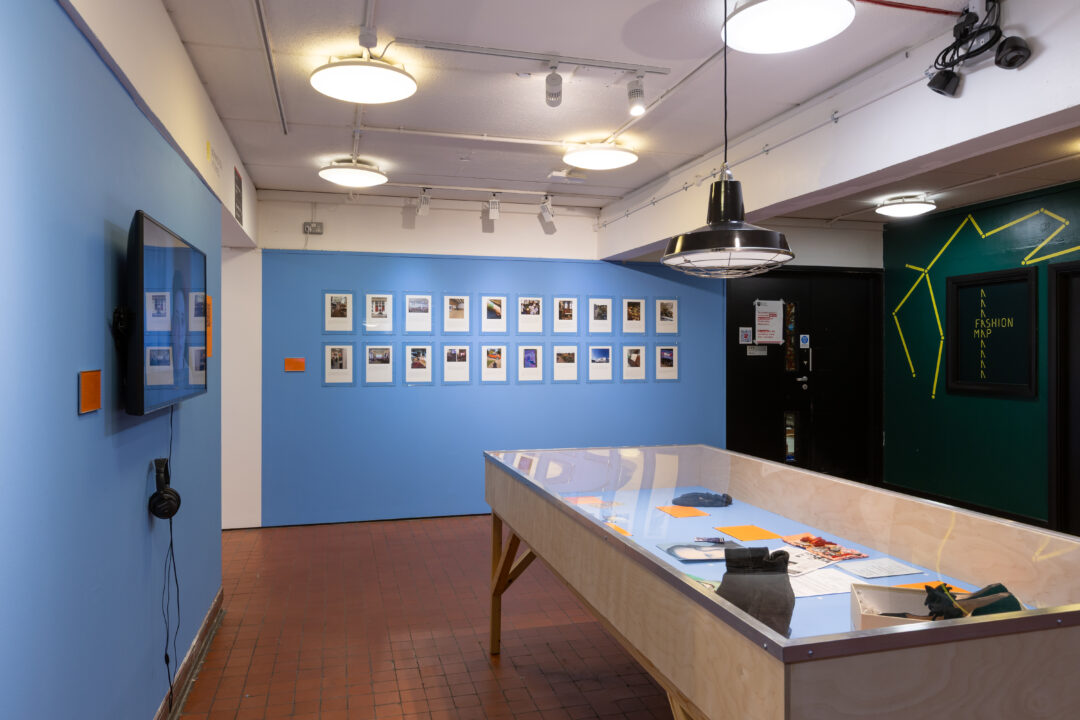
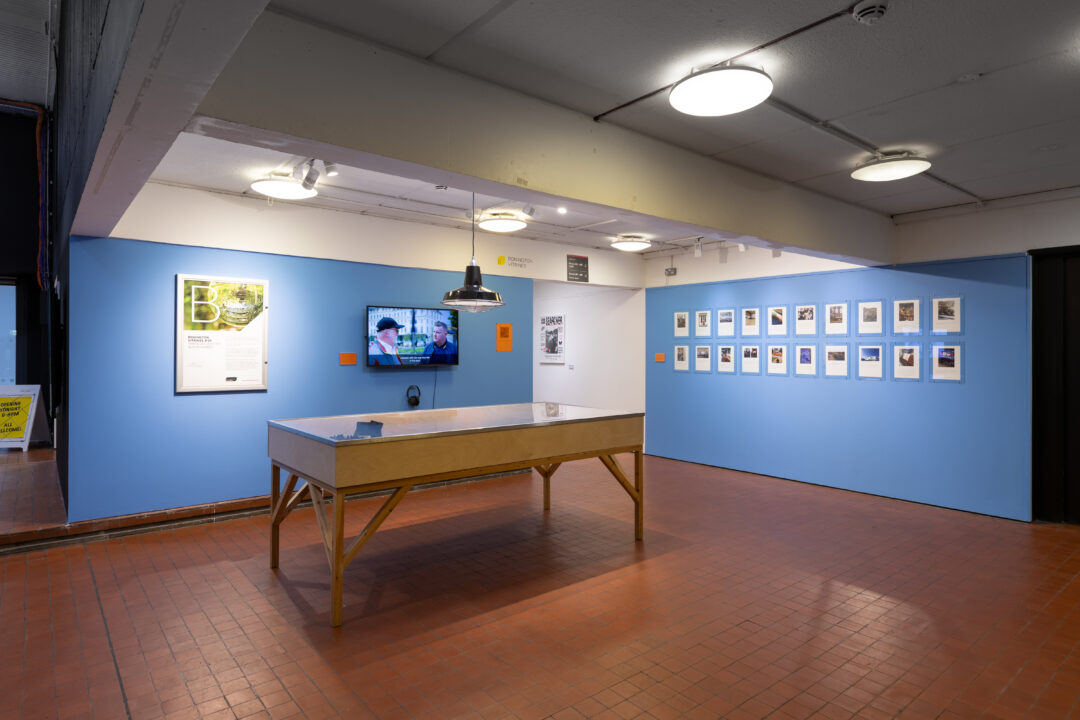
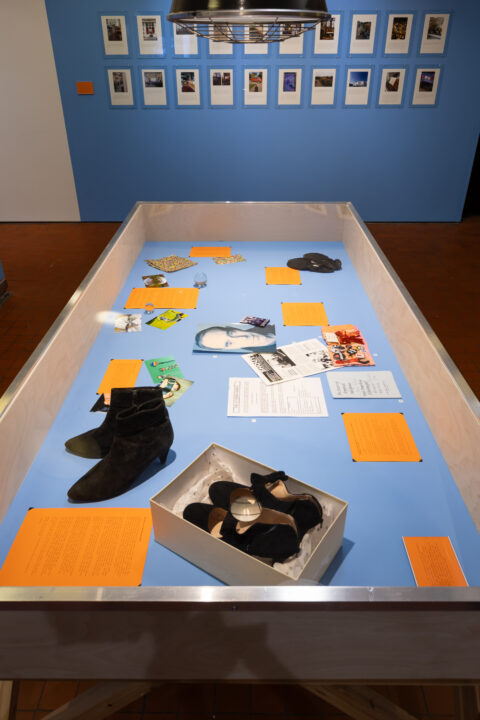
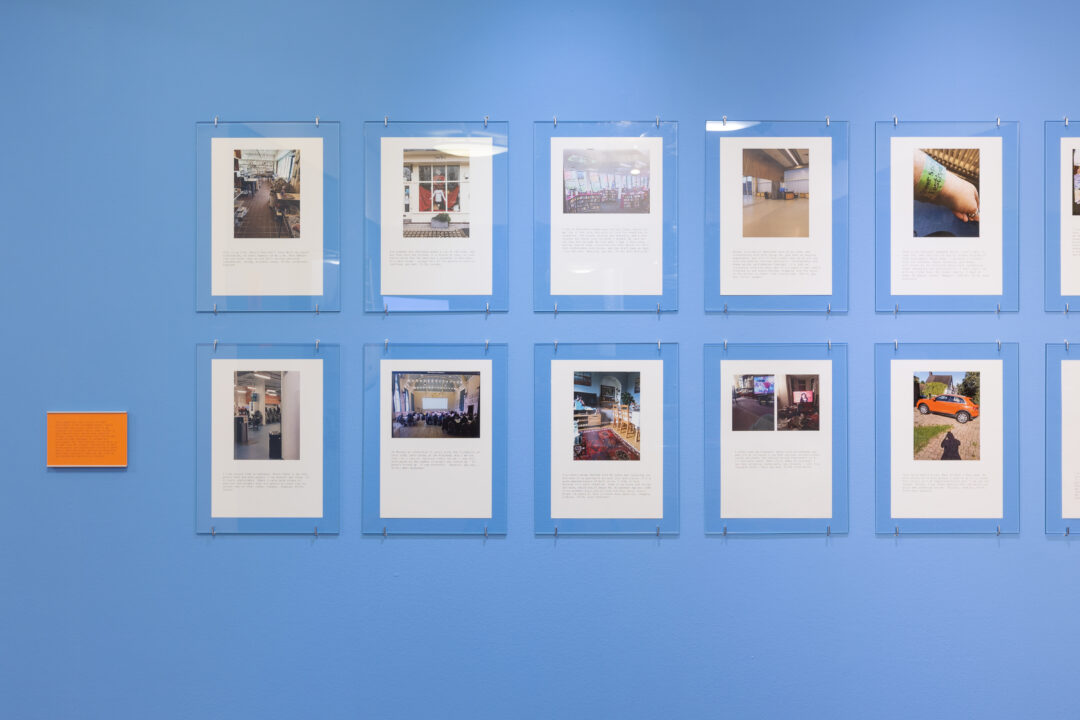
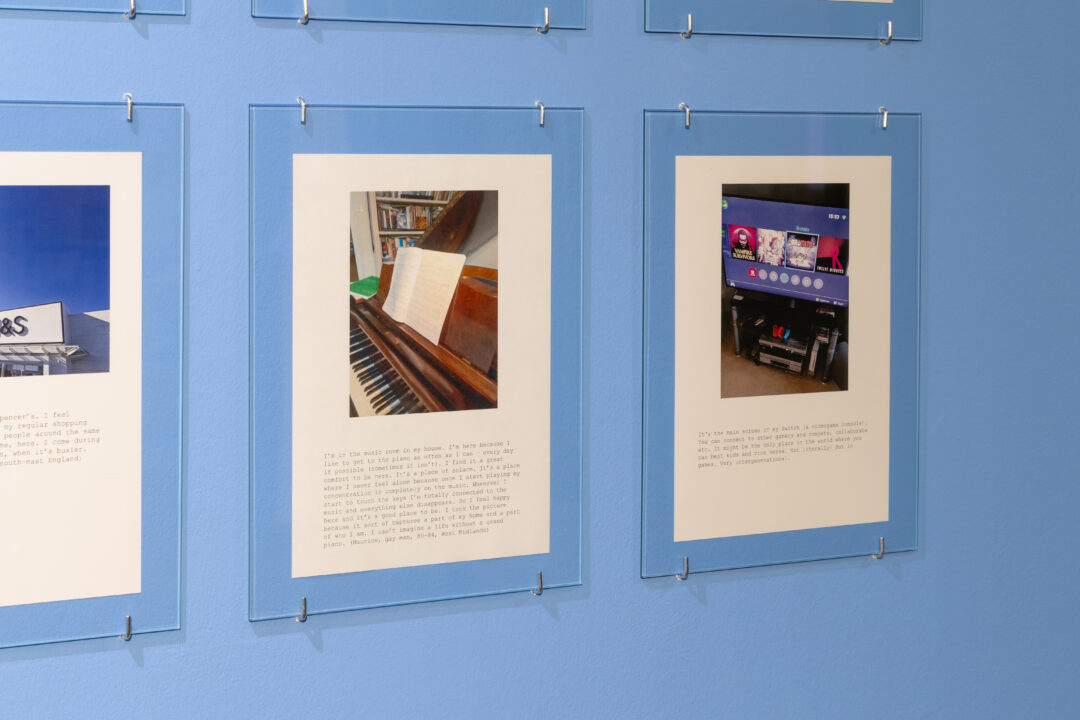
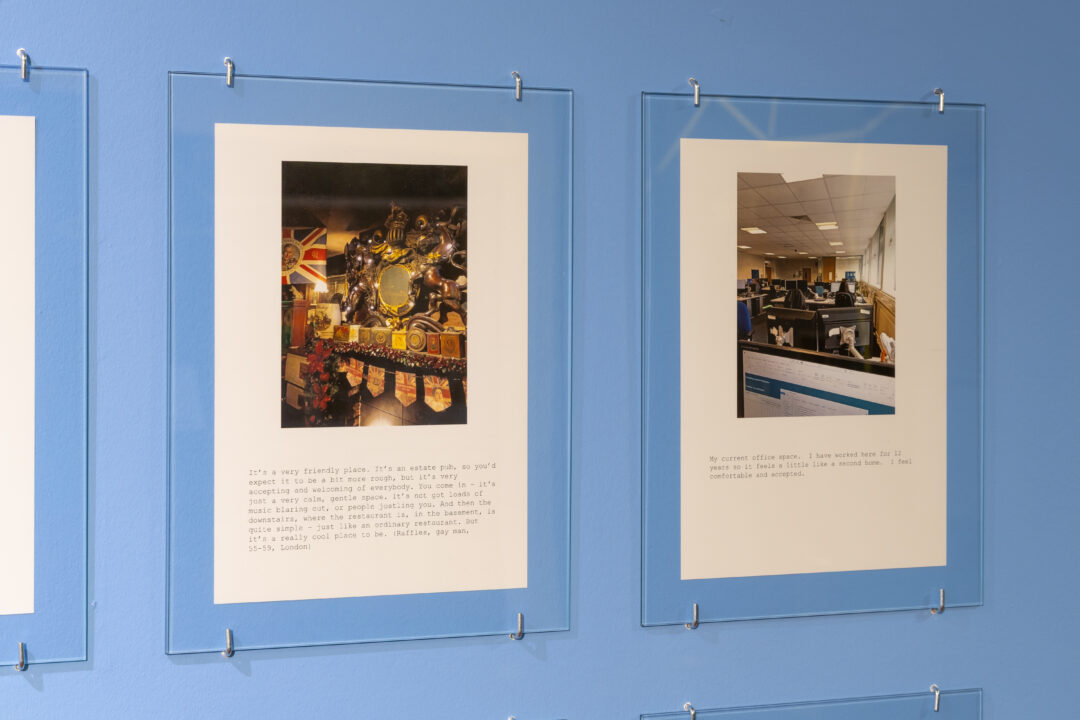
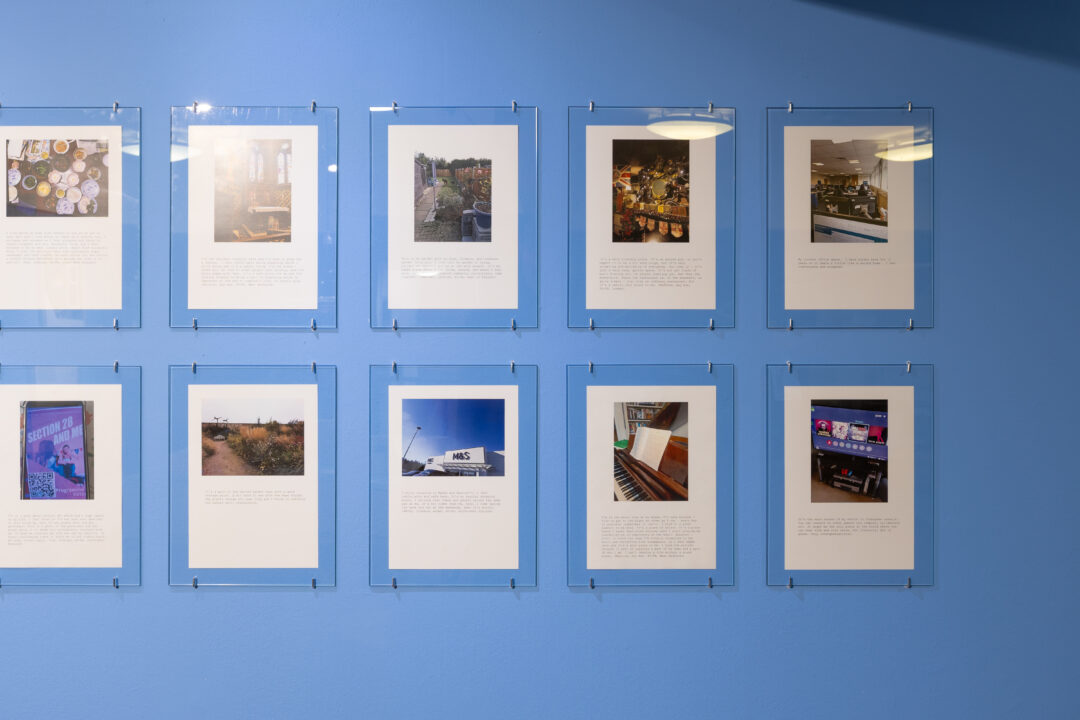
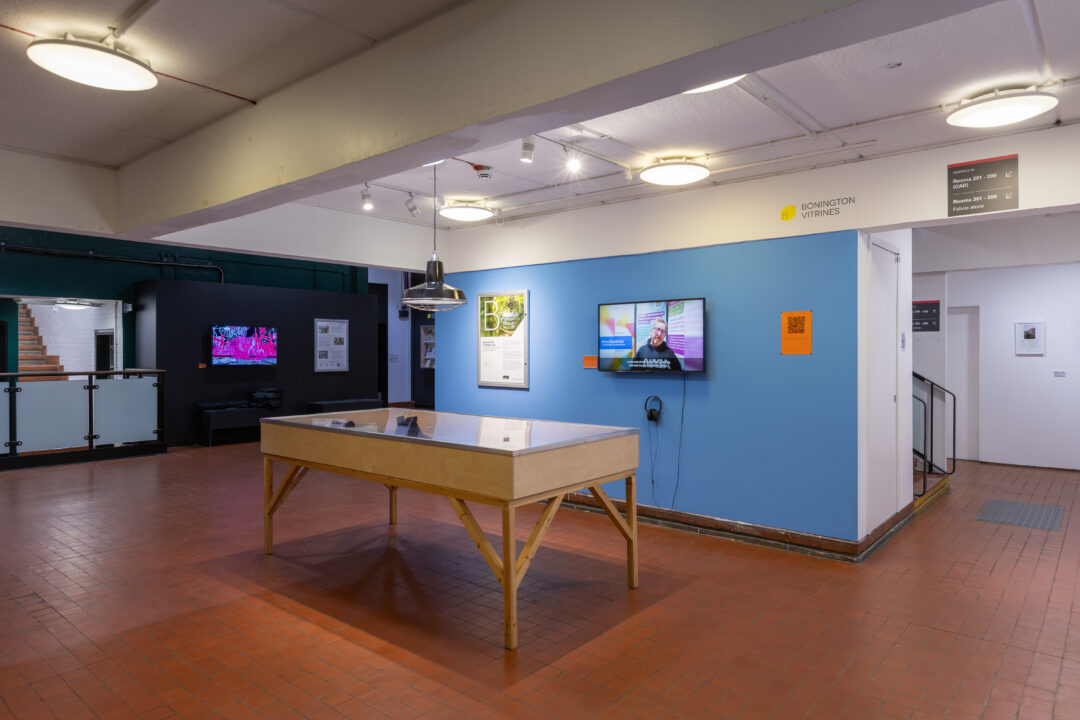
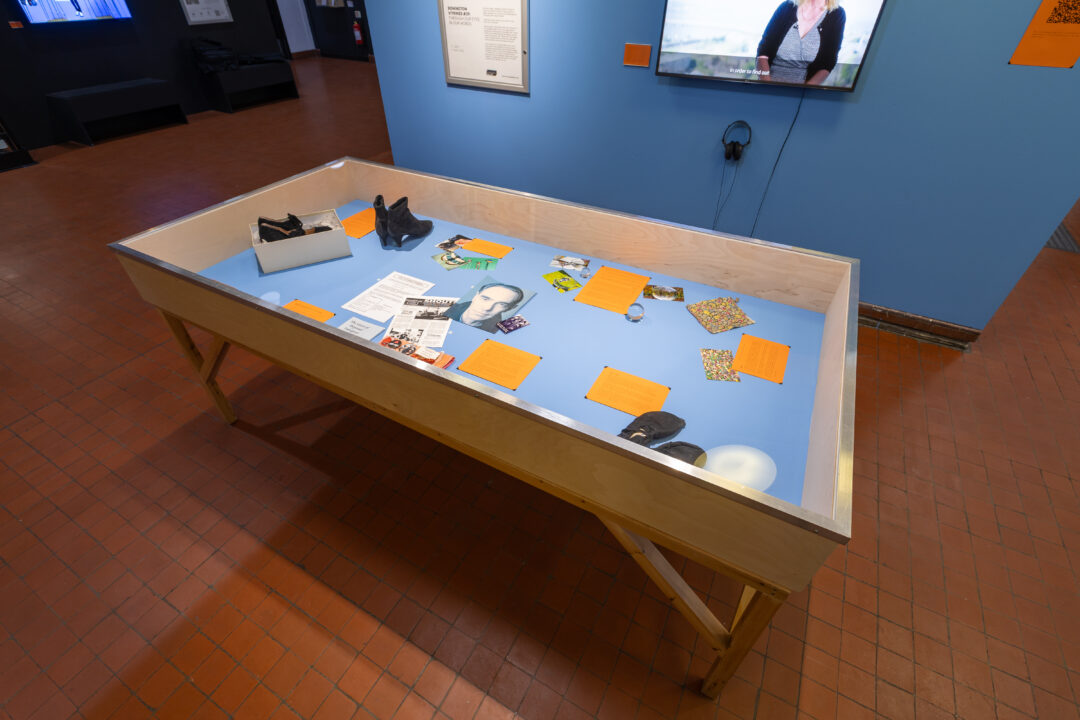
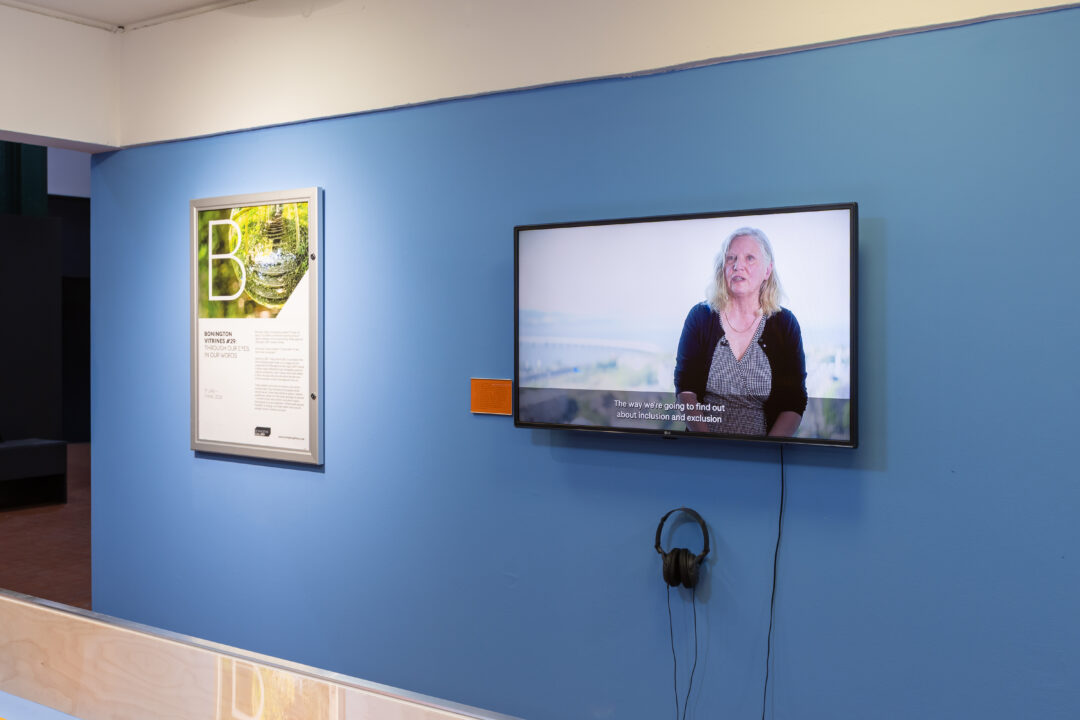
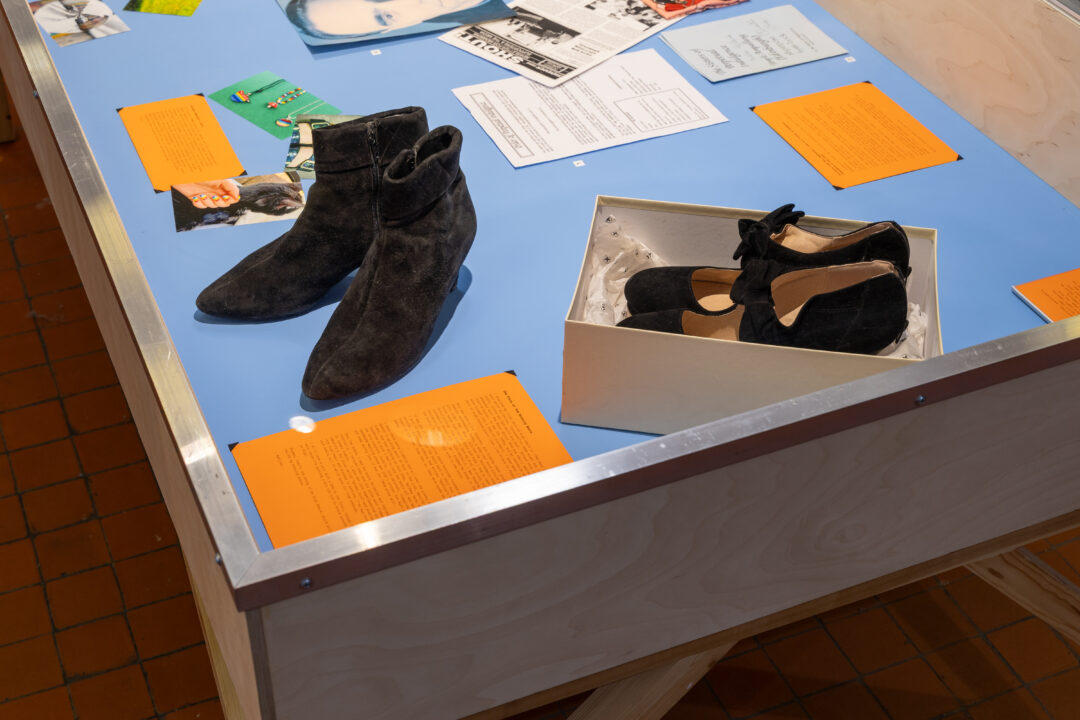
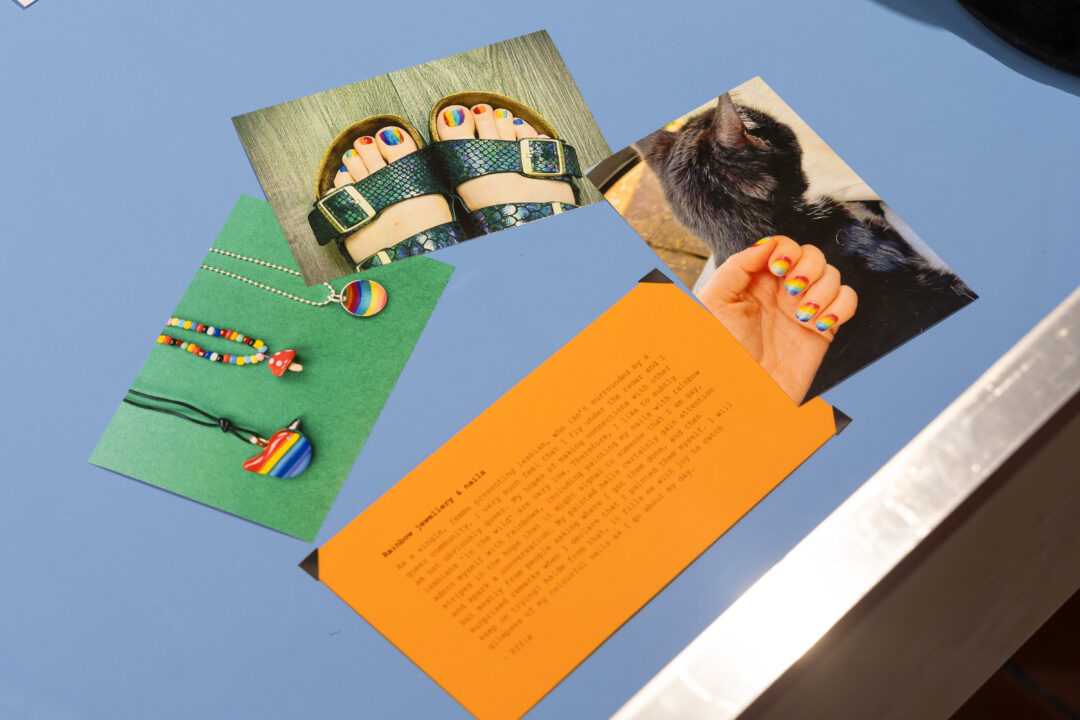

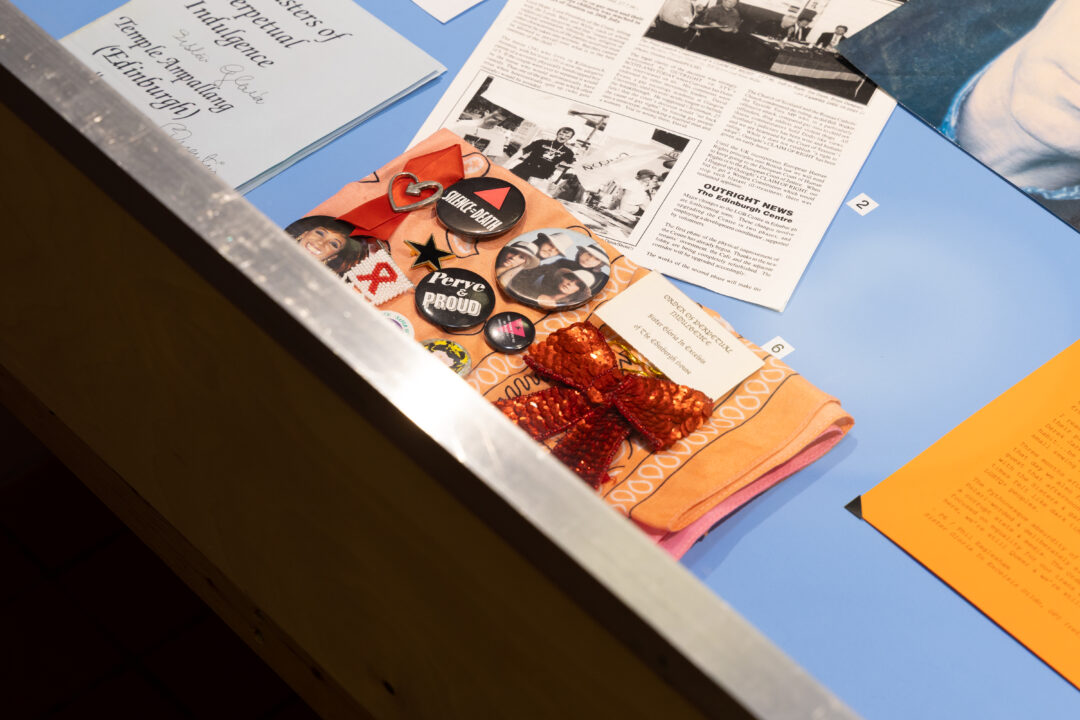
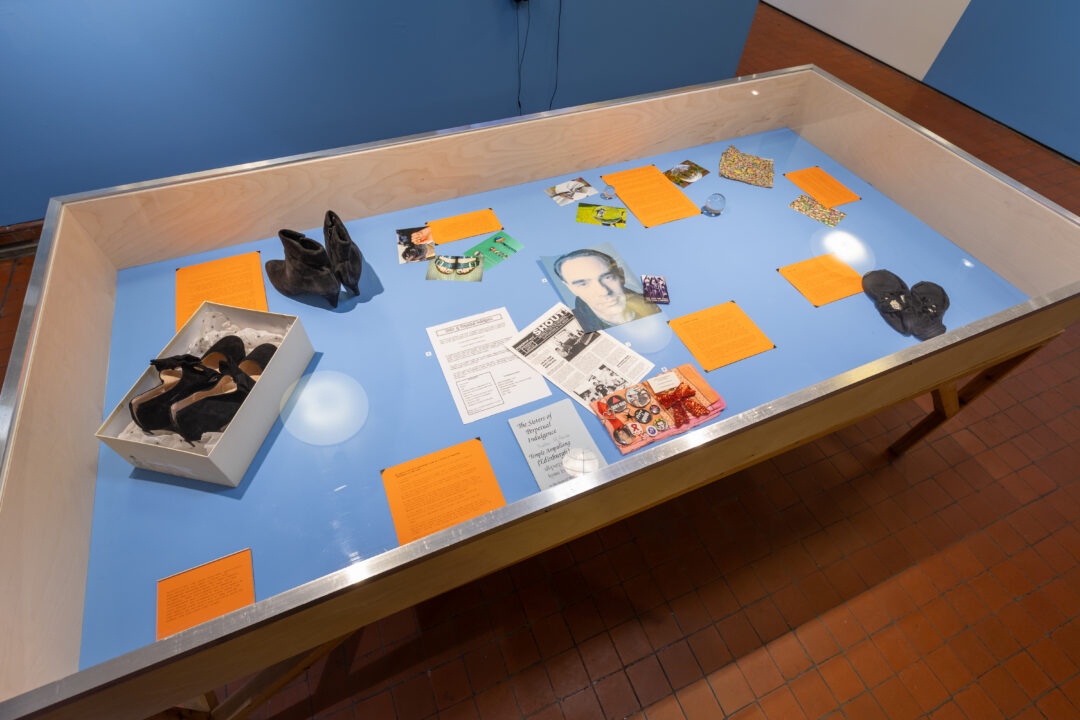
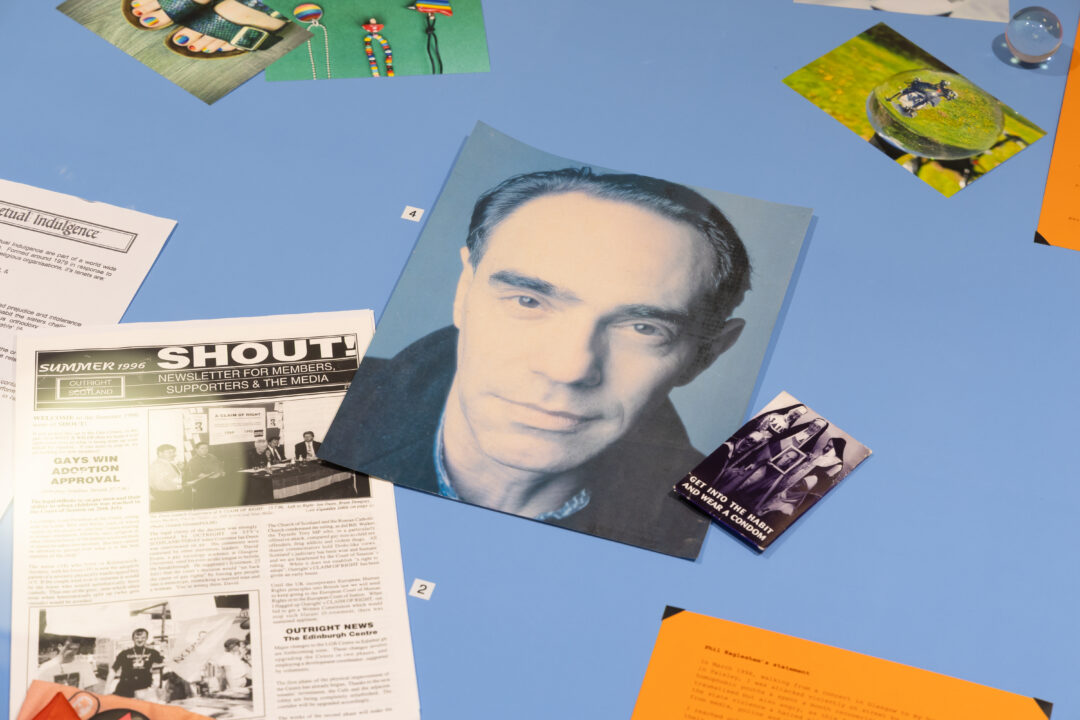
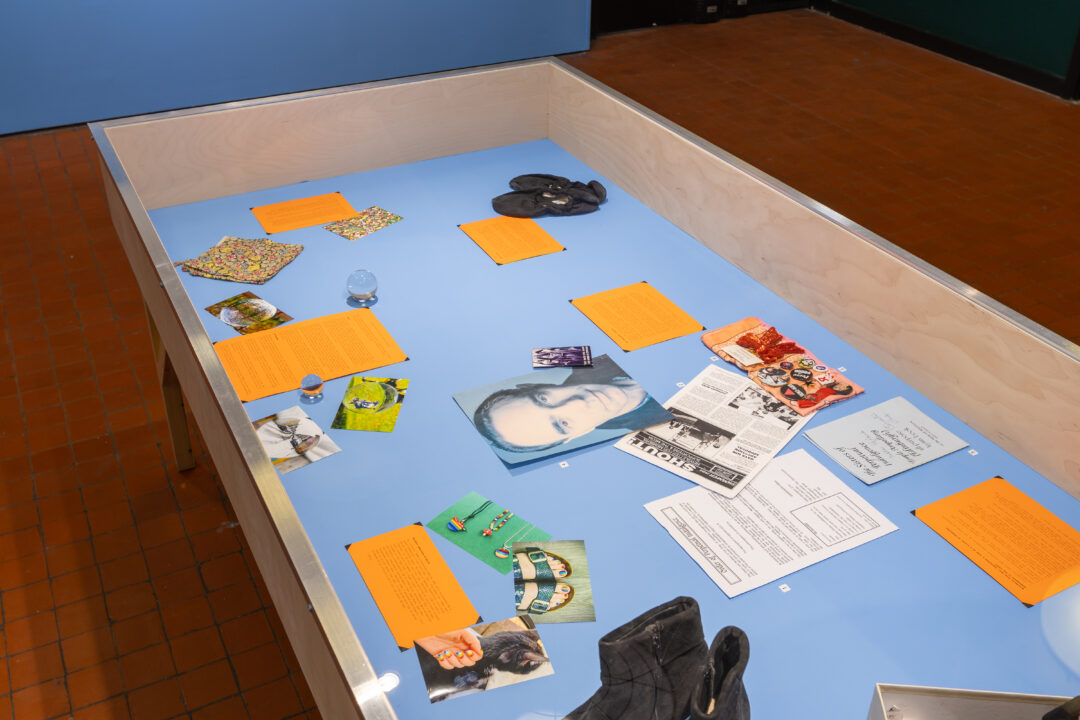
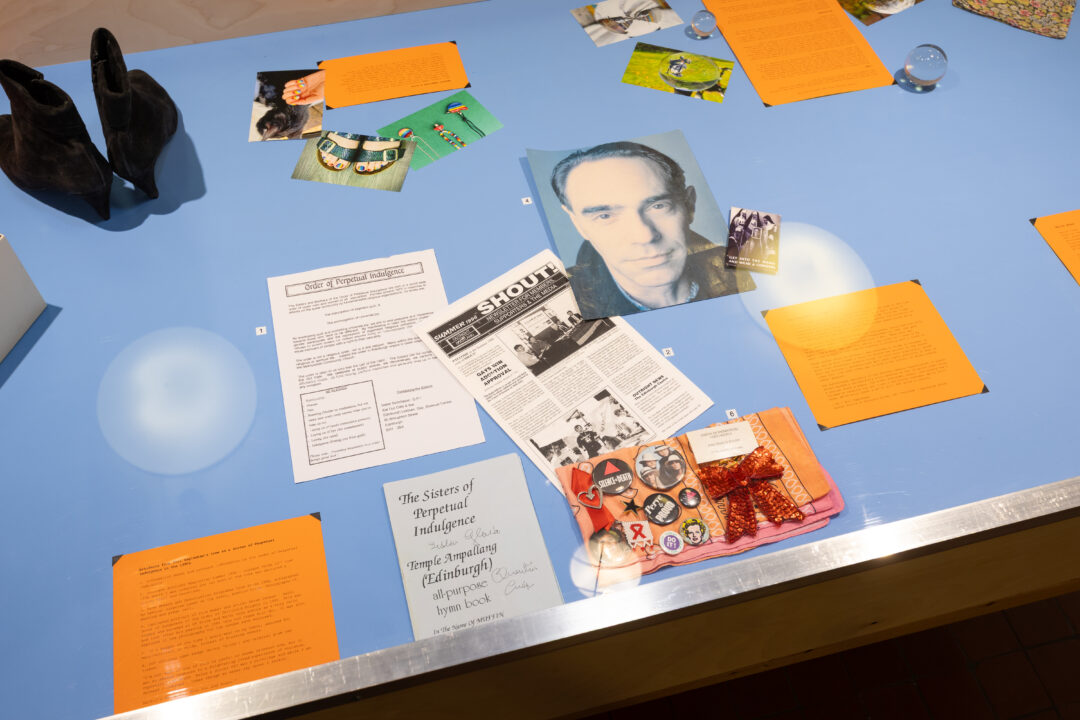
Lead image: Rosie Gardener
Bonington Gallery is delighted to announce layt de kam, a newly commissioned body of film and textile work by multi-disciplinary artist Ibiye Camp, exploring the complex interplay between infrastructure, care, and resilience along the coast of West Africa.
At the heart of the exhibition is a critical reflection on the deployment of temporary power ships off the coasts of various West African cities — an intervention intended to address unstable energy infrastructures and shortages. The title, layt de kam (translated as “light is coming”), evokes both hope and uncertainty, highlighting the precarity of such power solutions while celebrating the enduring strength of coastal communities.

Combining spatial intervention, film and textiles, the exhibition will examine how brutalist infrastructure looms ominously over the intimate and everyday life on the shore. Central to the exhibition is a new film, GLOW, a speculative child’s tale that imagines the arrival of this foreign visitor who brings light. Created using point cloud reconstructions, the trace of the landscape is dependent on illumination, shadows and reflections to create the shapes and forms.
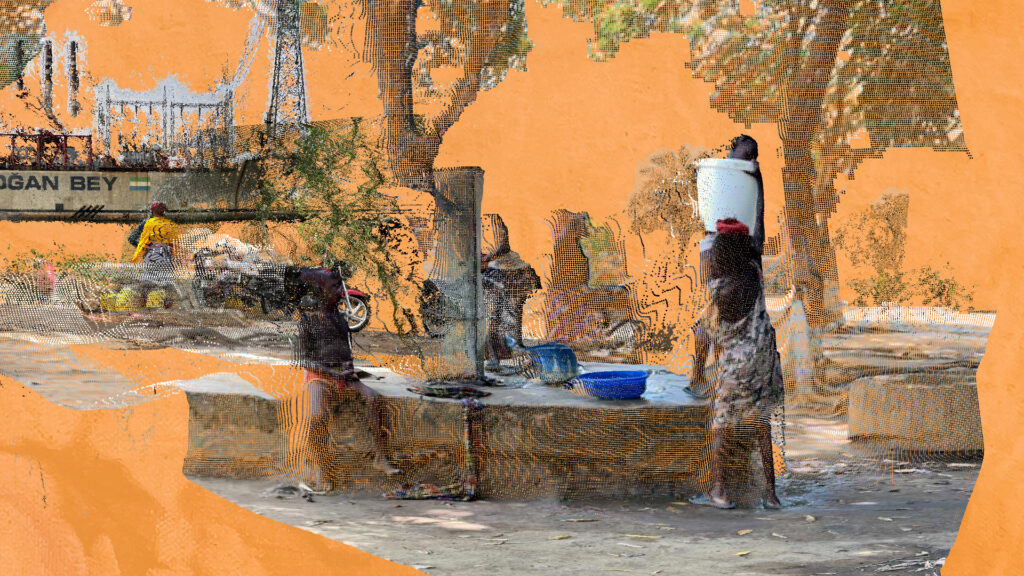
Camp further translates these digital landscapes into tactile form by laser-cutting point cloud stills into Kola Nut-dyed fabric. This process embeds the digital with the material, using concentrated light to cut cloth traditionally used by mothers to wrap their children—an enduring symbol of care and ancestral knowledge.
layt de kam further interrogates the broader geopolitical implications of temporary power infrastructures. Shaped by deregulation, privatisation, and conflict, these systems often reinforce global dependencies rather than fostering self-sufficiency. Drawing on theorist Keller Easterling’s concept of “extrastatecraft,” Camp reveals how non-state actors influence through infrastructure, turning energy access into a site of control.
By transforming disrupted landscapes into material memory, layt de kam offers a powerful narrative of resistance, care, and the entanglement of light, technology, and power.
Ibiye holds an MA in Architecture from the Royal College of Art, and BA (Hons) in Fine Art, from the University of the Arts London, Central Saint Martins. Ibiye’s Thesis project titled Data: The New Black Gold was awarded the School of Architectures Dean’s Prize and was nominated for the RIBA Silver Medal Award.
Ibiye has presented her work at The Sharjah Architecture Triennial titled Rights of Future Generations in 2019 and Triennale Milano The State of the Art of Architecture conference in 2020. She showed in the Istanbul Biennial titled Empathy Revisited in 2020, and MAAT – Museum of Art, Architecture and Technology’s exhibition titled X is Not a Small Country in 2021 and the 13th Shanghai Biennale titled Bodies of Water in 2021, and London’s Art Festival, Deptford X in 2022. In 2023 Ibiye was included in the Venice Architectural Biennial within the group exhibition Guests from the Future, and in 2024, was included in Unseen Guests, a project organized by Iniva as part of the British Pavilion’s public programme at the 60th Venice Biennial.
Ibiye Camp, Rhiarna Dhaliwal and Emmy Bacharach run a BA Studio titled Digital Native at the Design Academy Eindhoven.
Sound artist FAUZIA has made the soundtrack to Ibiye’s film GLOW.
Read an in-conversation between Ibiye Camp and Gökçe Günel, exploring the phenomenon of power-ships here.
Press:
– Art + Australia: ‘Floating Power Houses: A Conversation’.
– Yamo: 15 Questions with Ibiye Camp by Gary Grimes.
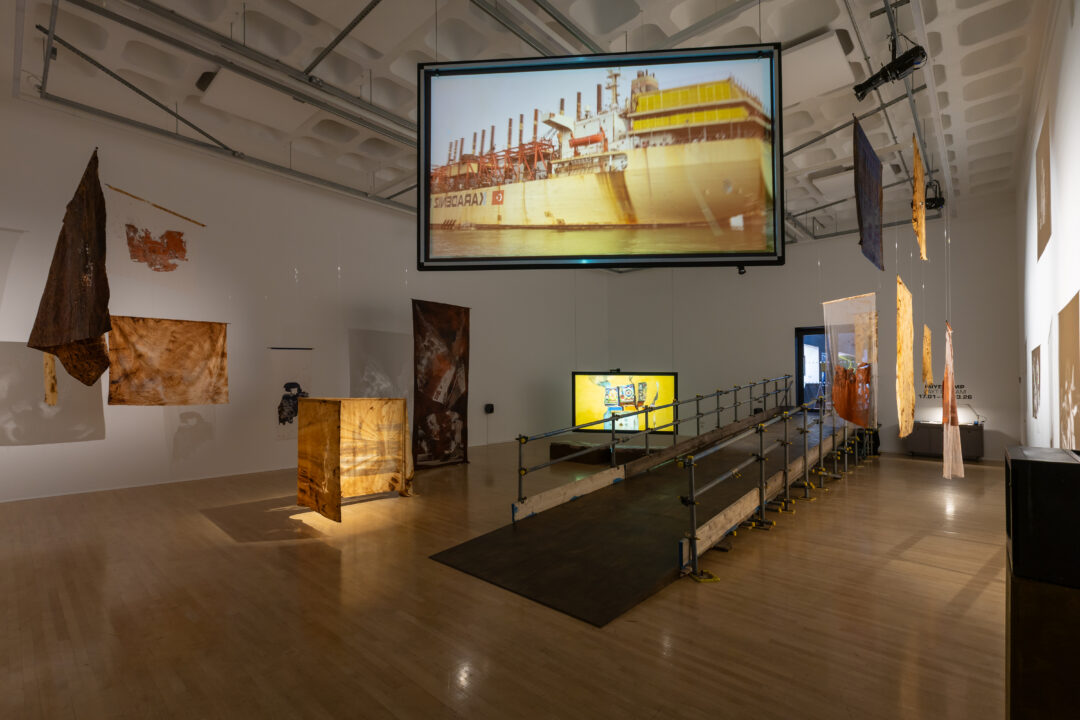
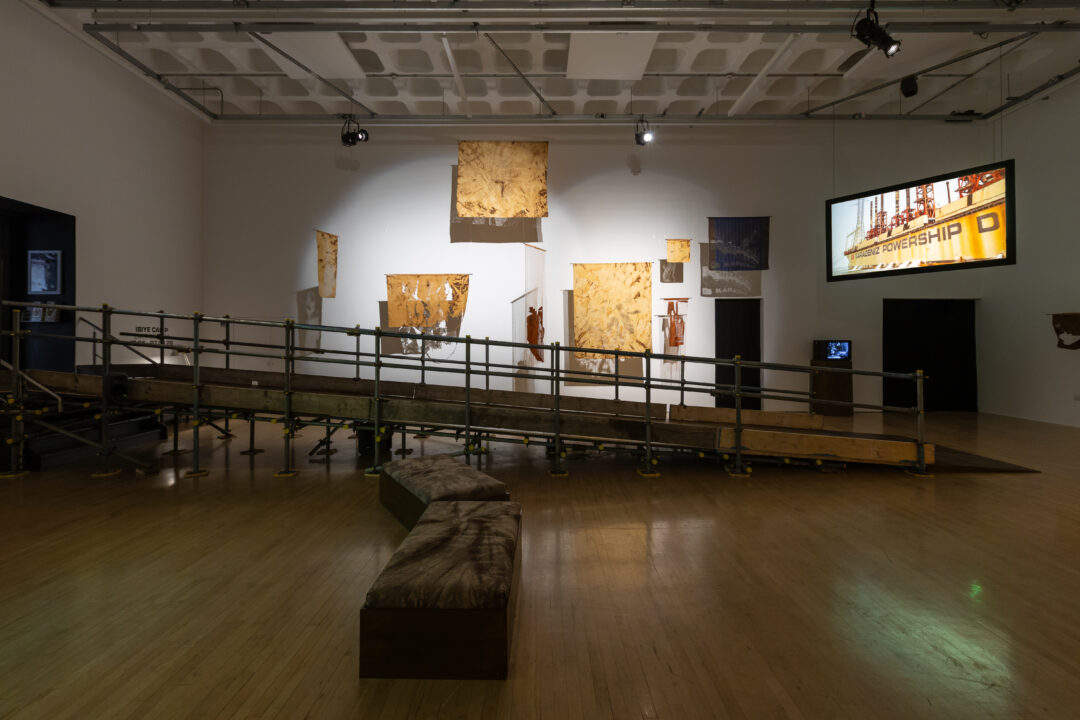
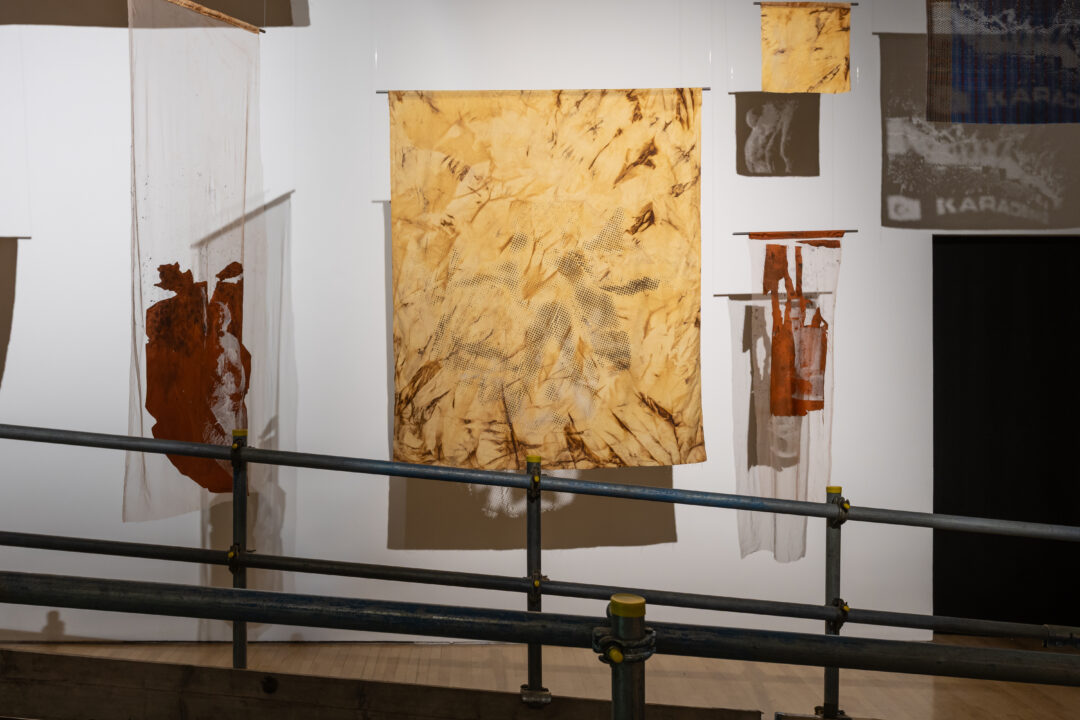
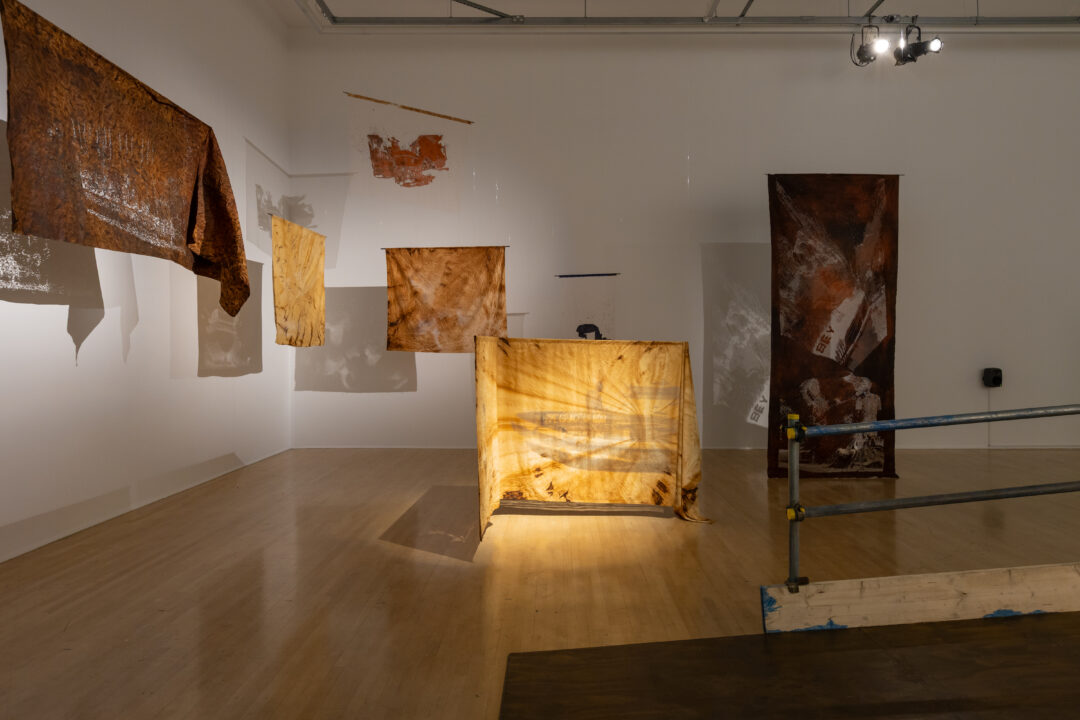
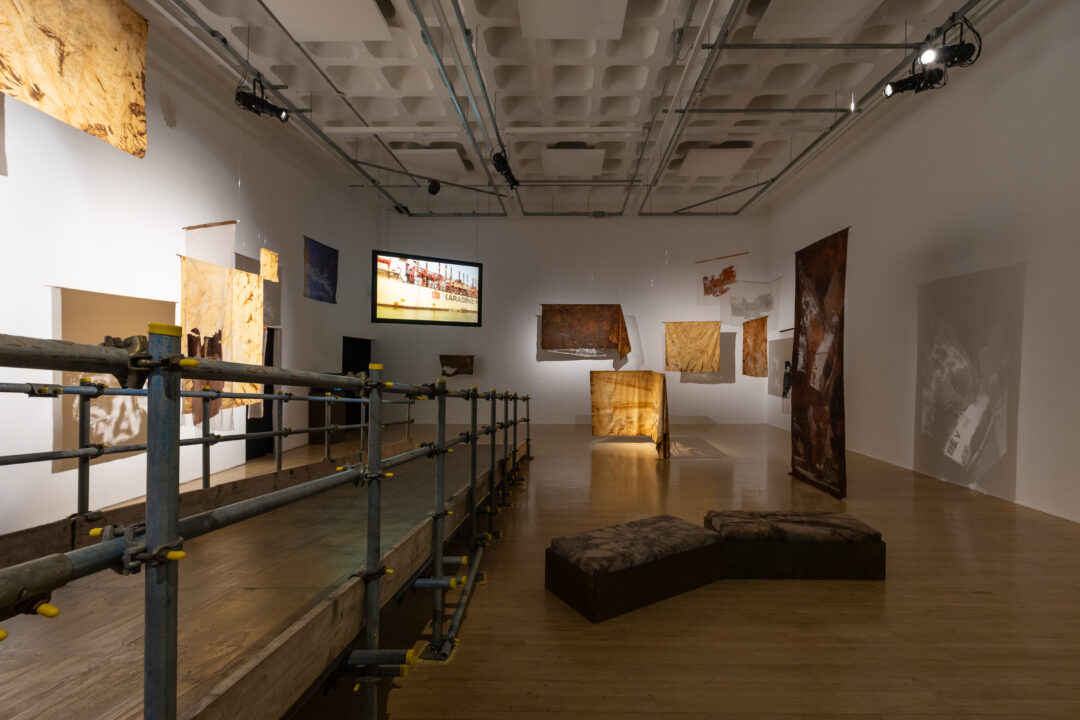
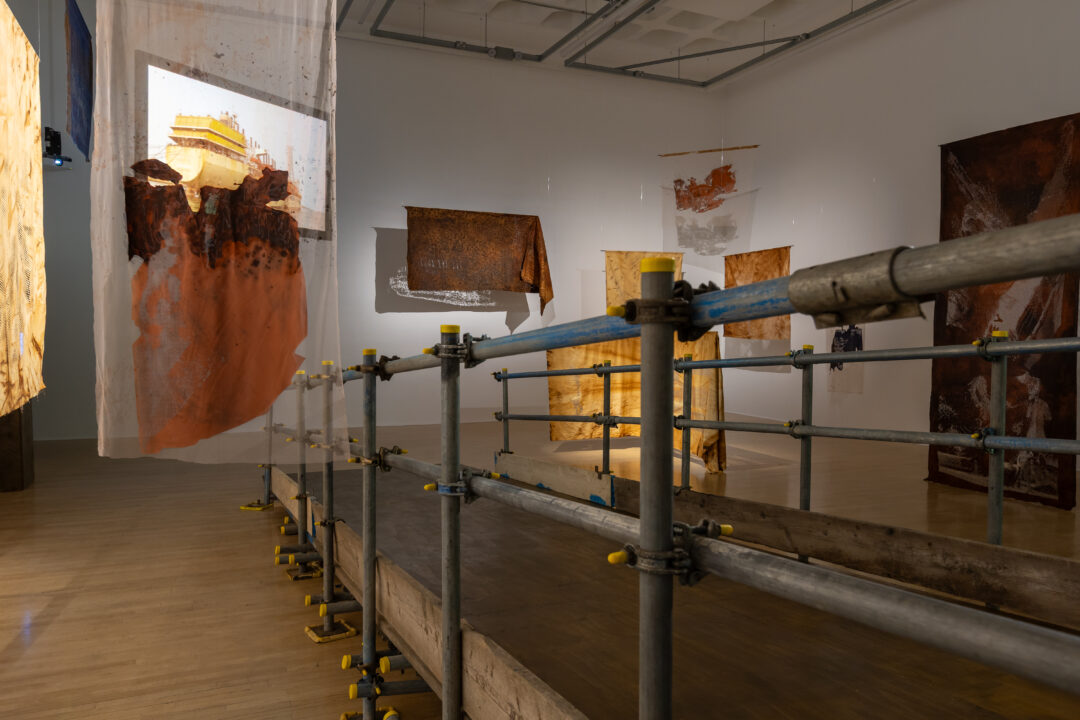
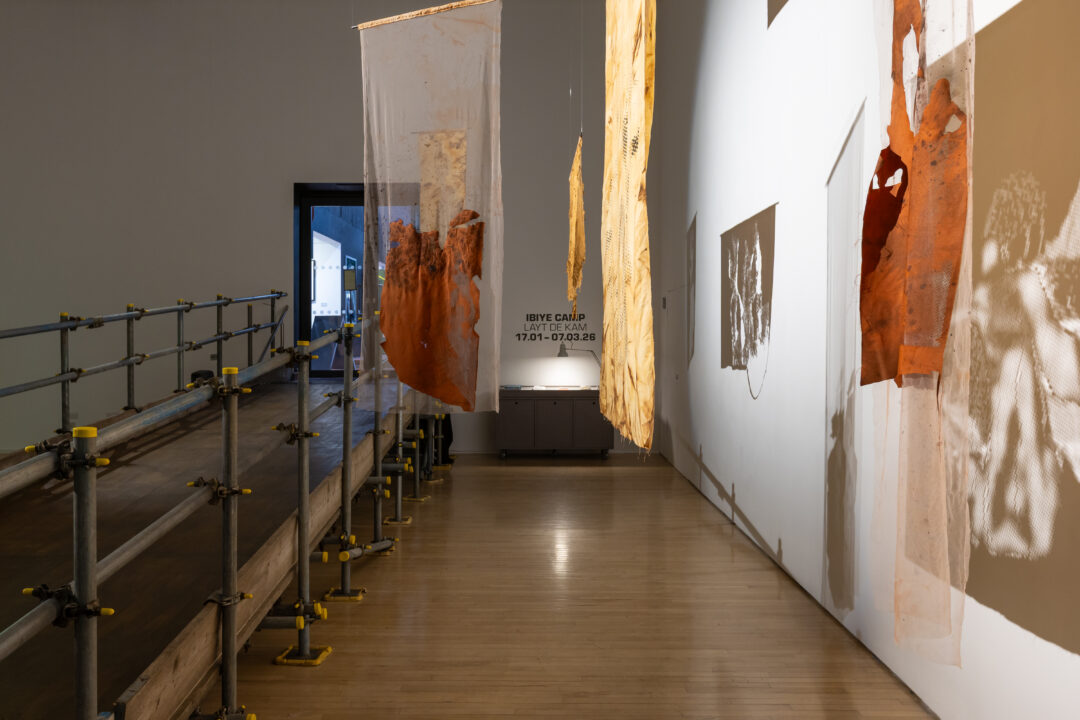
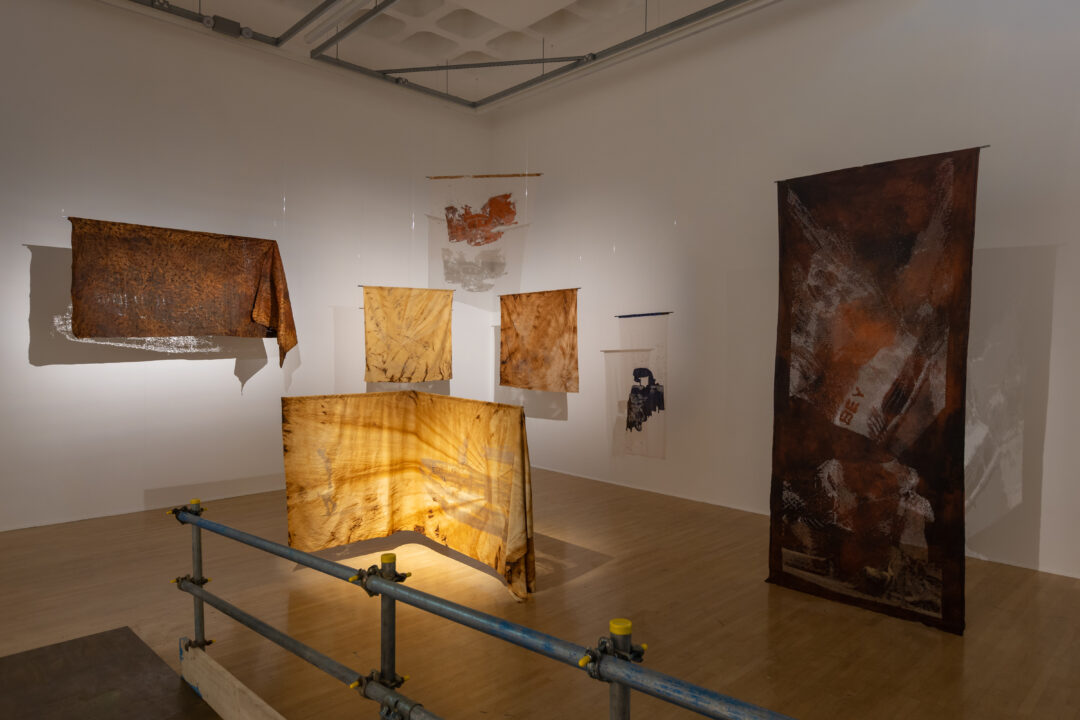
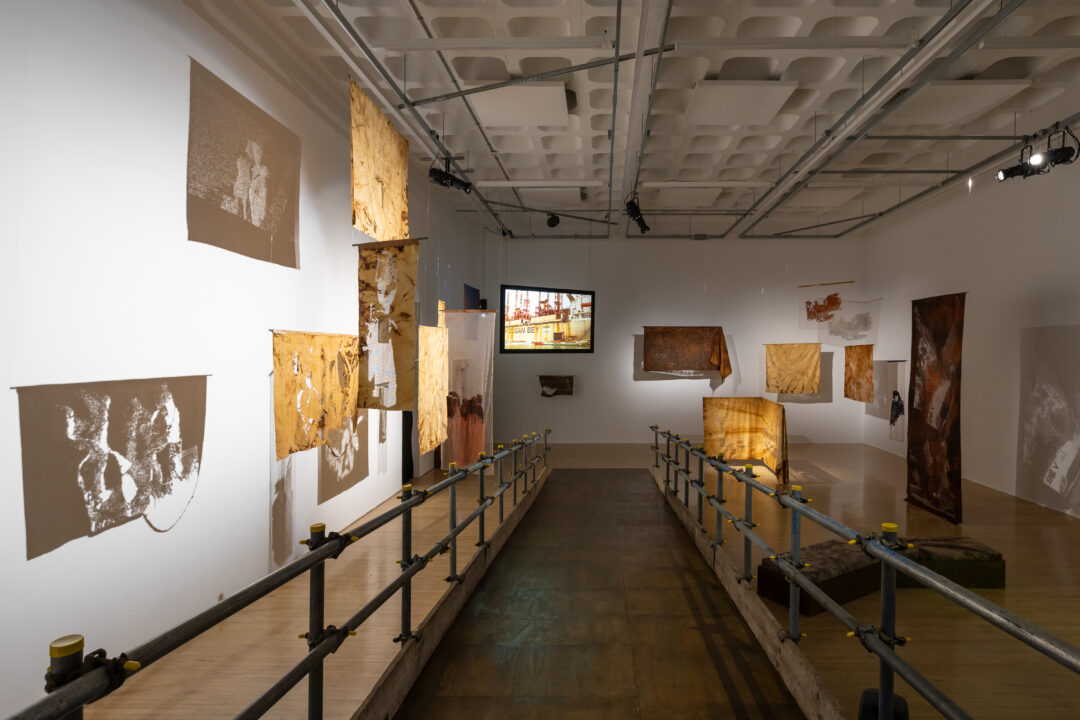
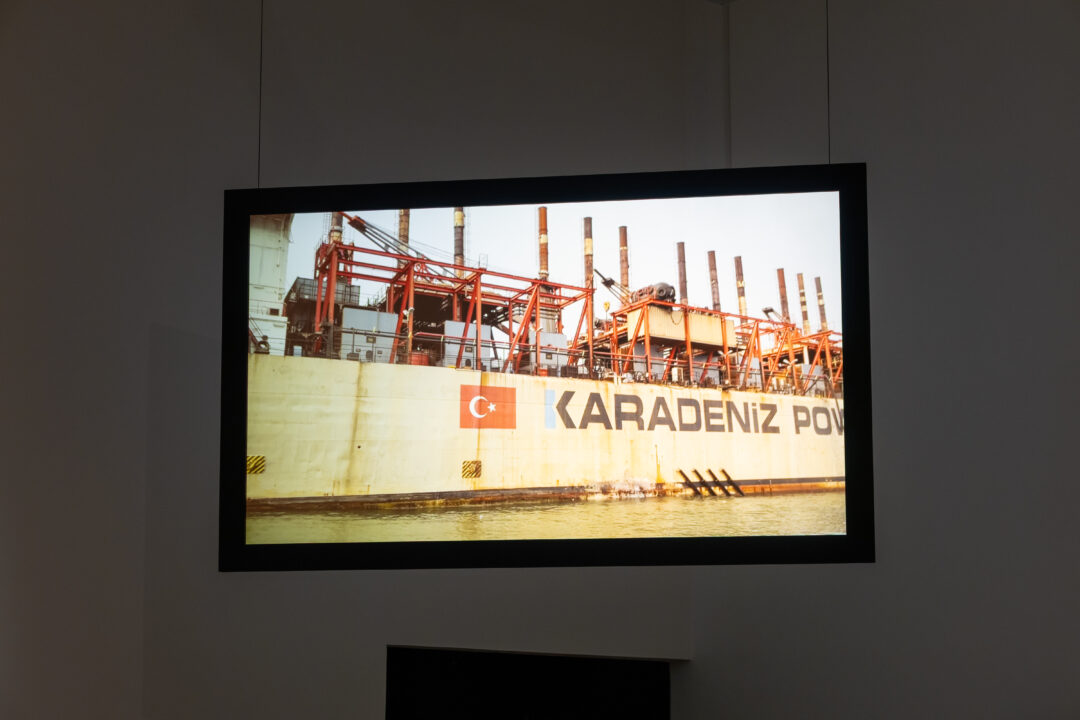
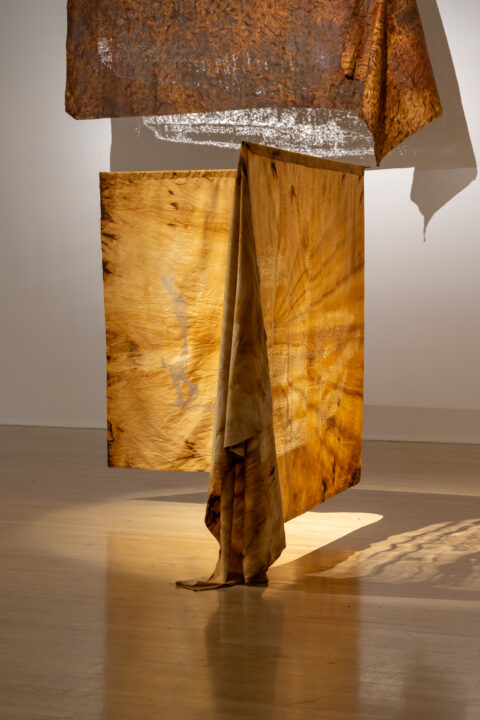
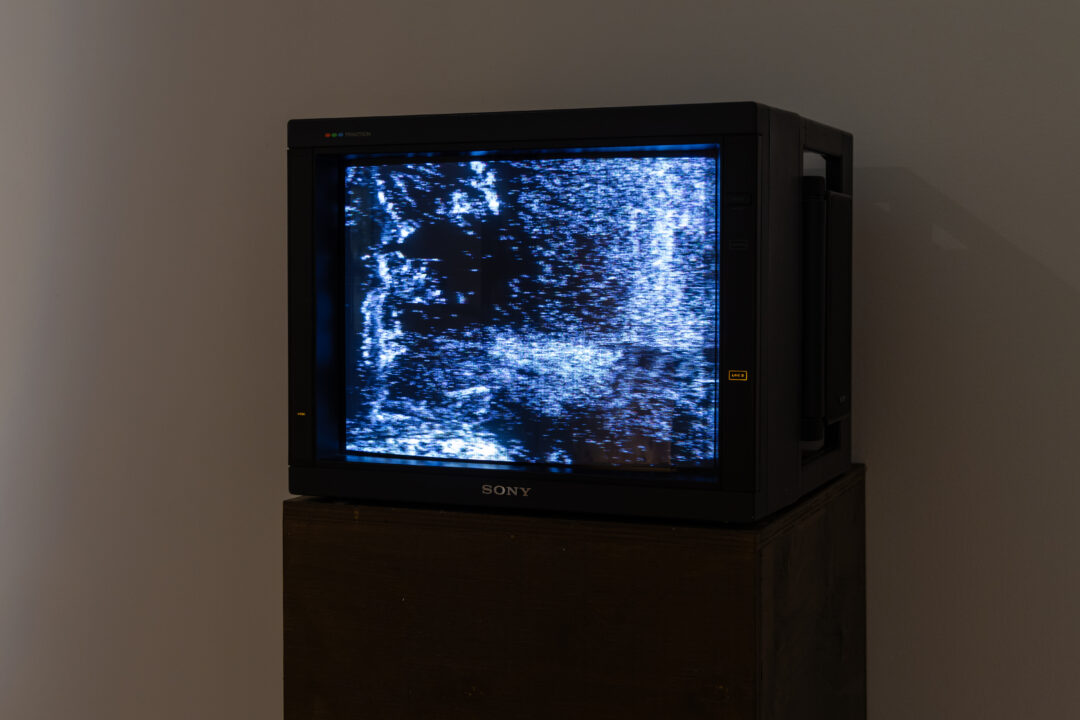
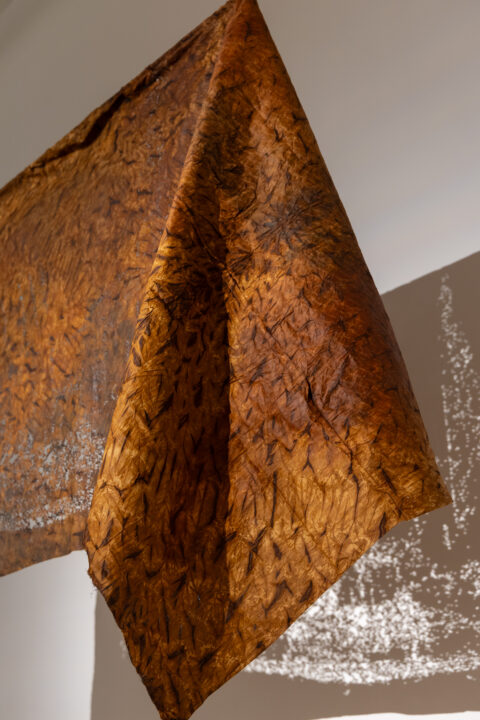
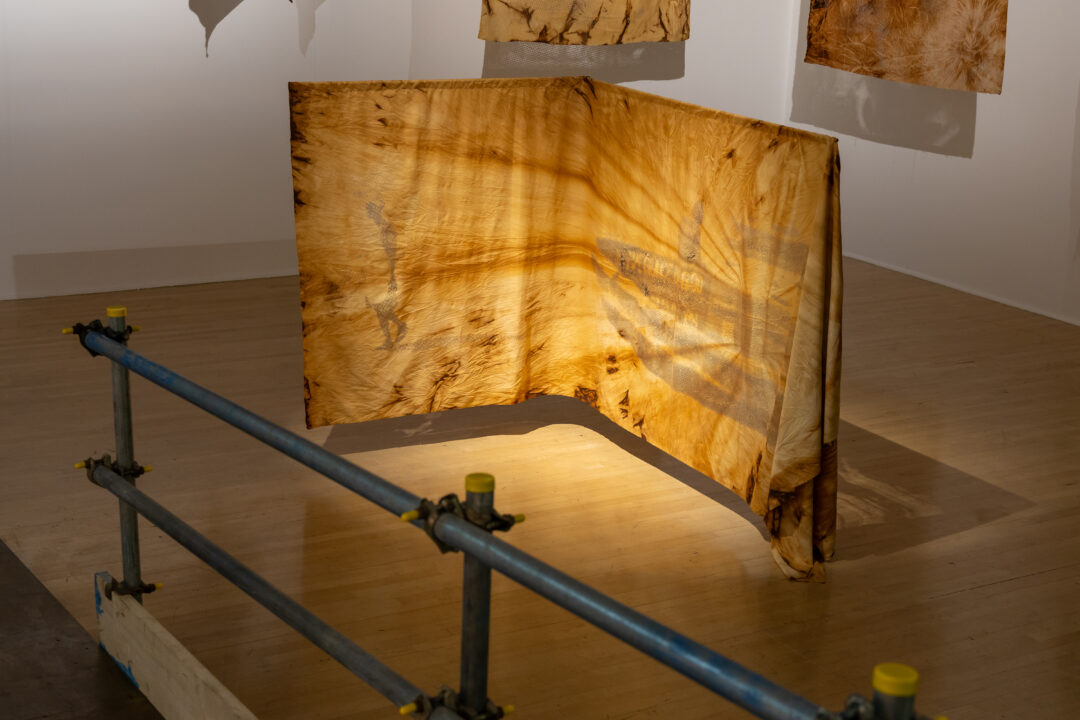
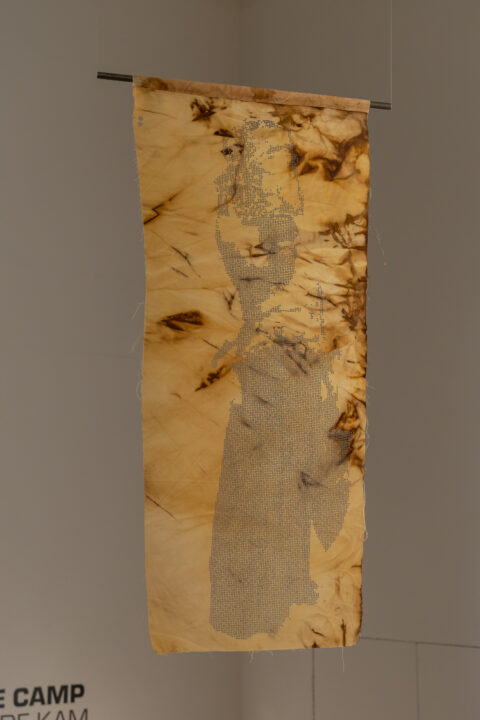
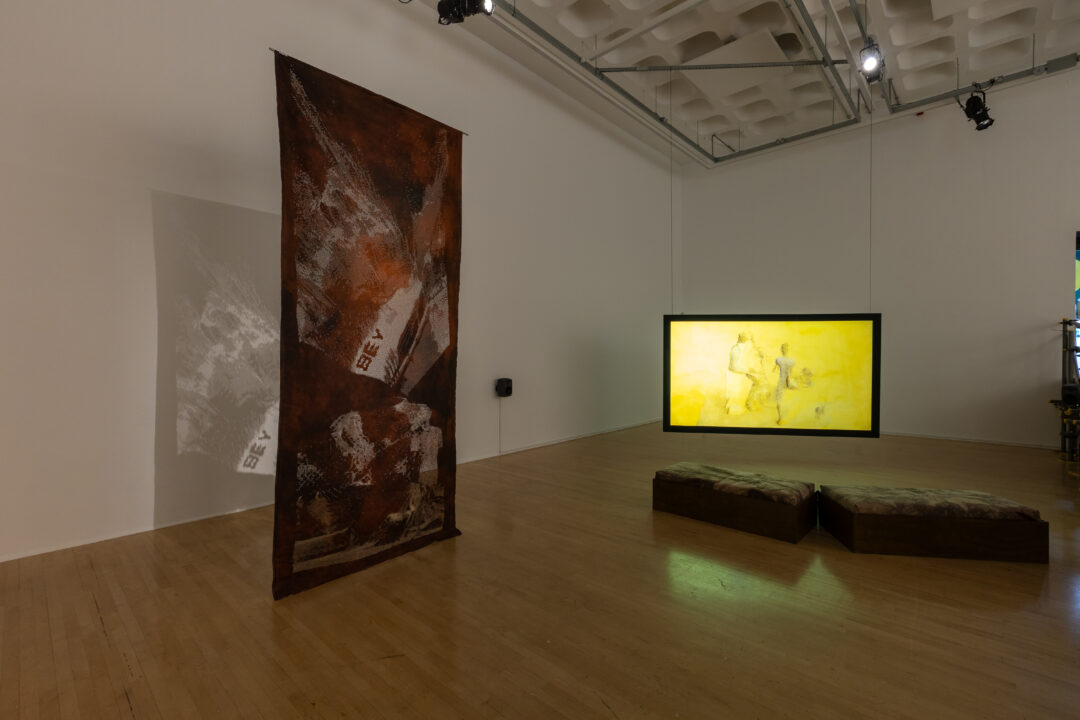
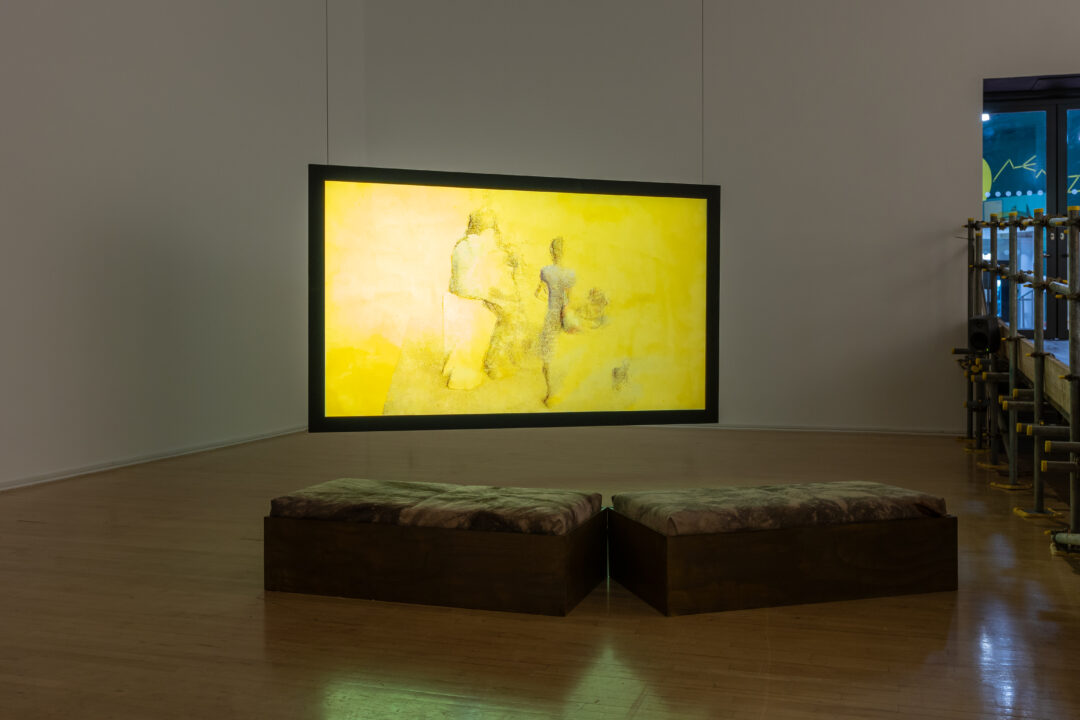
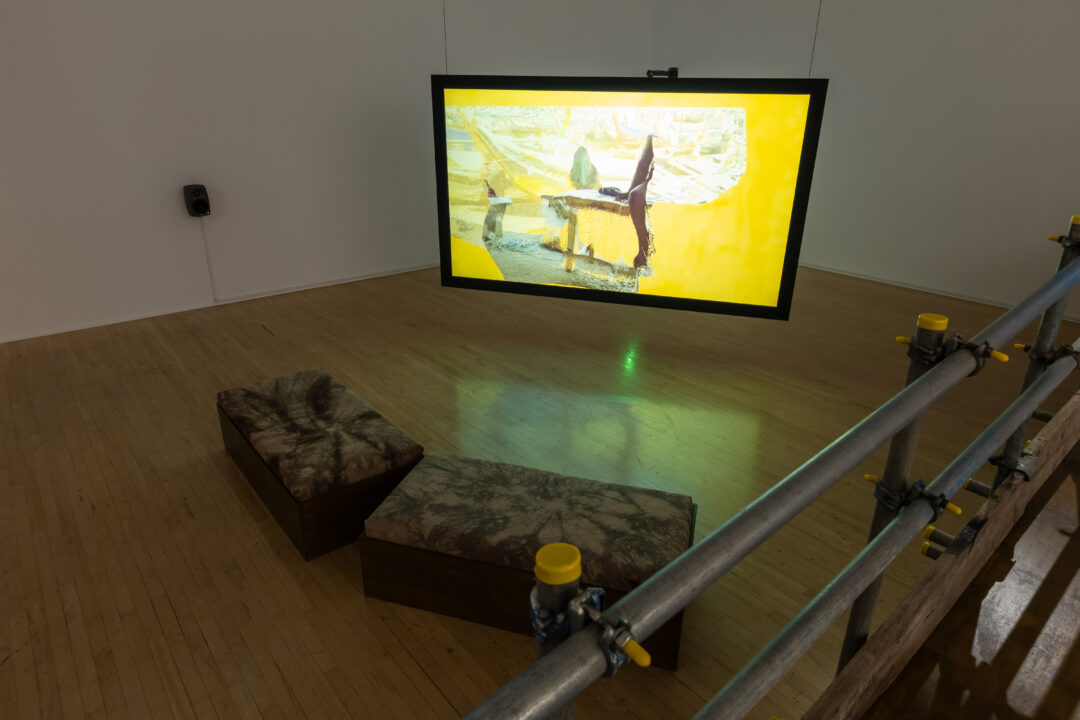
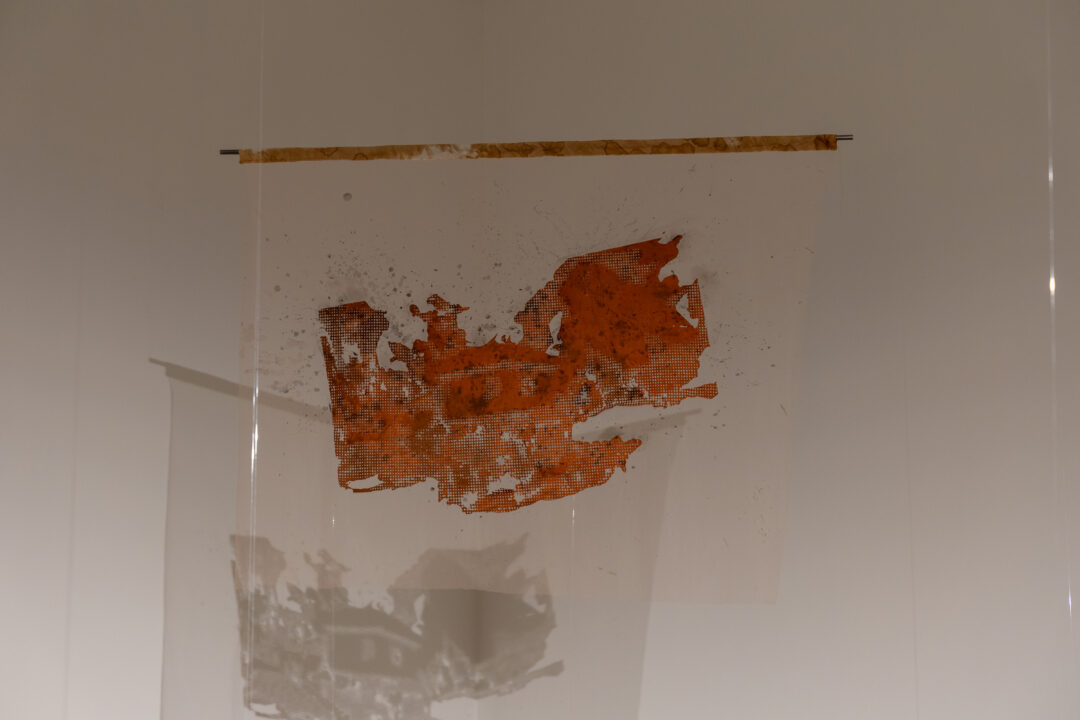
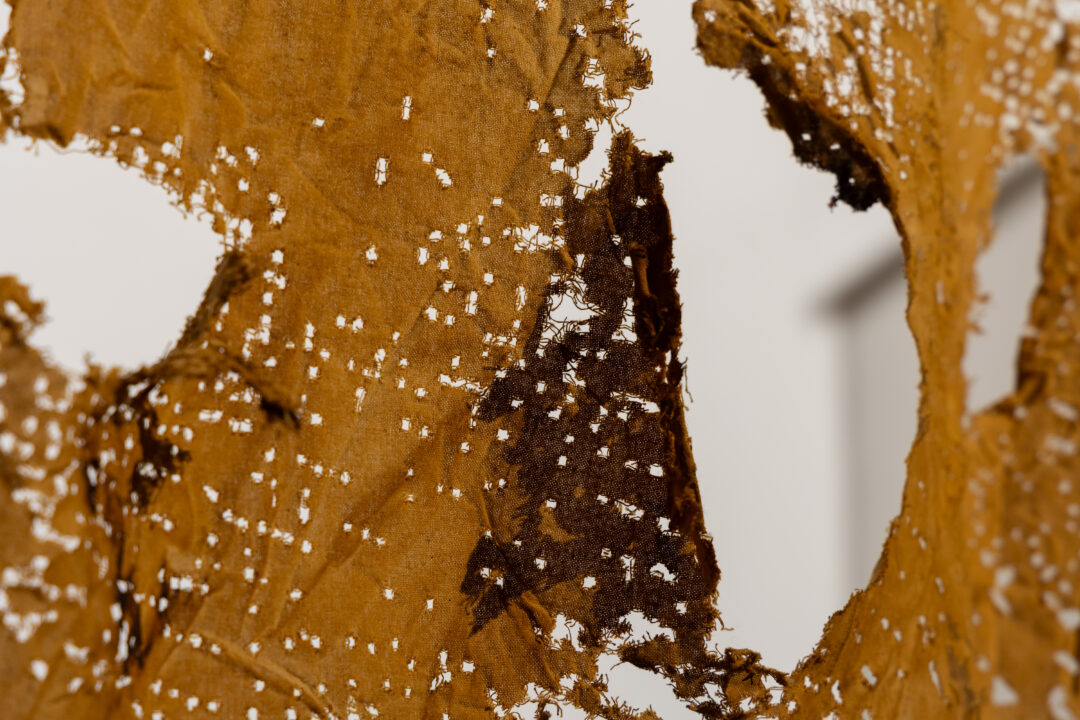
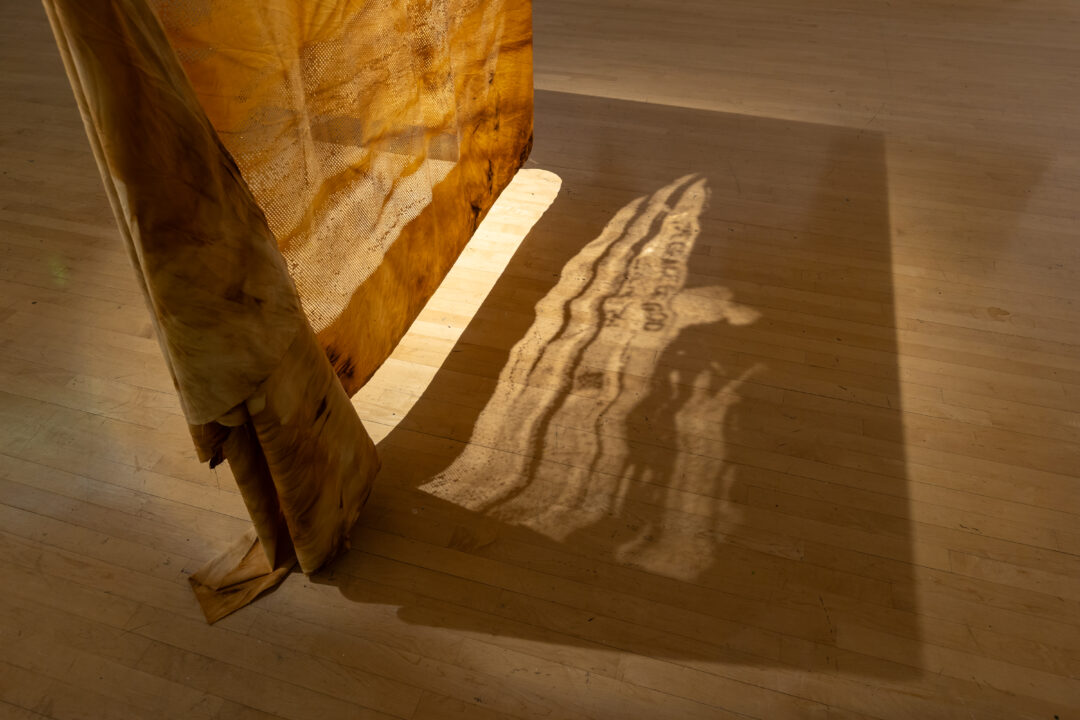
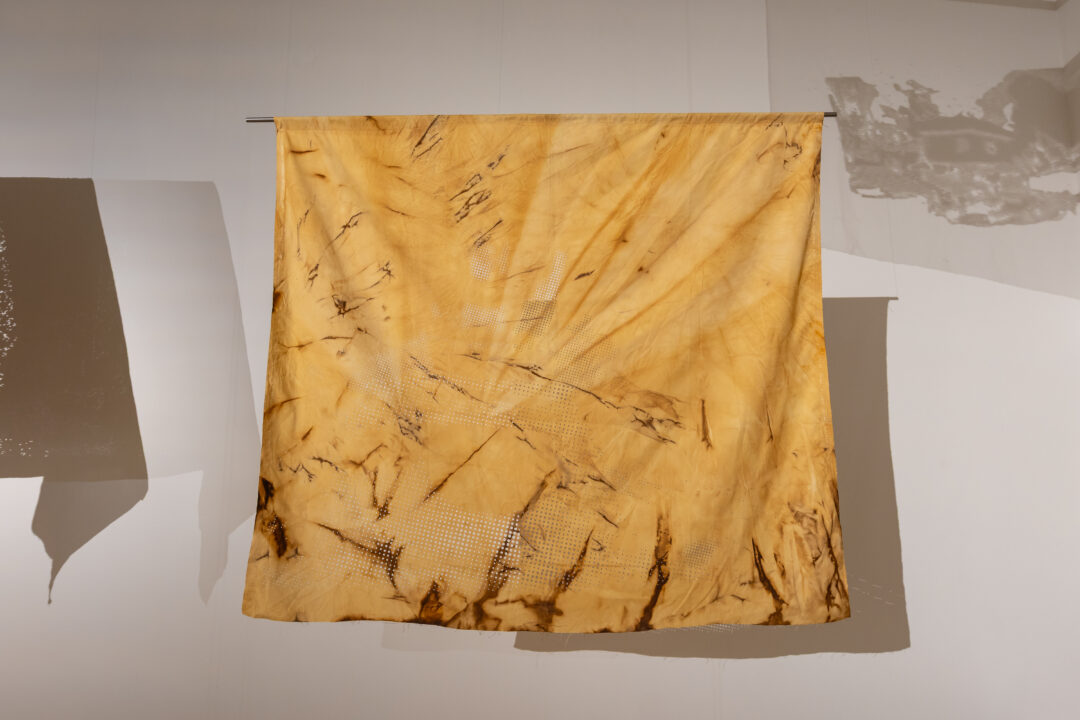
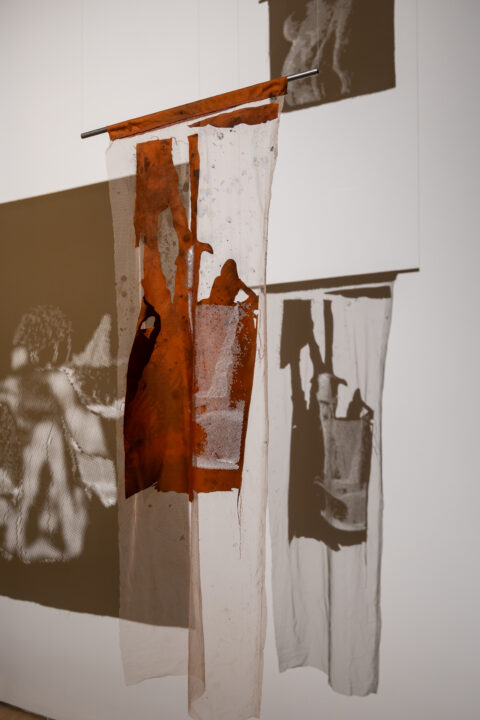
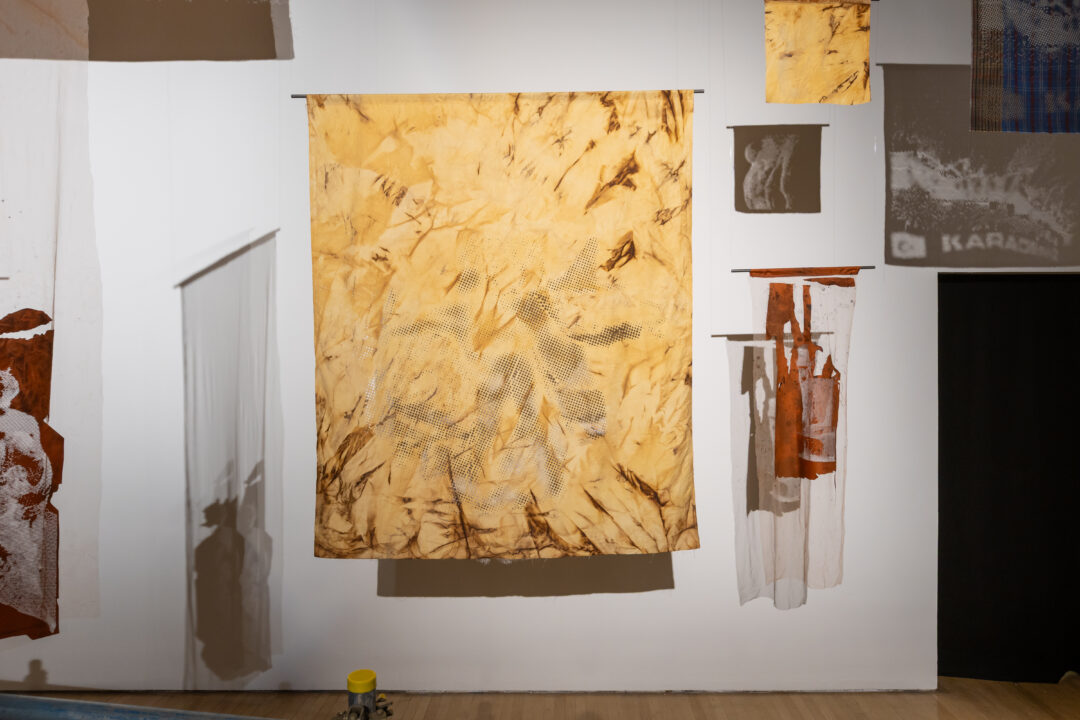
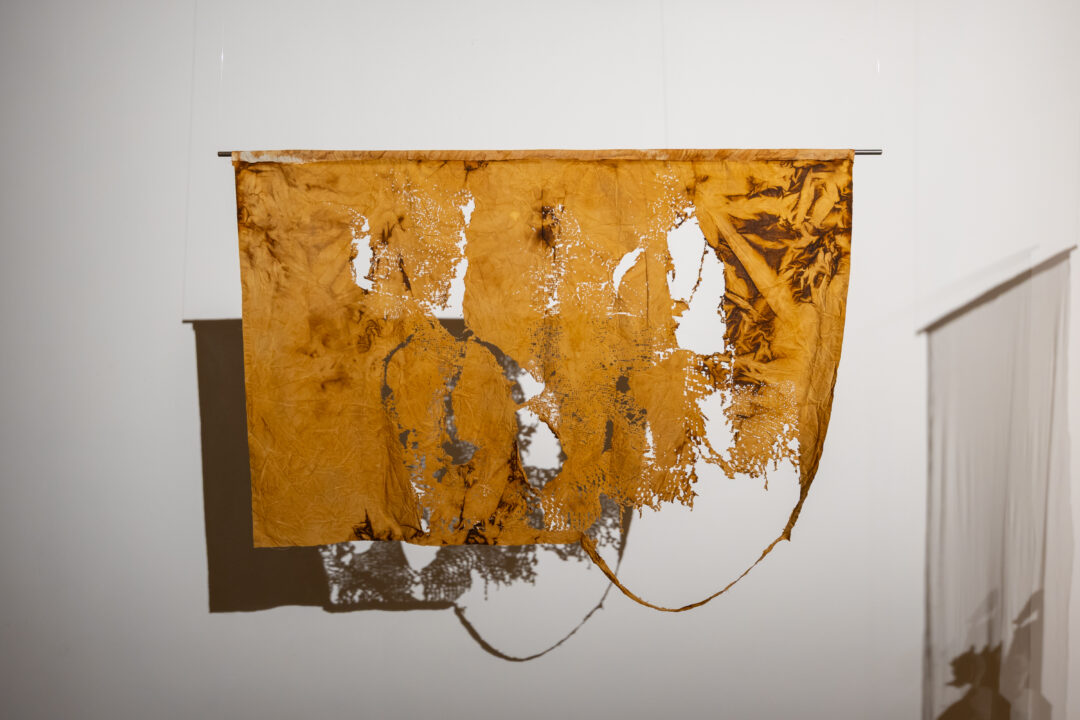
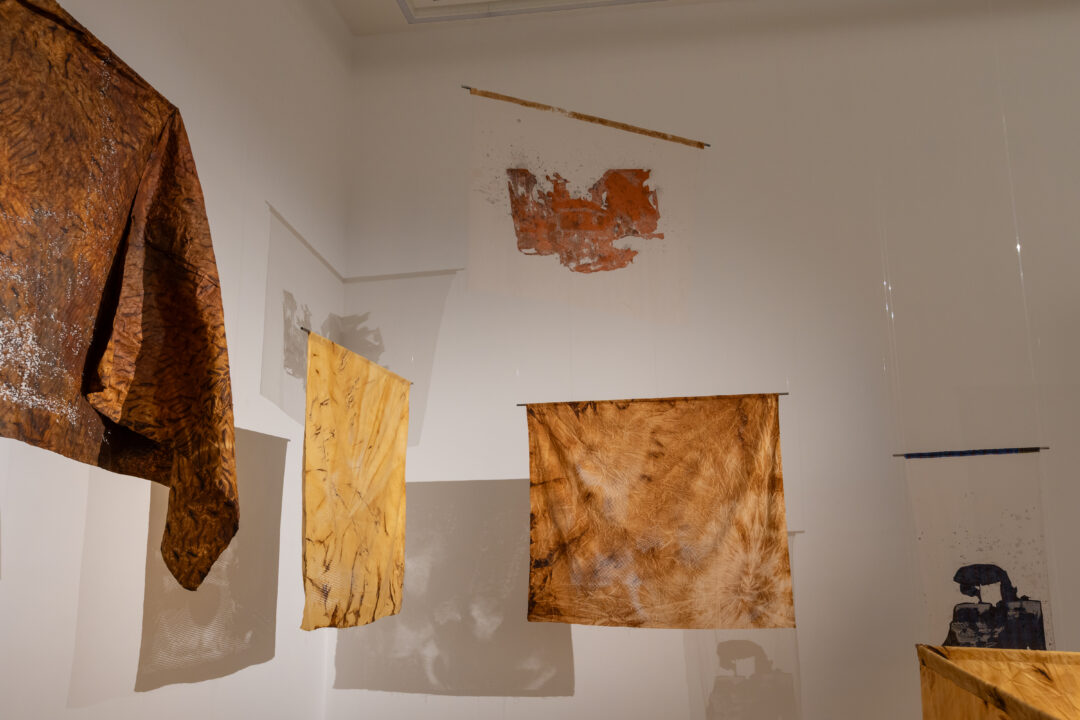
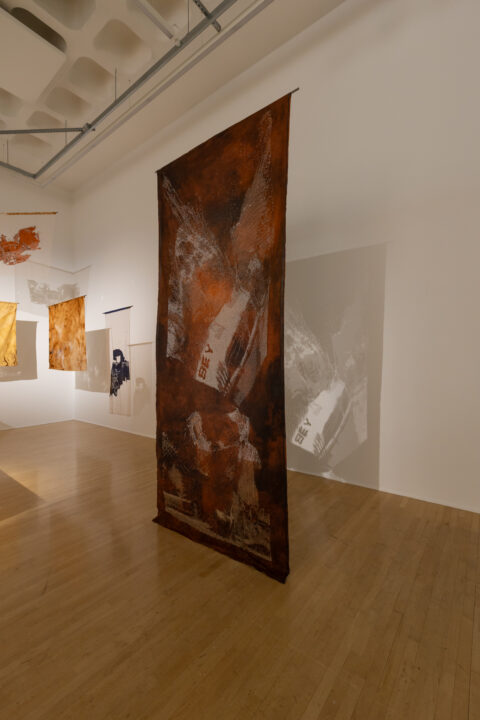
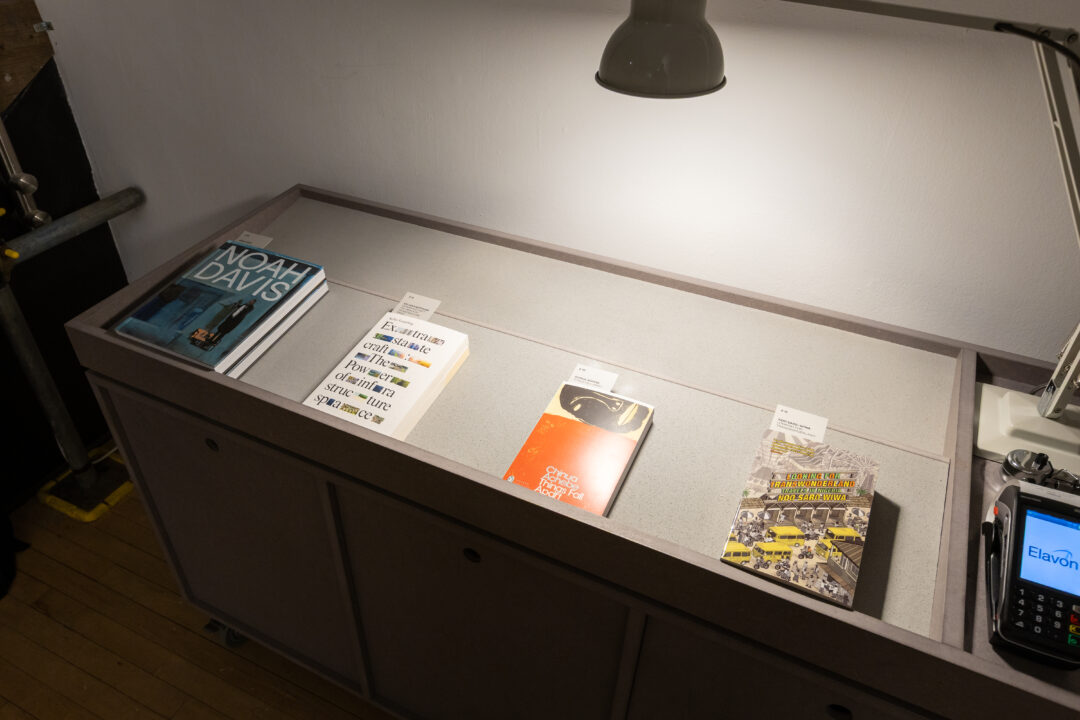
For the 28th instalment of the Bonington Vitrines series, we’re delighted to present Someone’s Doing Something, a project by London based curatorial, research and archival platform Gestures, developed in dialogue with writer Isabelle Bucklow.
This project, featuring artists such as Stuart Sherman, Simon Moretti, and Yvonne Rainer, will present a selection of work that explores gesture as a form of artistic expression. Whilst some gestures are recorded through notation or residue, others survive only in documentation or retelling.
The works in Someone’s Doing Something reflect a broad range of these approaches, from the formal to the informal, the scripted to the instinctive, and considers these against shifting times and contexts.
In considering the location of the Bonington Vitrines, as a space that is moved through by 100’s of people each day going about their daily business, this quote by theatre director Peter Brook is considered:
“I can take any empty space and call it a bare stage. A man walks across this empty space whilst someone else is watching him, and this is all that is needed for an act of theatre to be engaged” – Peter Brook.
Full list of artists: Simon Moretti, Allan Kaprow, Richard Schechner, Charlotte Moorman, Nam June Paik and Yoshi Wada, Mieko Shiomi, Sue Tompkins, Bruce McLean, Bruce Gilbert, with Angela Conway and Michael Clark, Stuart Sherman, Anastasia Coope, Yvonne Rainer, Ricky Jay.
Gestures is a London based curatorial, research and archival platform that has organised exhibitions, interventions and projects in locations as diverse as sidewalks in New York and Travelodge hotel rooms, as well as exhibition spaces such as the Postal Museum in London and 47 Bedford Street in London.
Gestures is currently conducting long term research into Situation, a space in London that existed in the 1970s that did early exhibitions with artists including On Kawara, Bruce McLean and Bas Jan Ader.
Along with colleagues WC2E9HA, The Everyday Press aka Bunker Basement and Whatever Anderson, Gestures will open the shared exhibition space Chequers in Summer 2025.
View checklist and text by Isabelle Bucklow here.
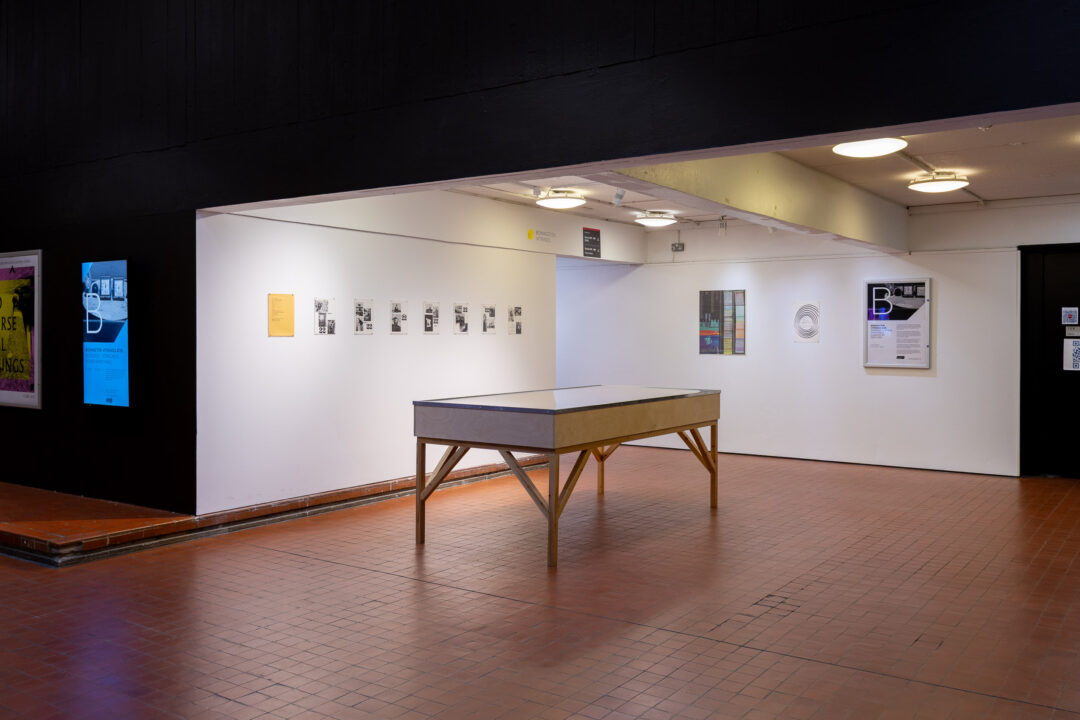
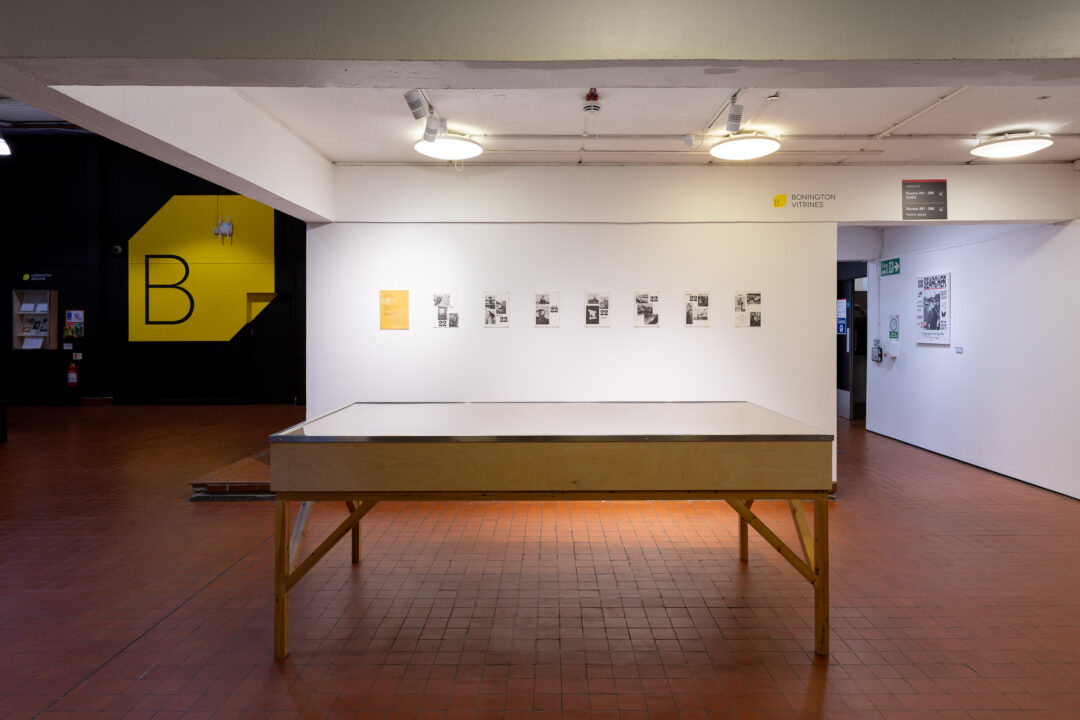
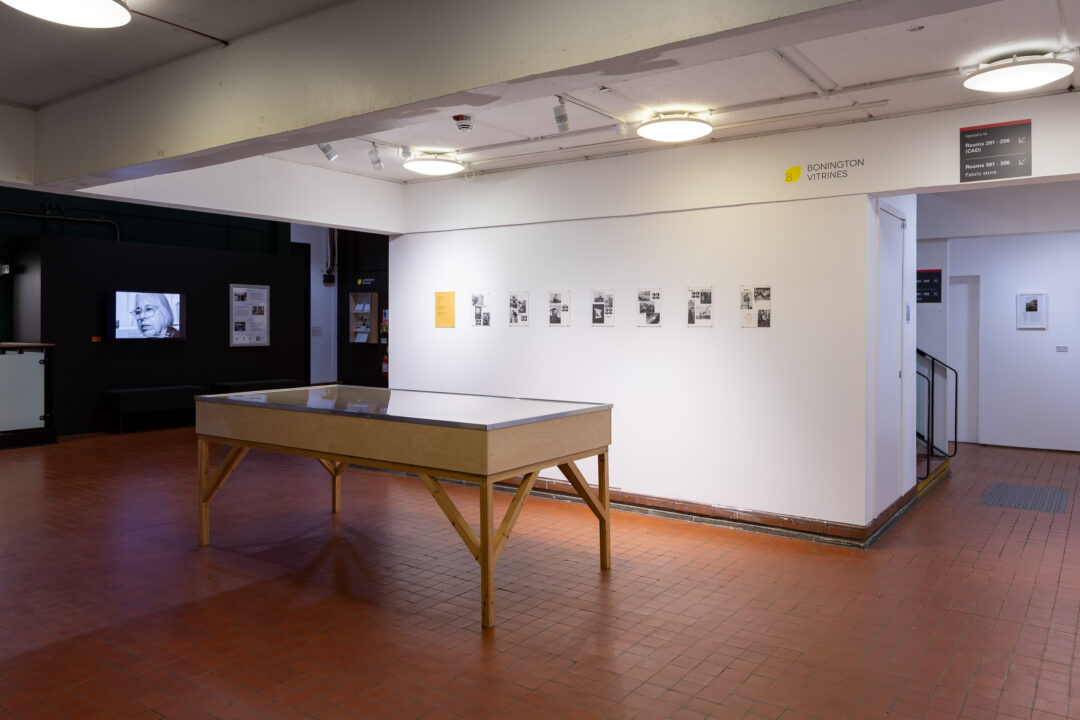
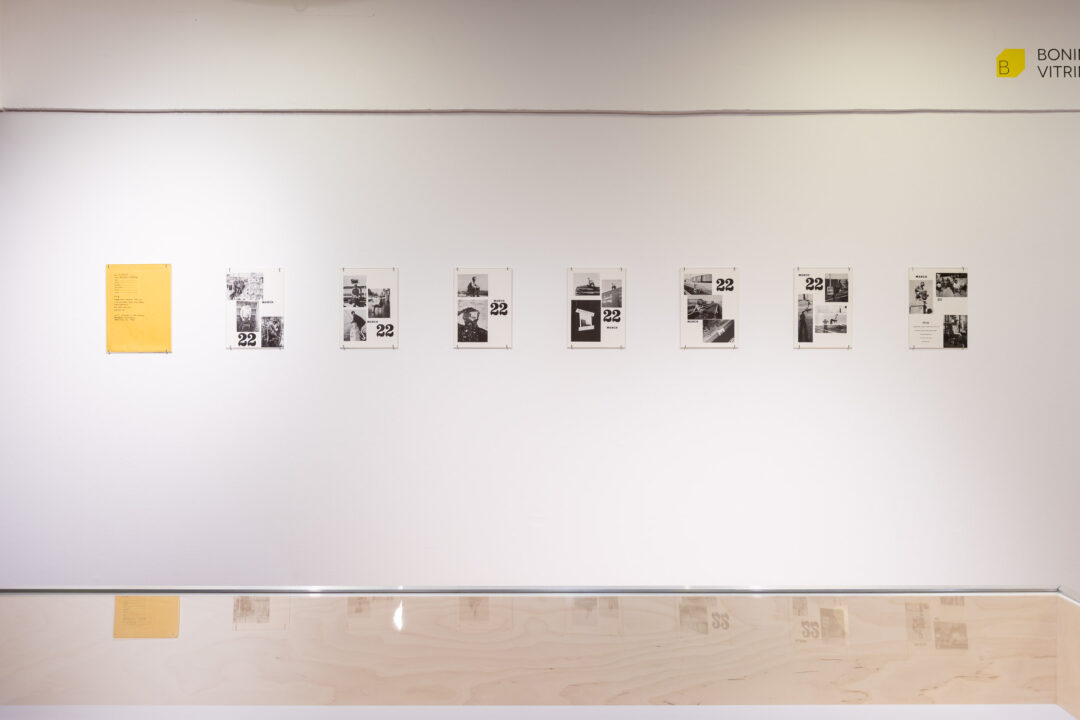
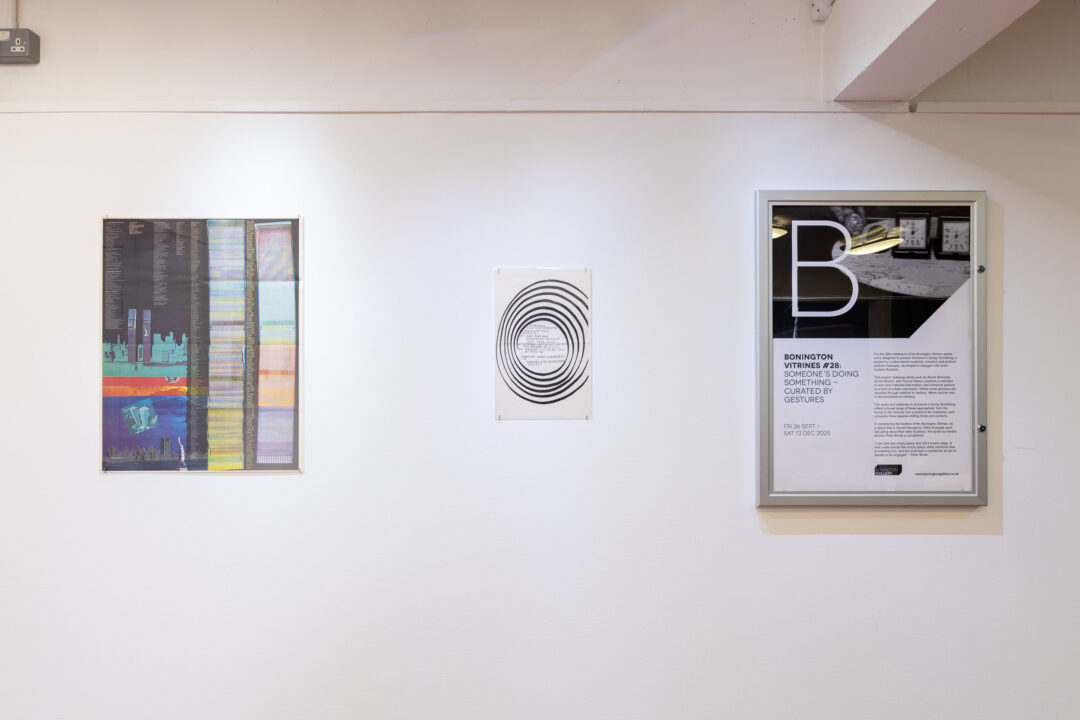
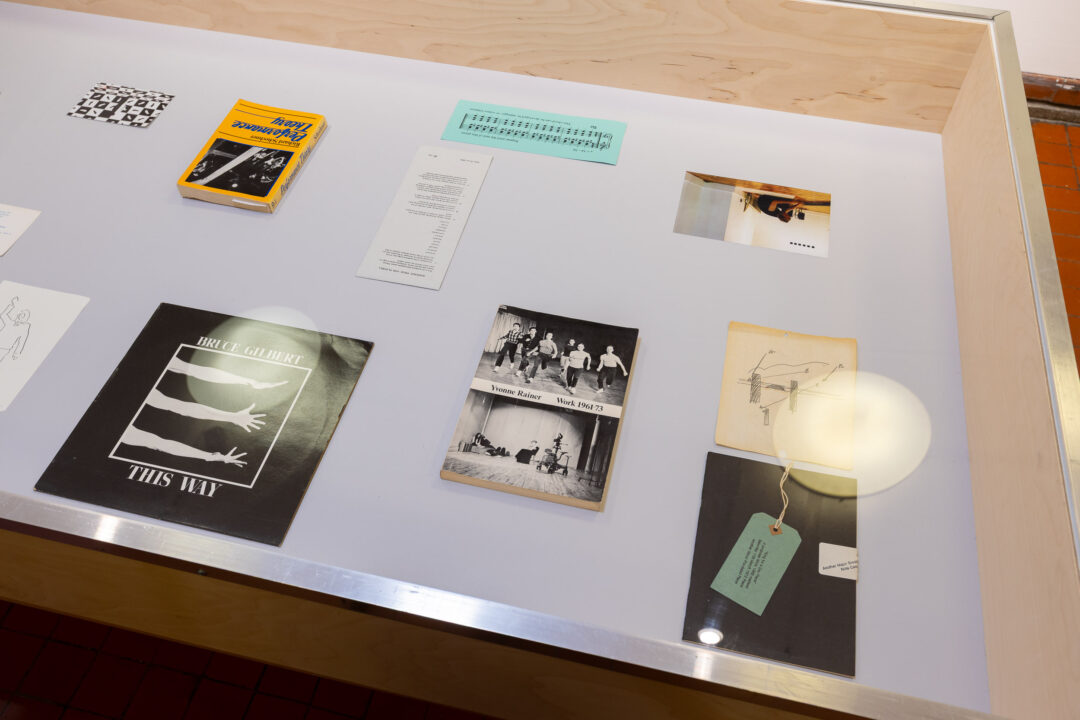
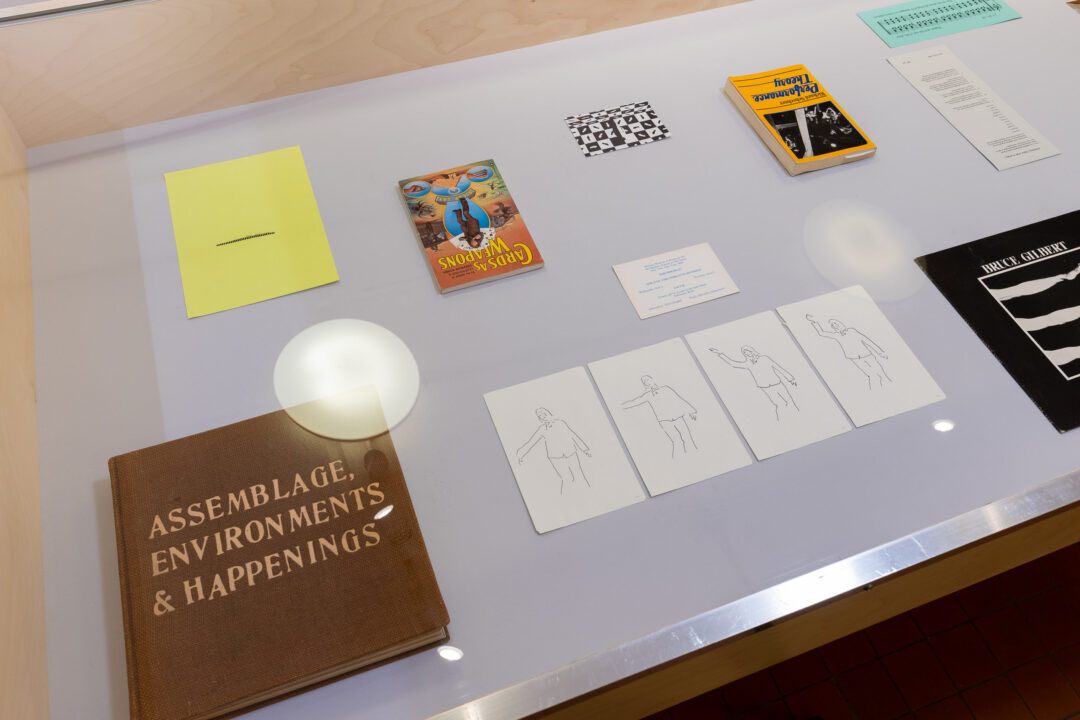
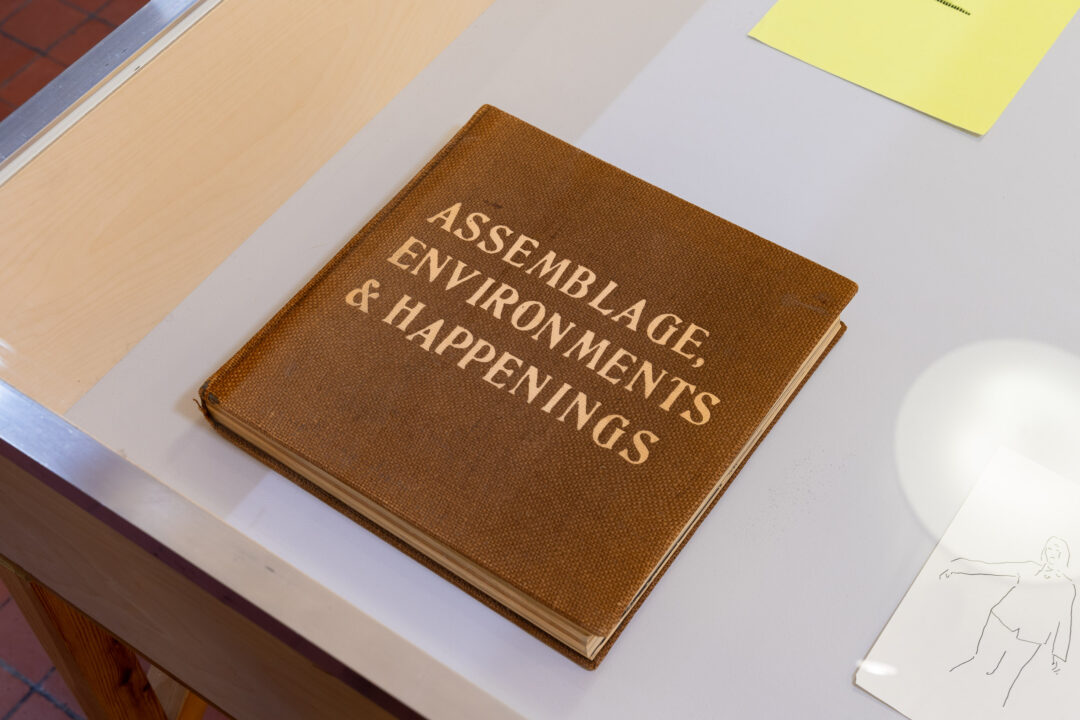
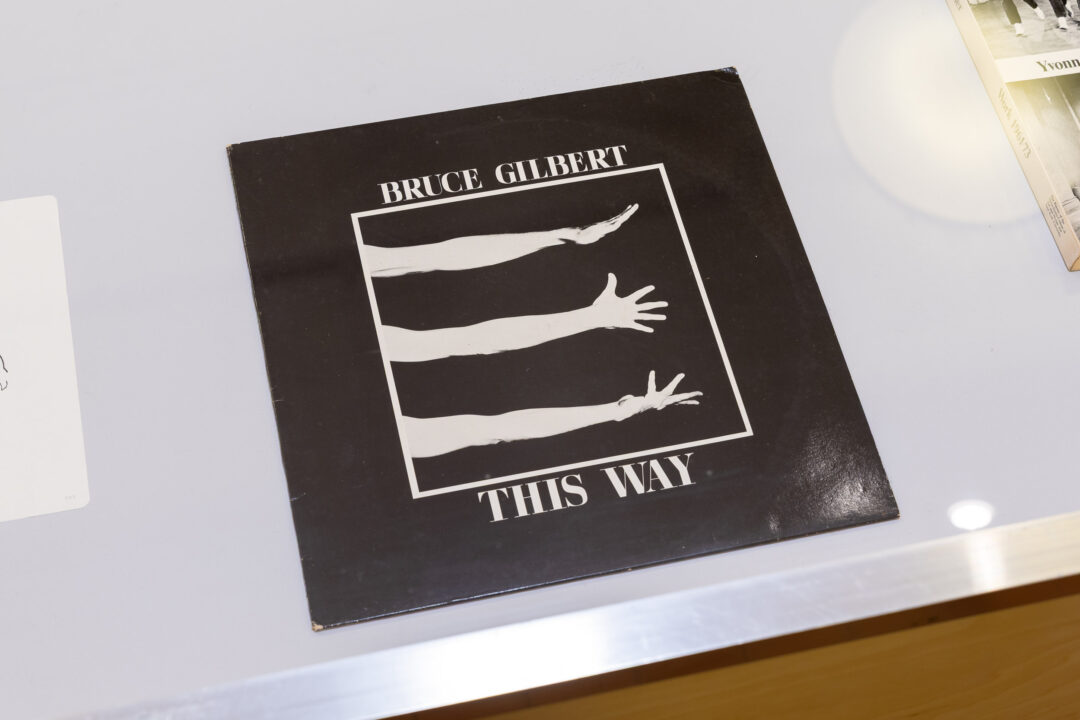
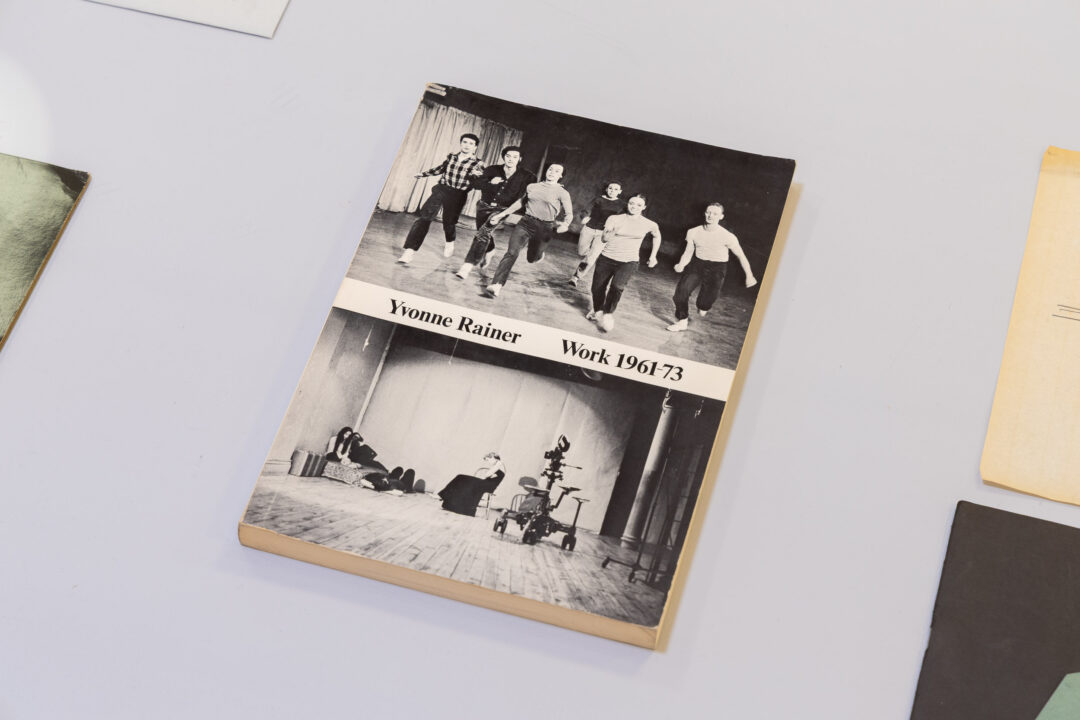
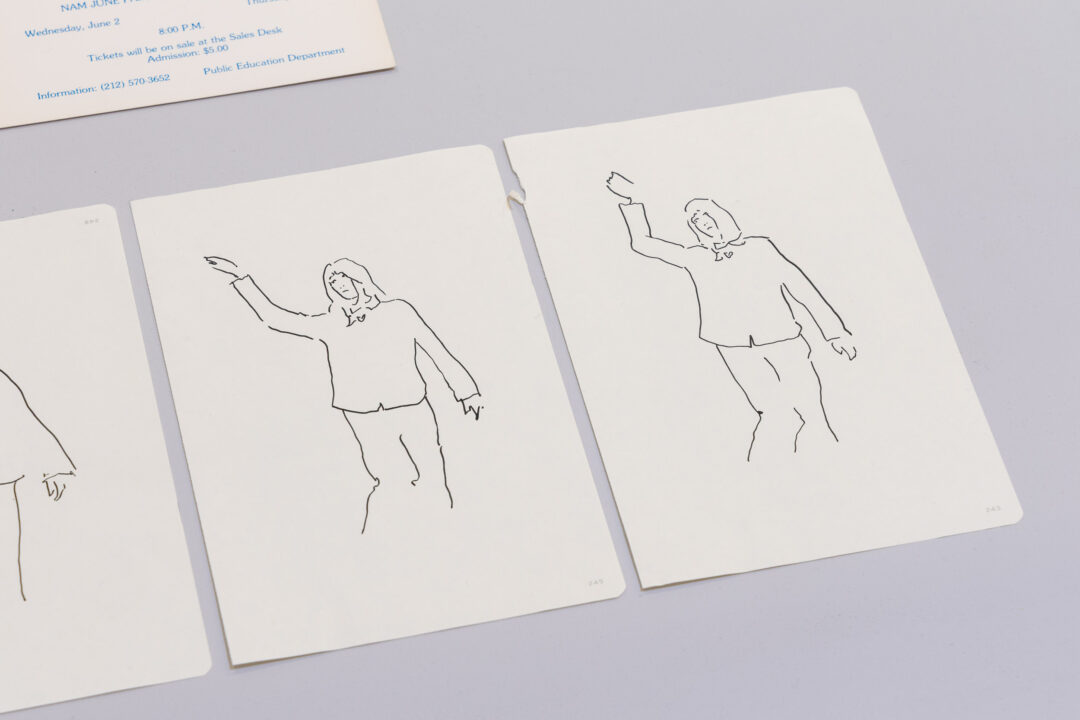
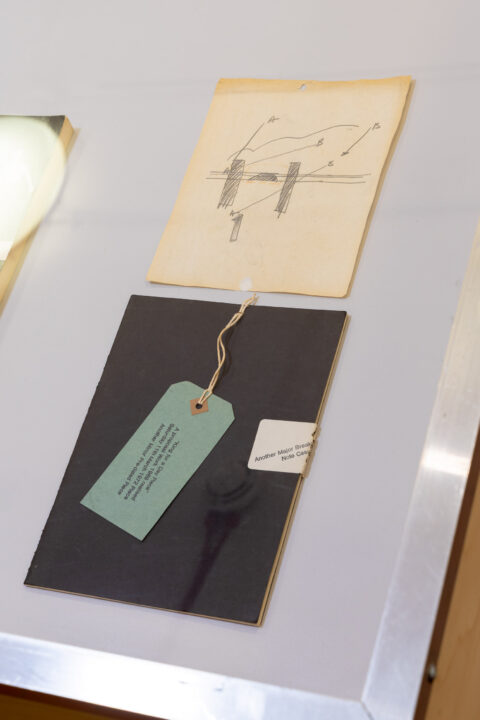
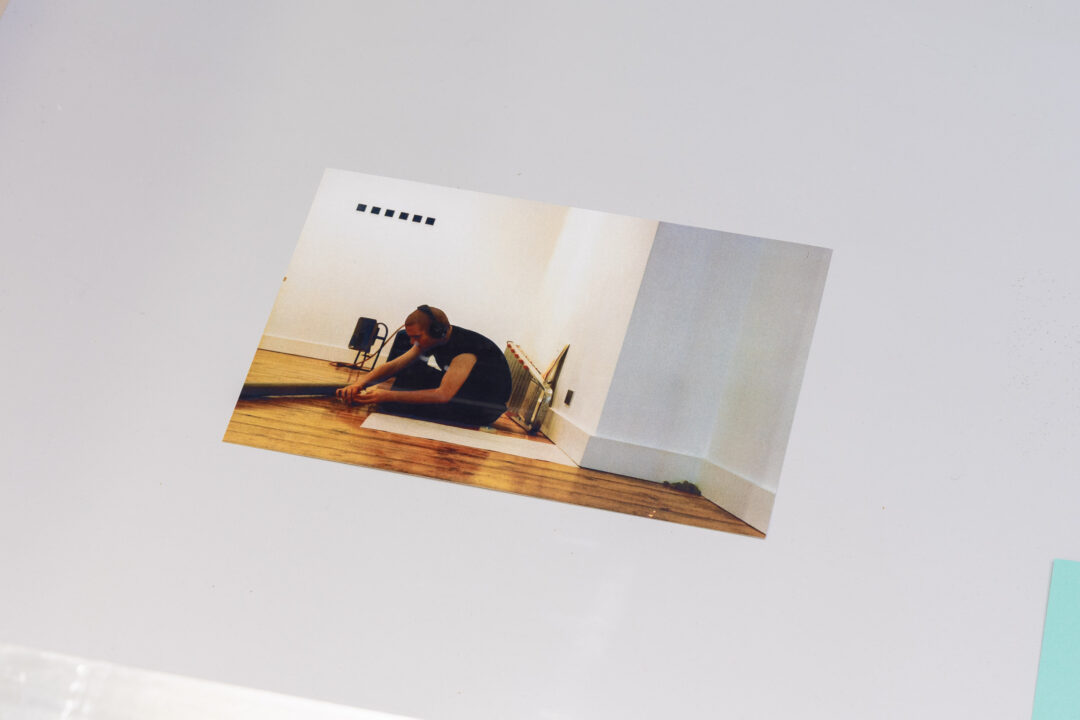
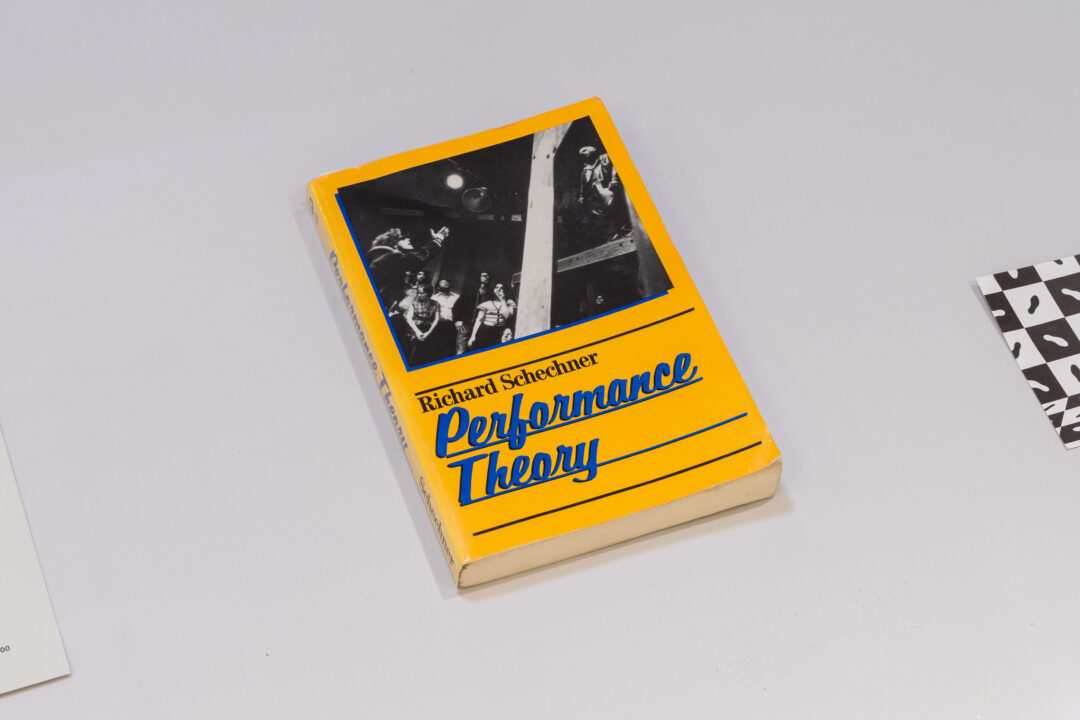
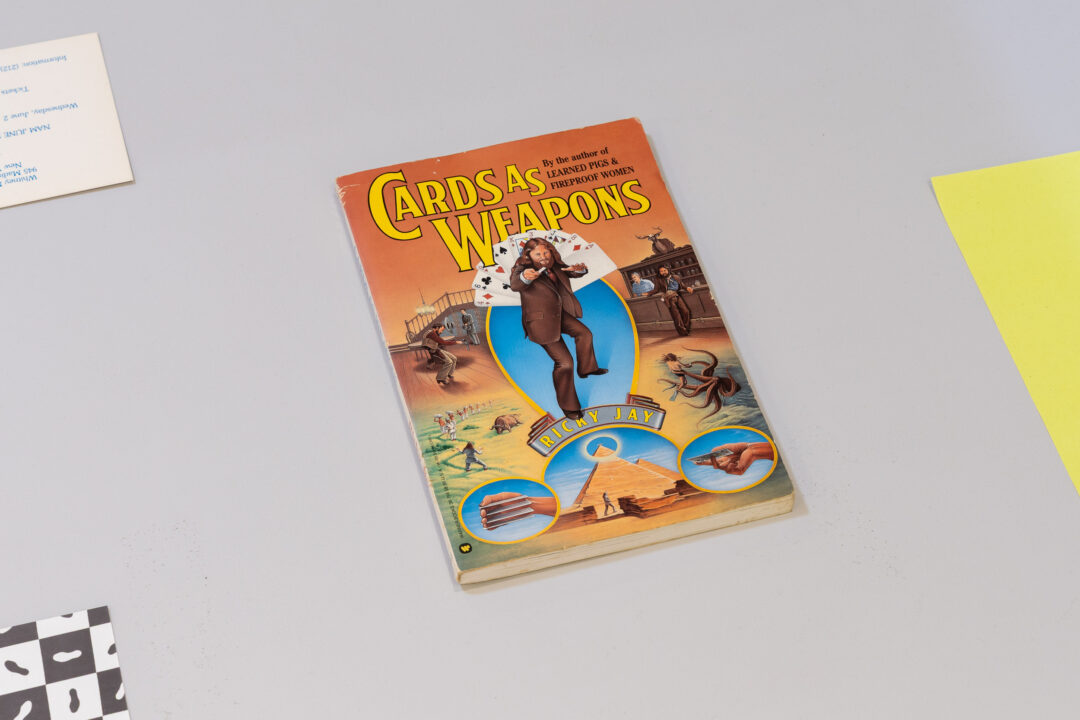
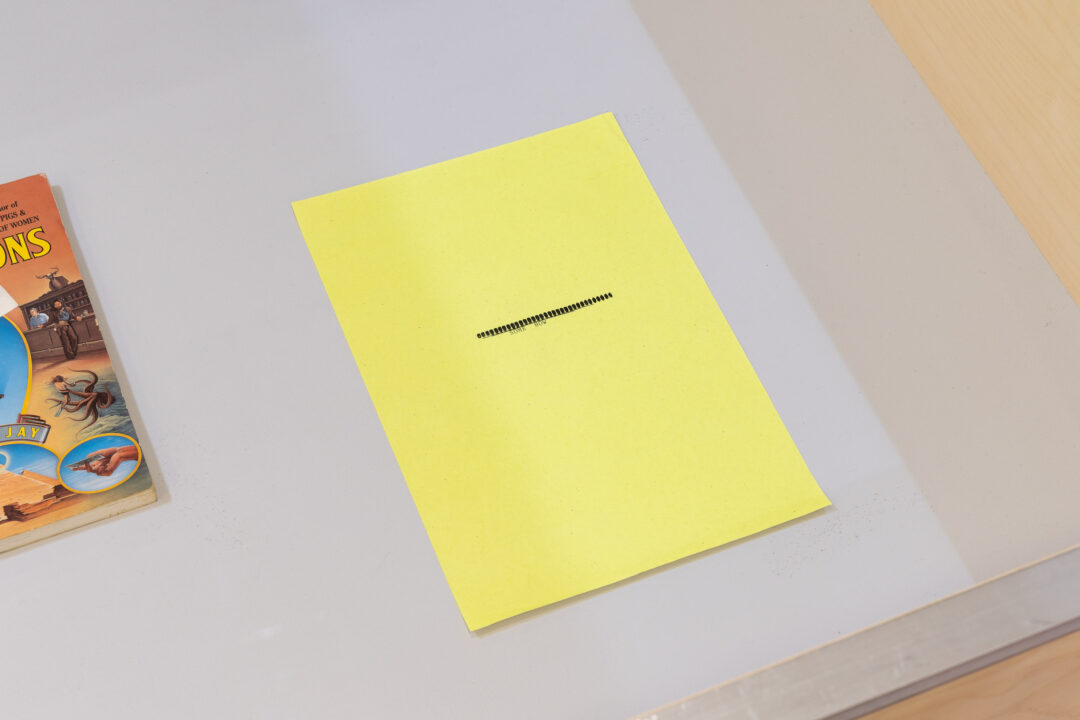
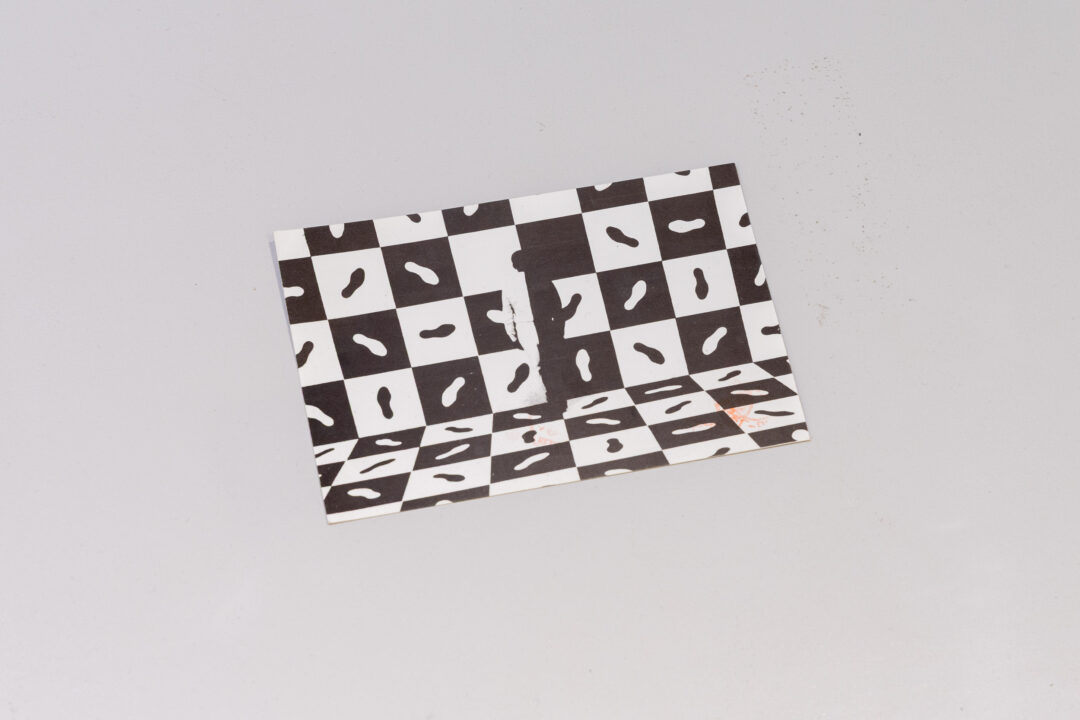
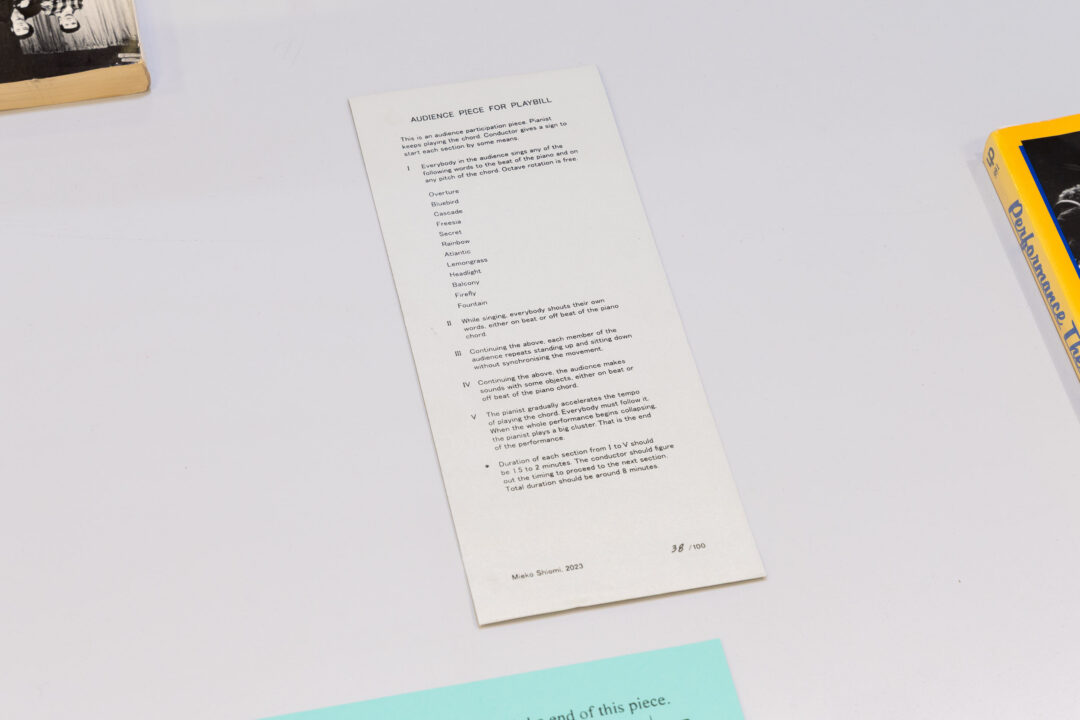
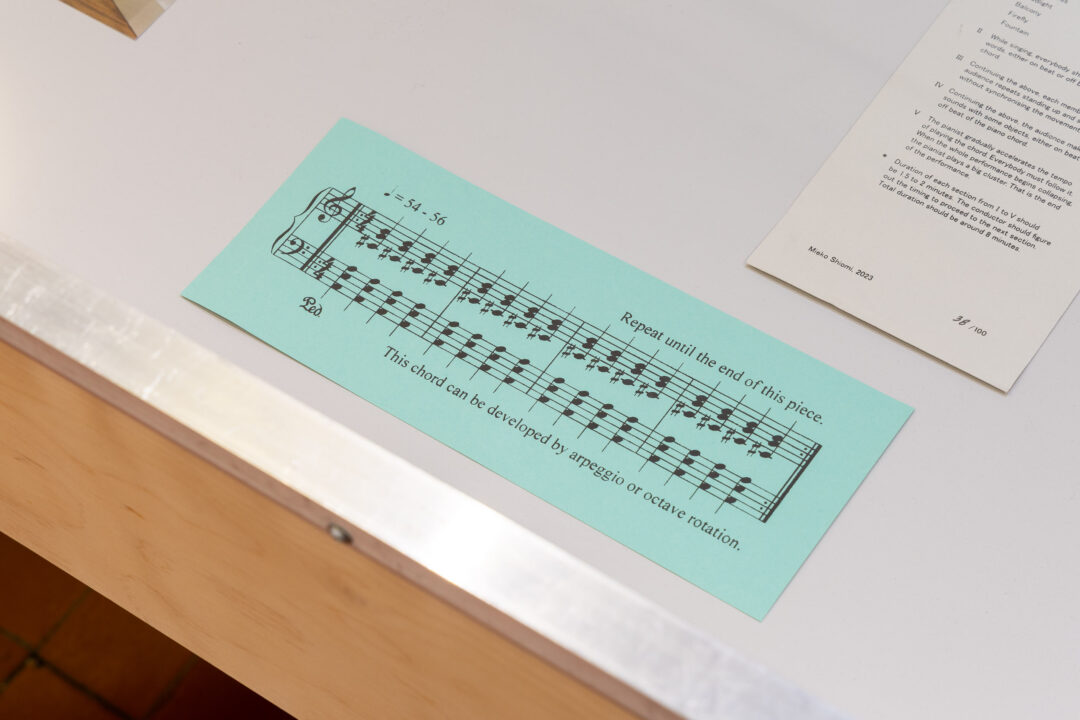
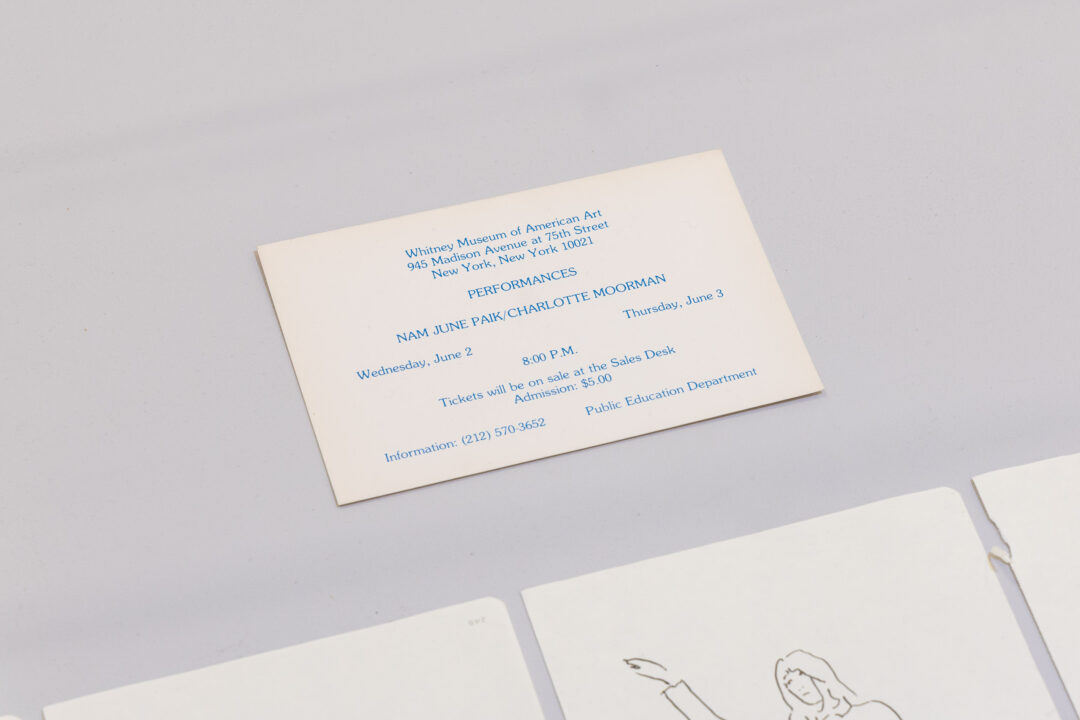
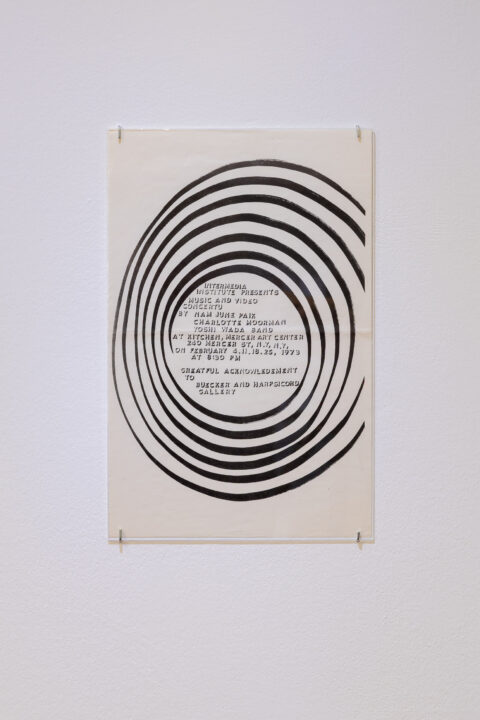
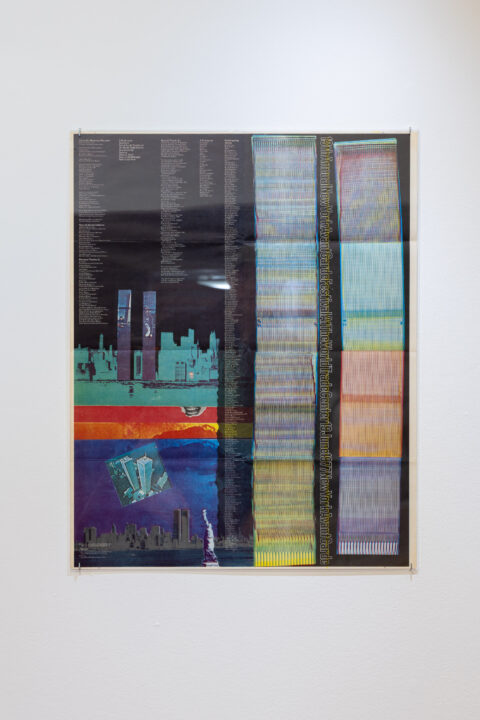
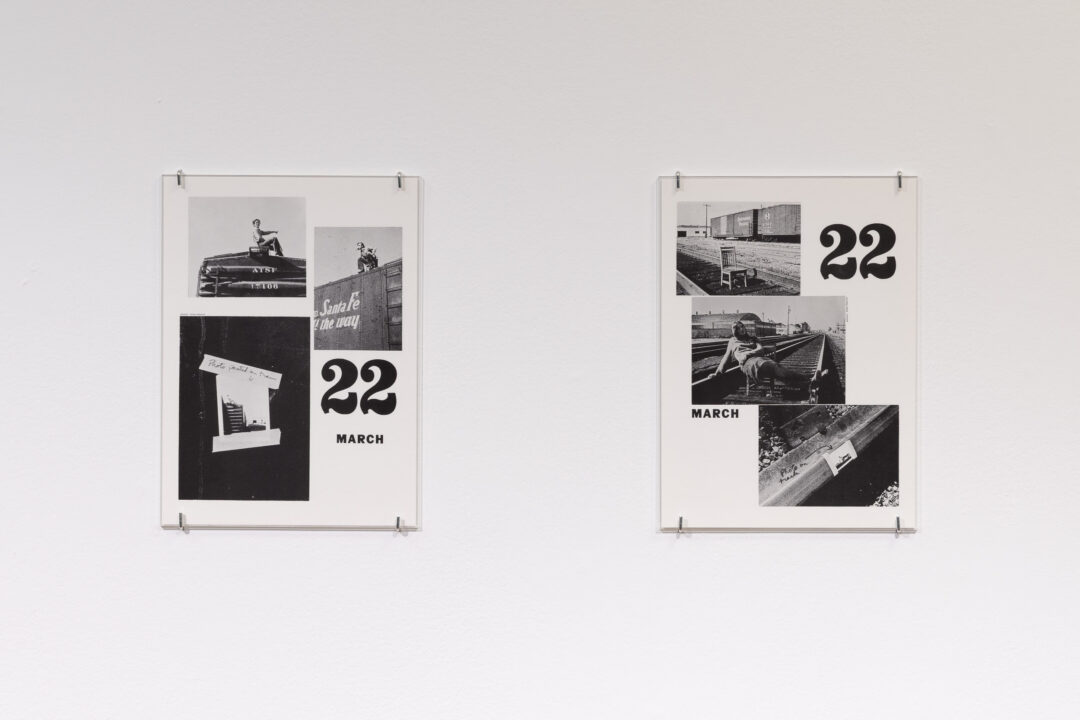
Image credit: Stuart Sherman, The Twelfth Spectacle (Language), photo by Nathaniel Tileston, 1980, as included in The Stuart Sherman Papers, 2025.
Bonington Gallery is delighted to present To Farse All Things, a two-person exhibition by William English and Sandra Cross, bringing together film, photography, sculpture, sound, and archival material formed independently and collaboratively over several decades.
To Farse All Things offers a rare opportunity to explore the intertwined lives and practices of two artists whose work resists categorisation. Through a shared and uncompromising commitment to experimentation, hospitality, and social engagement, English and Cross have cultivated a body of work that is as generous as it is radical. Their ten-year project, The Dining Room, can be seen as a living piece of performance art—emblematic of their broader practice which questions the boundaries between roles and purpose of cultural space. The lines between cast & audience, host & guest, artist & participant are constantly shifting and being shifted.
William English (b. Leicester) moved to London in the early 1970s to study filmmaking. In 1975, he produced a now-iconic series of photographs of Vivienne Westwood in her and Malcolm McLaren’s seminal punk boutique, SEX. The series, Venus with a Severed Leg, has become synonymous with the era, with writer Paul Gorman describing it as “the holy grail of punk photographs.”
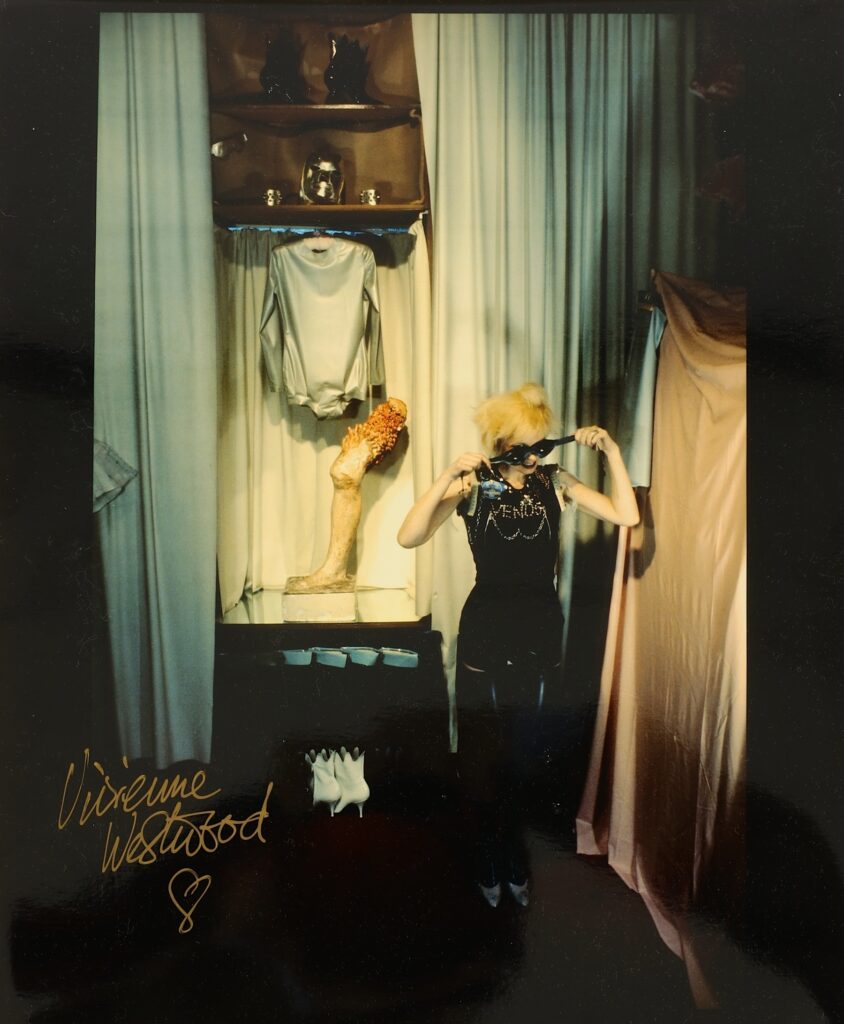
Sandra Cross (b. Northamptonshire) began her career as a copywriter before relocating to London in the mid-1970s, where she worked for a number of prominent literary agencies and publishers. Her professional life introduced her to a network of West End eateries, sparking a deep and lasting interest in food as both a social and cultural medium. She began hosting suppers at home for friends and acquaintances, laying the foundation for a lifelong exploration of food as an intersection for connection, memory, and artistic expression.
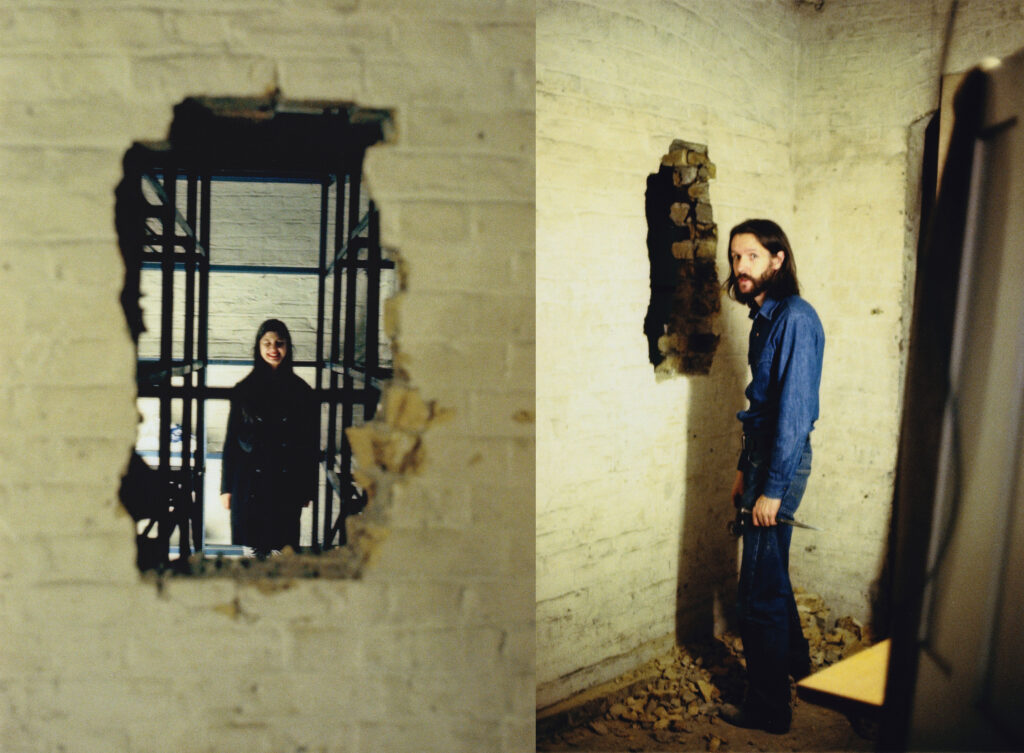
The pair met in the late 1970s and soon embarked on a shared project that would channel their shared interests and become a defining period in their collaborative practice. Motivated by a shared excitement for hosting and an interest in organic and whole foods (progressive for that period), they pooled their limited resources to renovate the basement of a Victorian building near London’s Borough Market. The result was The Dining Room—a groundbreaking vegetarian restaurant (though they resisted the label) that operated for a decade. Serving dishes such as Kasha Knish amongst a programme of exhibitions, screenings, book launches, and gigs, The Dining Room was more than a restaurant. Its ethos was radically inclusive: customers ranged from Shakespeare’s Globe founder Sam Wanamaker and underground filmmaker Kenneth Anger to nurses finishing late shifts at nearby Guy’s Hospital. Staff were often friends who may have struggled to find work elsewhere, and leftover food was regularly shared with those in need.
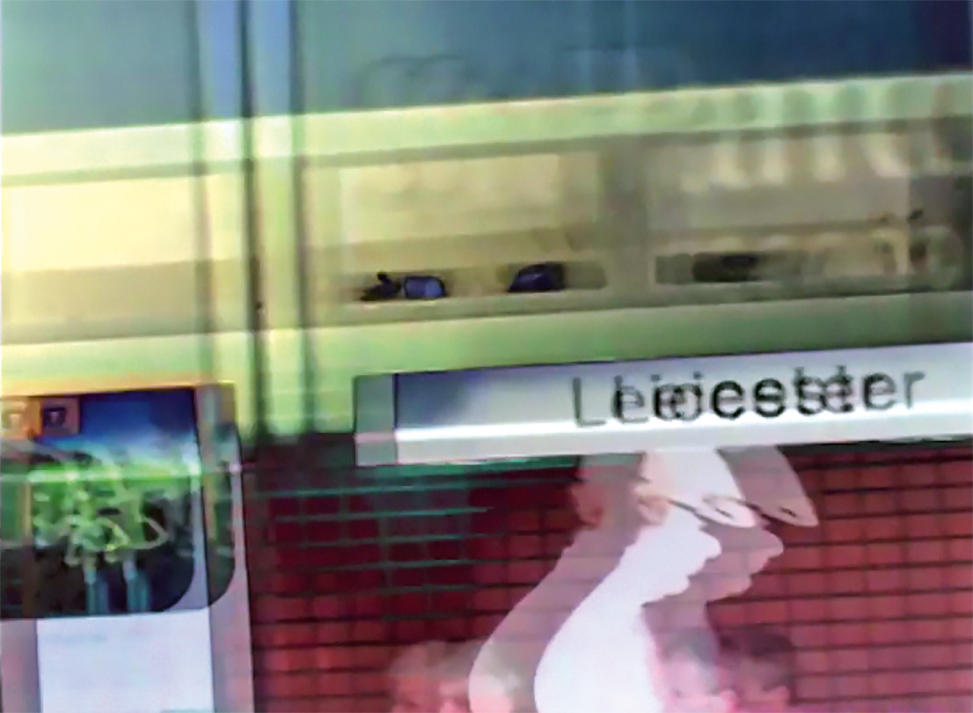
Following the closure of The Dining Room in 1990, Sandra continued to explore food as a subject through works such as What Did You Eat Today?, a series of filmed interviews examining personal relationships with food. Other notable works include MMs Bar (Trunk Records, 2011), a vinyl record composed of train catering announcements recorded during weekly journeys between London and Leicester, and Limbo (2019), a film narrated from journals written during this period whilst Sandra’s mother’s health was in decline, layered over footage of those same train journeys.
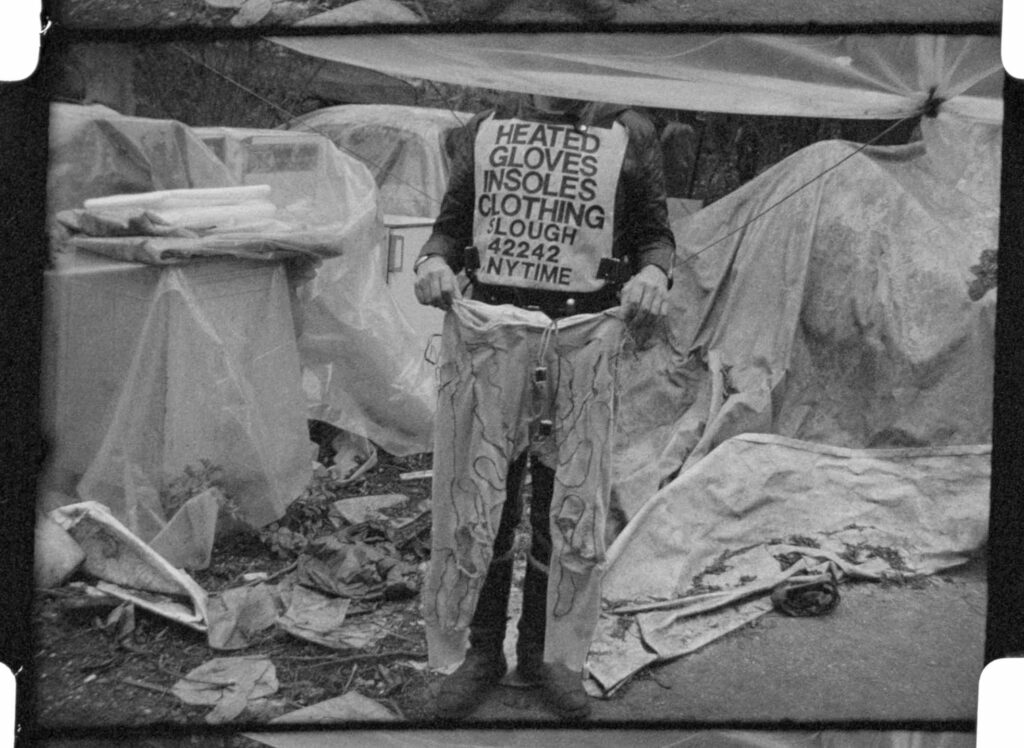
William continued to make films and work as a rare book dealer. His film Heated Gloves (2019) documents his friend and Dining Room regular Maurice Seddon, an eccentric inventor known for creating electrically heated clothing. The film features both intimate footage and clips from Seddon’s appearances on international talk shows, including David Letterman and Johnny Carson. After Seddon’s death, William discovered a trove of recorded phone calls spanning 30 years, which he compiled into the vinyl release The Seddon Tapes, Volume 1 (2018). These recordings—such as the surreal and humorous “Chest Freezer” exchange—formed the basis of William’s approach to his long-running Resonance 104.4 FM radio show Wavelength, which he has hosted for 15 years.
In 2020, William published Perfect Binding, a psychographic & counter-historical portrait of Leicester and changing attitudes towards fashion, music and art of the 1960’s and beyond, told and reflected through the lives of his family and childhood friends, including BOY boutique co-founder Stephane Raynor, artist and eccentric Jim Mellors (aka Victoria Ashley), and the late fashion photographer David Parkinson.
On the occasion of the exhibition, a follow-up to Perfect Binding entitled To Farse All Things (Designed by Daniel R. Wilson) will be published and made available from the gallery. This will be an anthology of work, interviews, and articles and is intended as a companion piece to the exhibition.
A broad selection of films by William & Sandra have been archived by LUX, an arts organisation that supports and promotes visual artists working with the moving image.
Exhibition curated by Tom Godfrey, Curator & Director of Bonington Gallery.
William English is a Leicester-born filmmaker, broadcaster, bookseller and co-founder with Sandra Cross of the organic vegetarian restaurant, The Dining Room (1980-1990). He is curator of the Captain Maurice Seddon (Royal Signals) archive, audio selections from which have been released as The Seddon Tapes (Paradigm Discs).
English’s long-running radio series – Wavelength – is a programme of multiple agendas, showcasing under-the-radar experimental music, poetry and art, broadcasting on Resonance 104.4 FM. His films include: Ex Library (2009), Heated Gloves (2015), It’s My Own Invention (2017) and City (1985). English is also the author of Perfect Binding: Made in Leicester (2019) – an experimental genre-defying documentary/counter-history/artist’s book, loosely themed around vanity/inertia and celebrity/obscurity in 1960s Leicester.
Sandra Cross worked as a features editor and deputy editor for IPC Magazines, before developing The Dining Room (active between 1980-1990), a vegetarian organic restaurant in London’s Borough Market, with partner and co-founder William English. This early experience of collaboration on projects where life and art intersect, guides her joint and solo actions whether in written work, film or sound. There is a focus on the lived experience documented and memorialised to celebrate and preserve what might otherwise have been lost. The founding of the restaurant initiated a quest to explore identity through the series What Did You Eat Today? leading to an association with the Mass Observation Archive, and the activity of recording announcements on the London-Leicester train in the MMs Bar (2011). These were described by one reviewer in Mojo as “destined for intense cultdom”.
Contemporary with this project was Limbo – a ten year study of her mother’s “probable Alzheimer’s” in words, sound, images, collages, and film, the substantial parts of which are a 2,000 page journal, 96-hours’ worth of recordings, and an hour-long film. Limbo (2019), the film, was presented at the British Library, and the recordings archived by Stephen Cleary, The British Library’s Lead Curator for Literary and Creative Recordings, whose enthusiasm was expressed via a suggestion that the readings over the film in particular were reminiscent of the ethos and articulation of Mark E. Smith, lead singer in the post-punk band The Fall. Cross has suggested that a quote from La-Bas by Joris-Karl Huysmans best identifies her approach to life:
“It is foolish to let my thoughts wander this way (…) but daydream is the only good thing in life. Everything else is uglier and empty”.
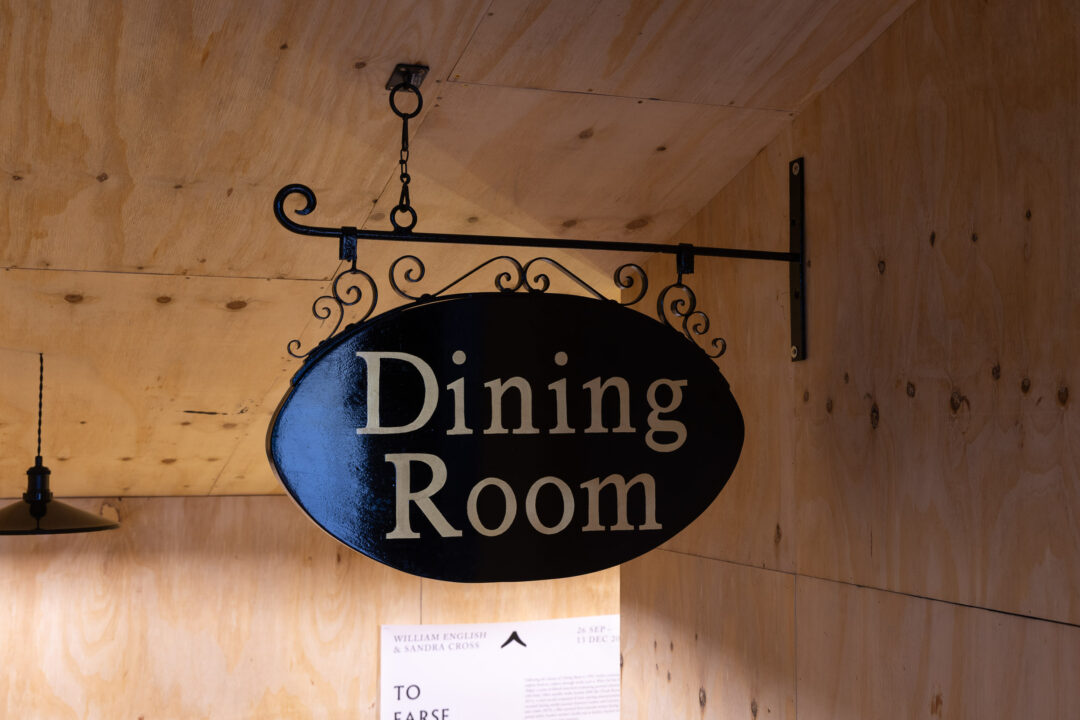
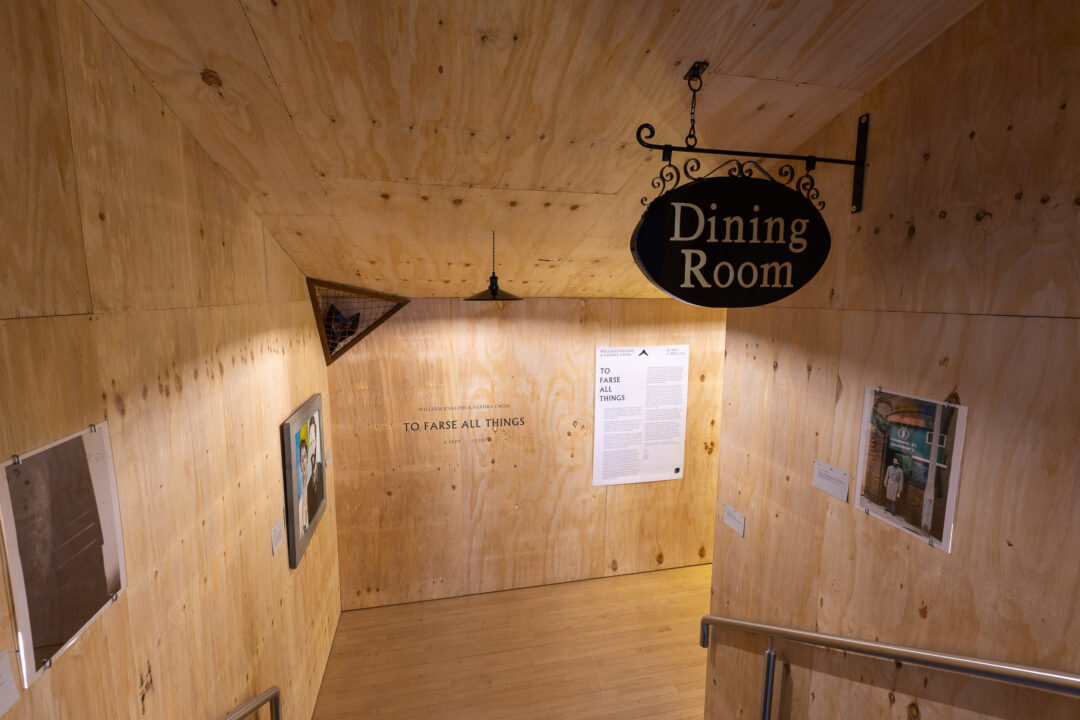
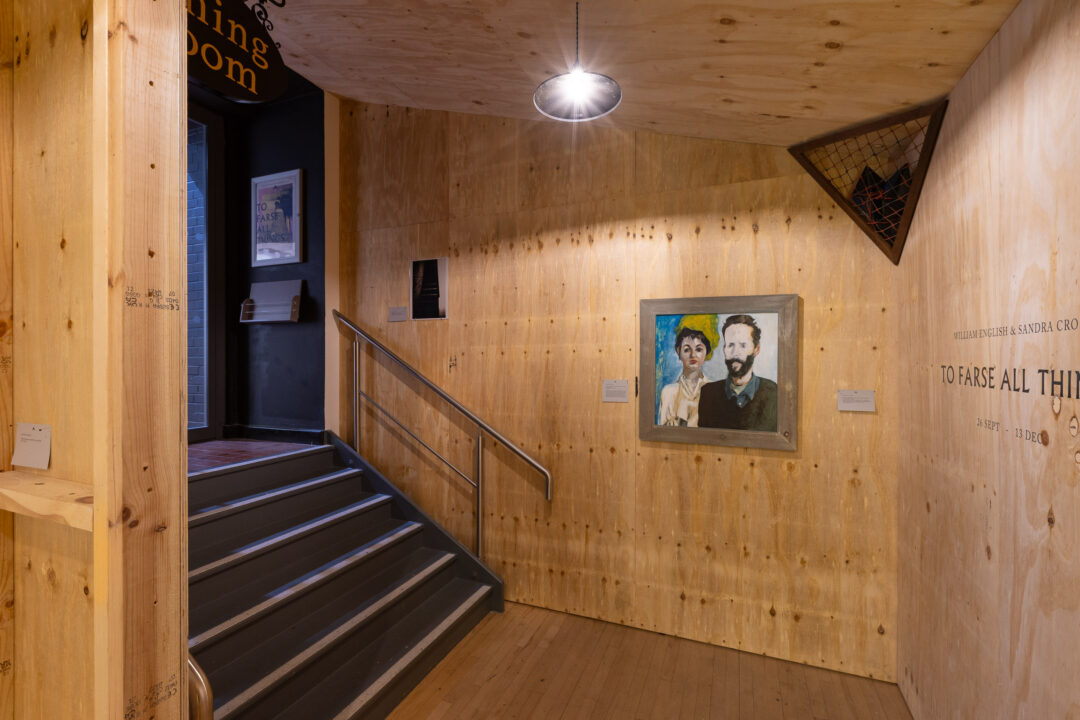

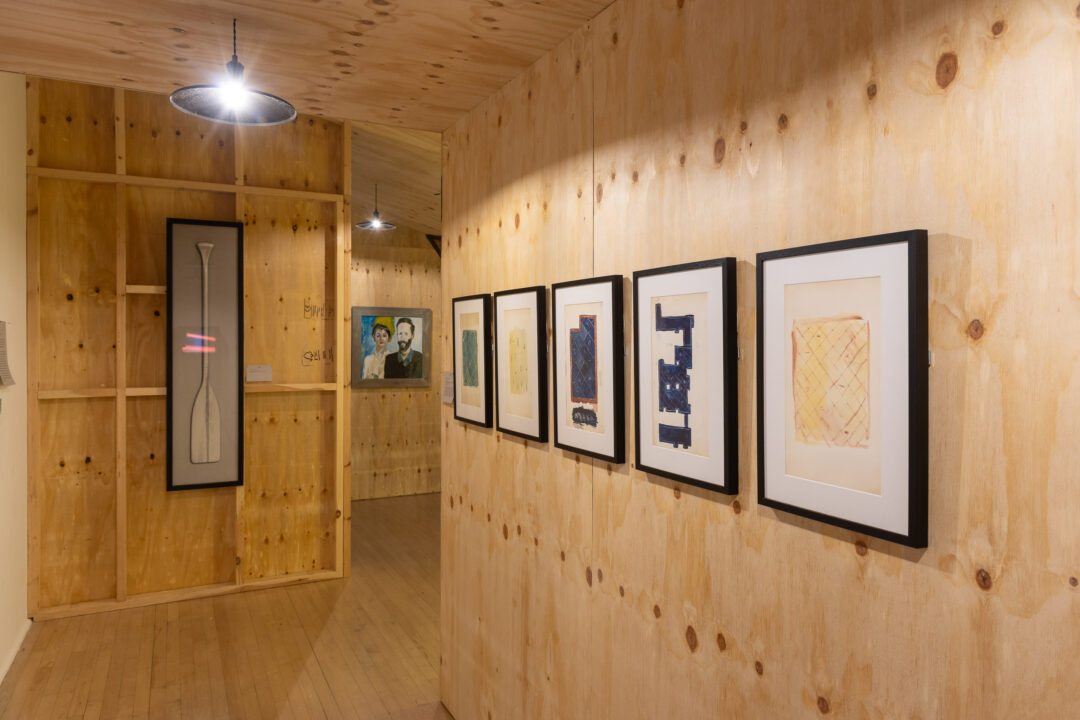
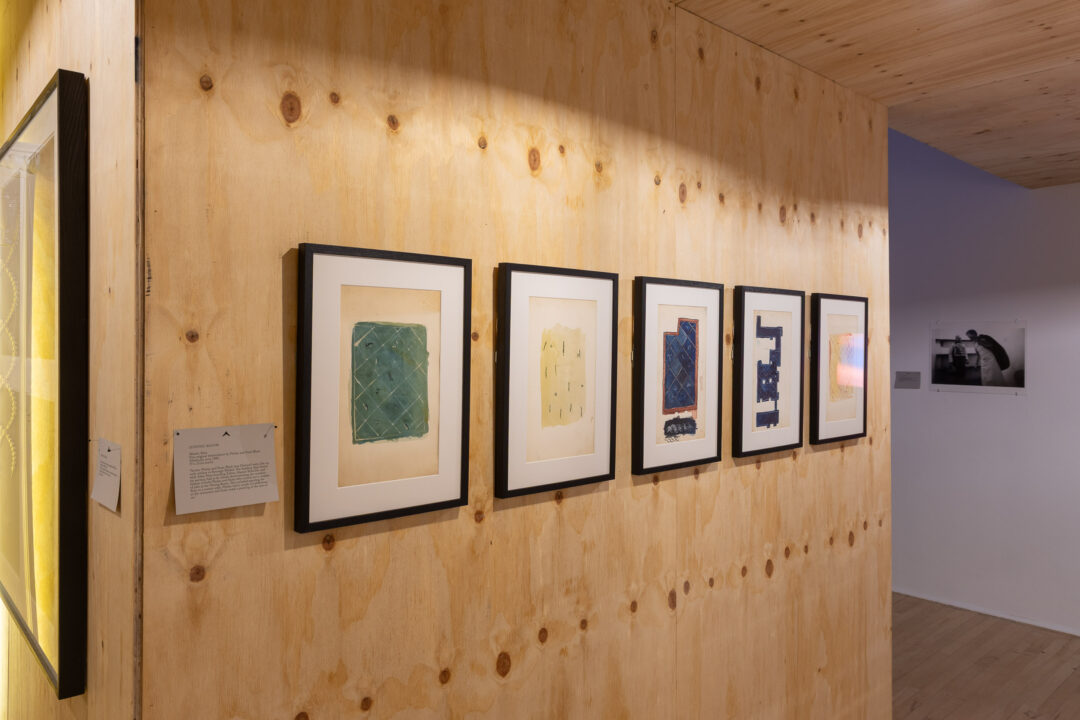
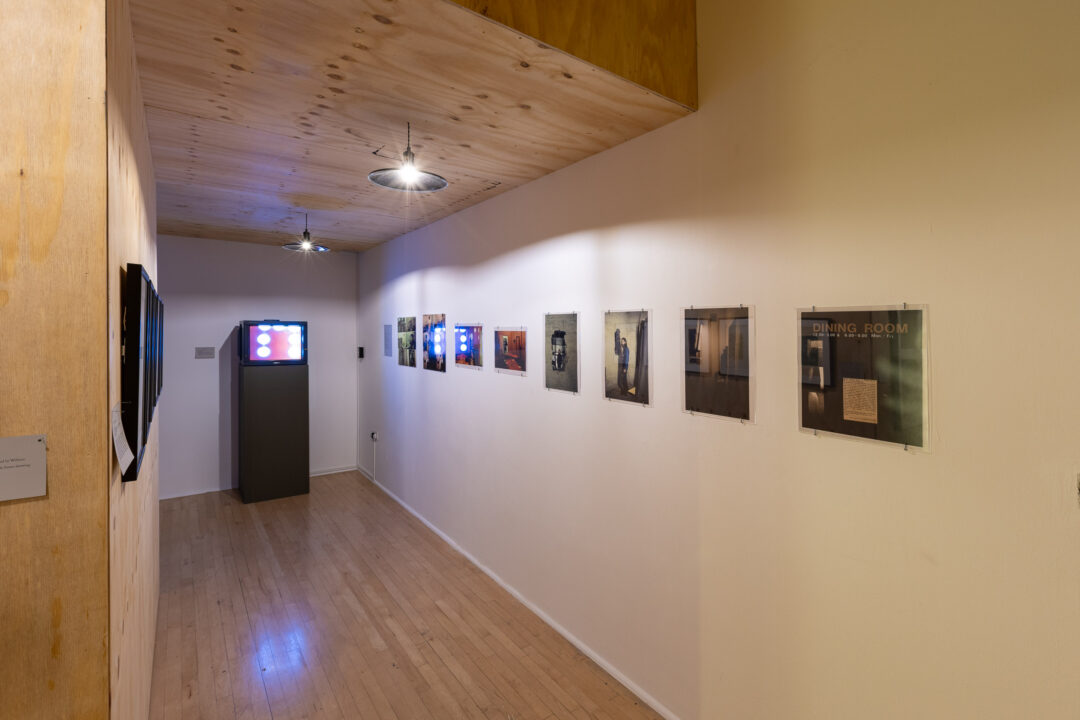
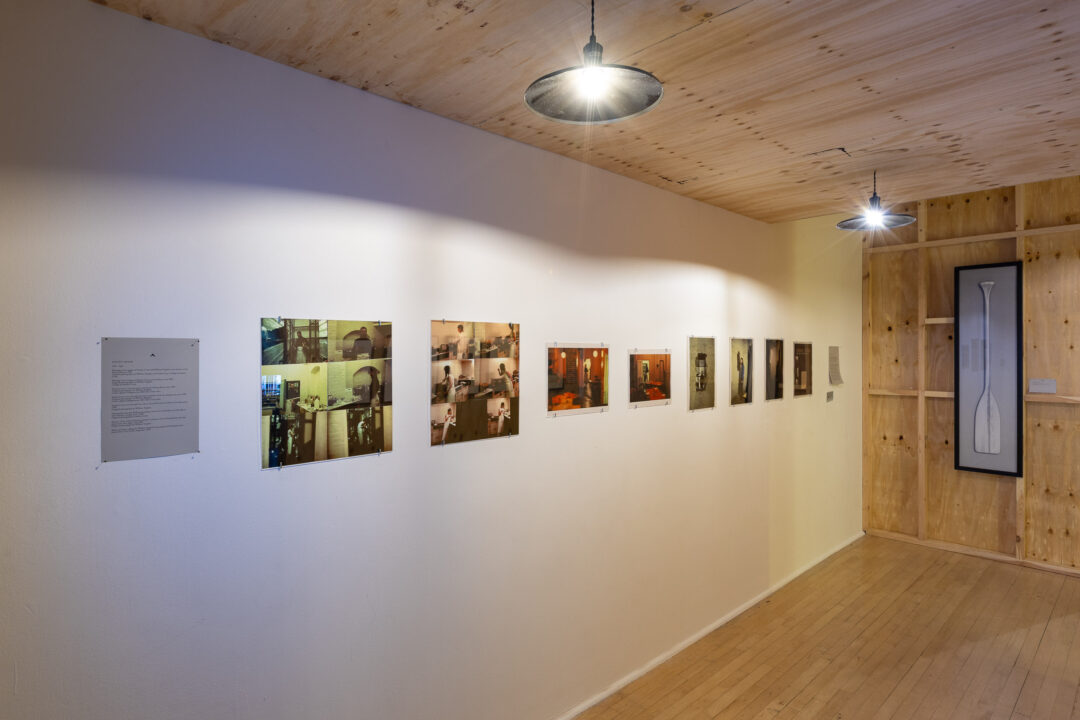
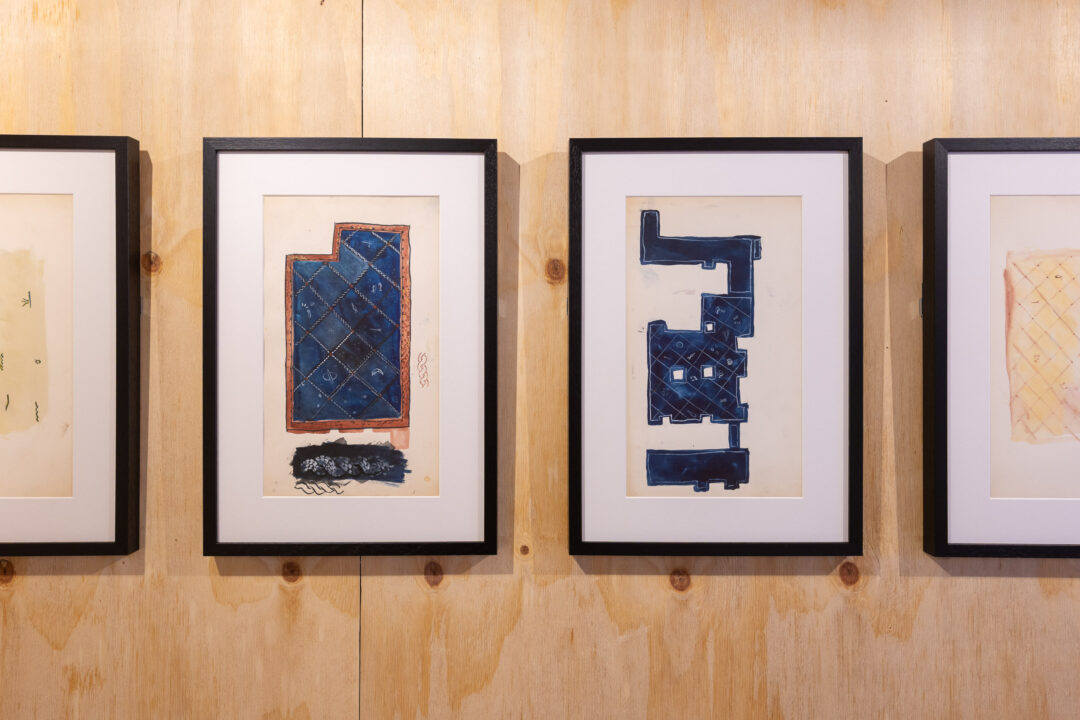
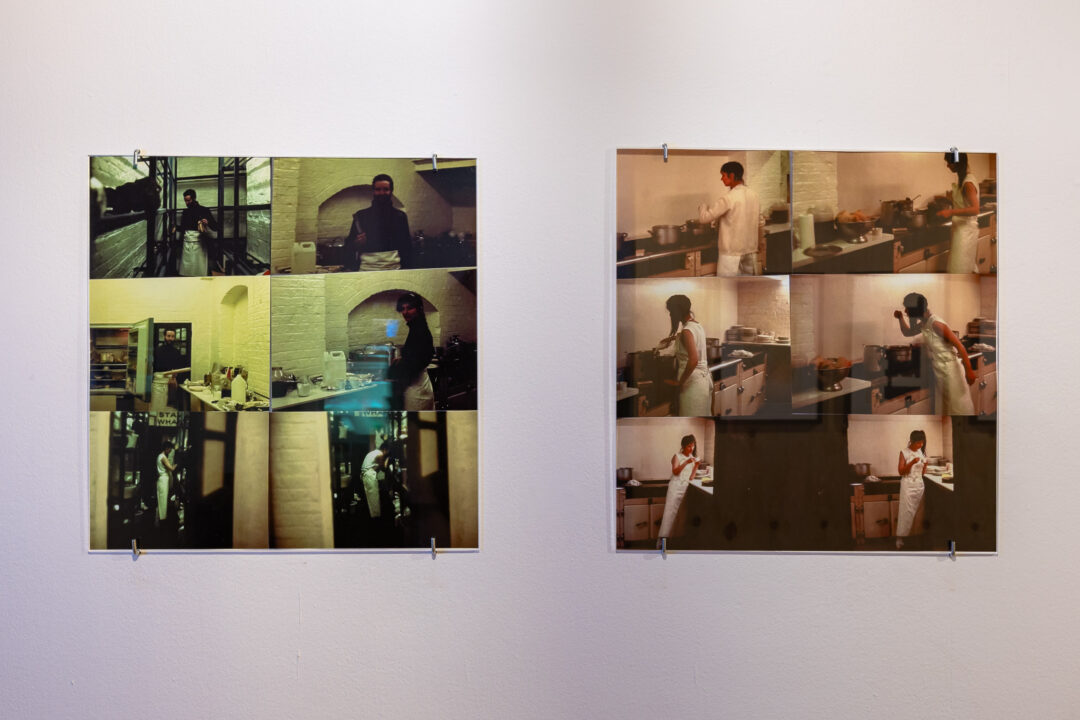
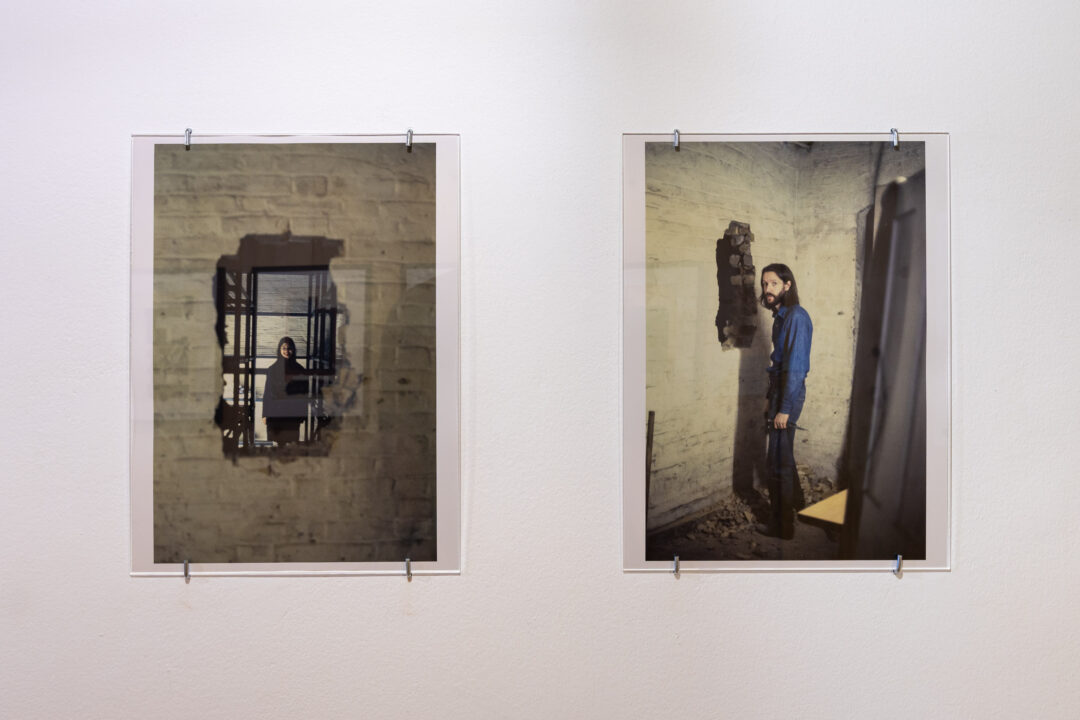
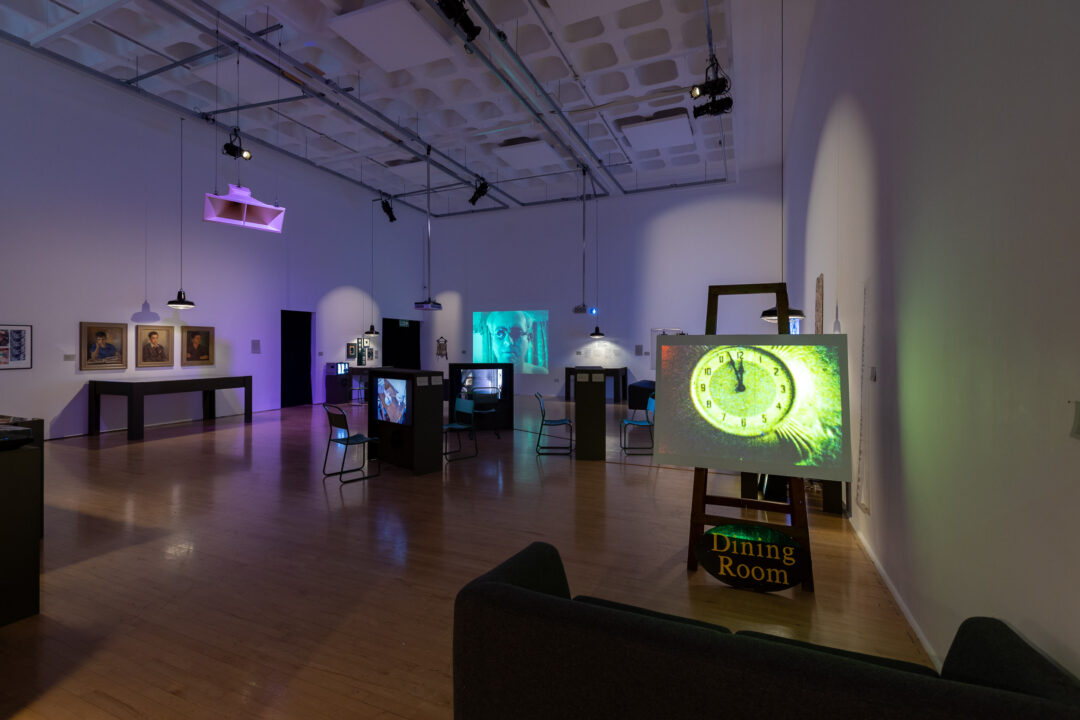
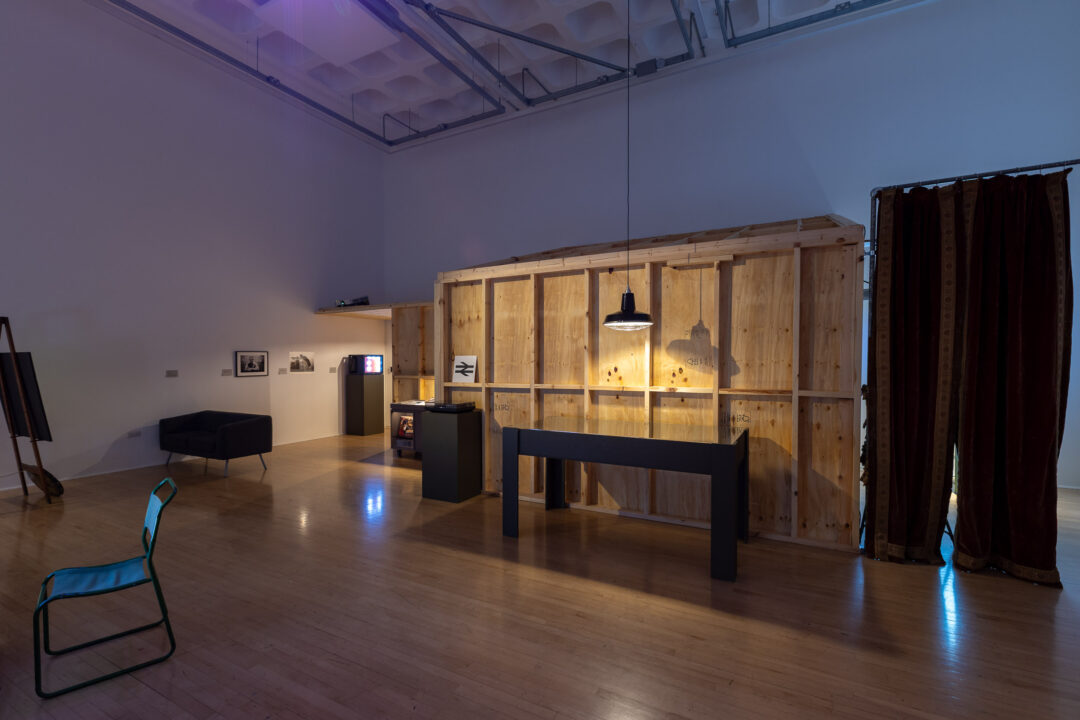

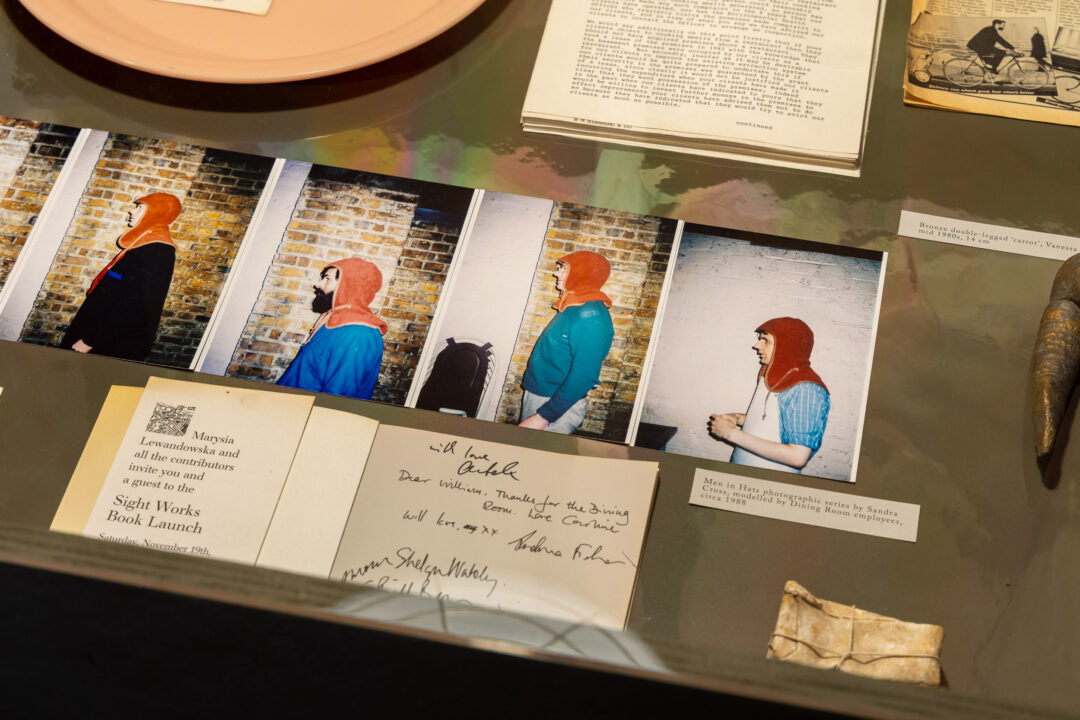
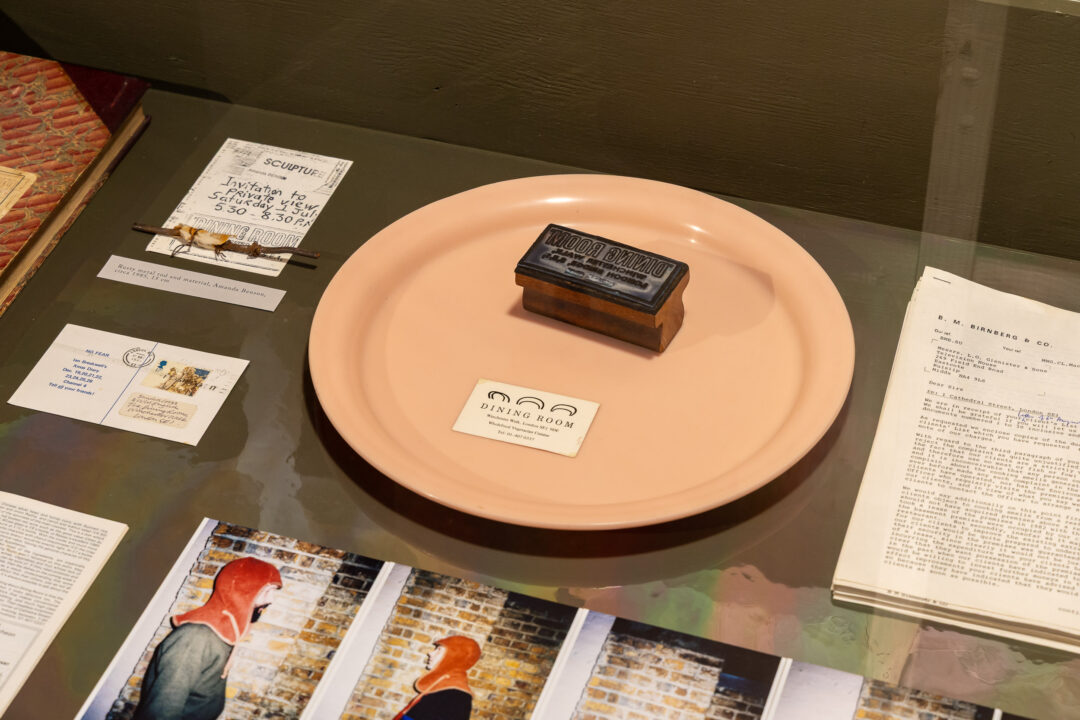
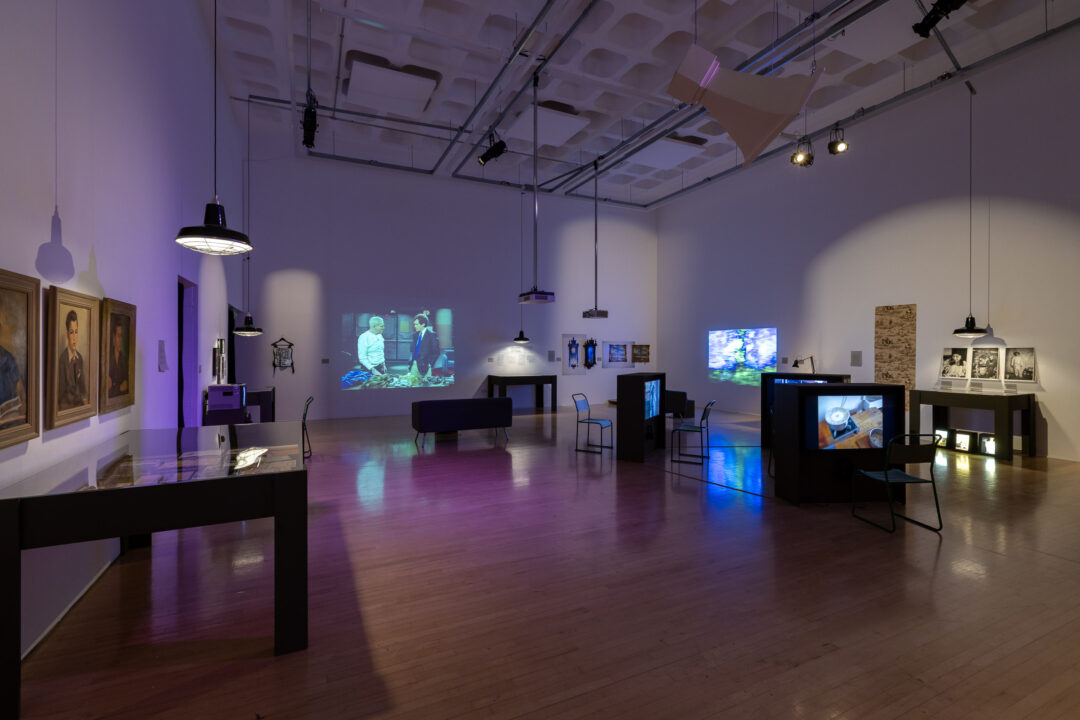
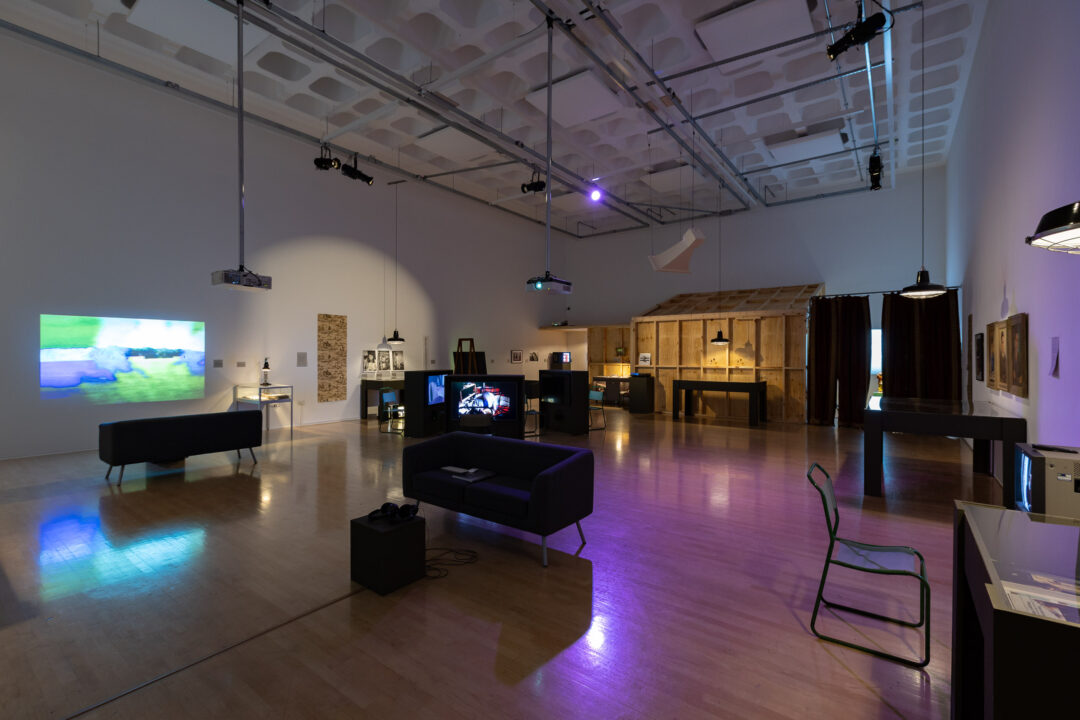
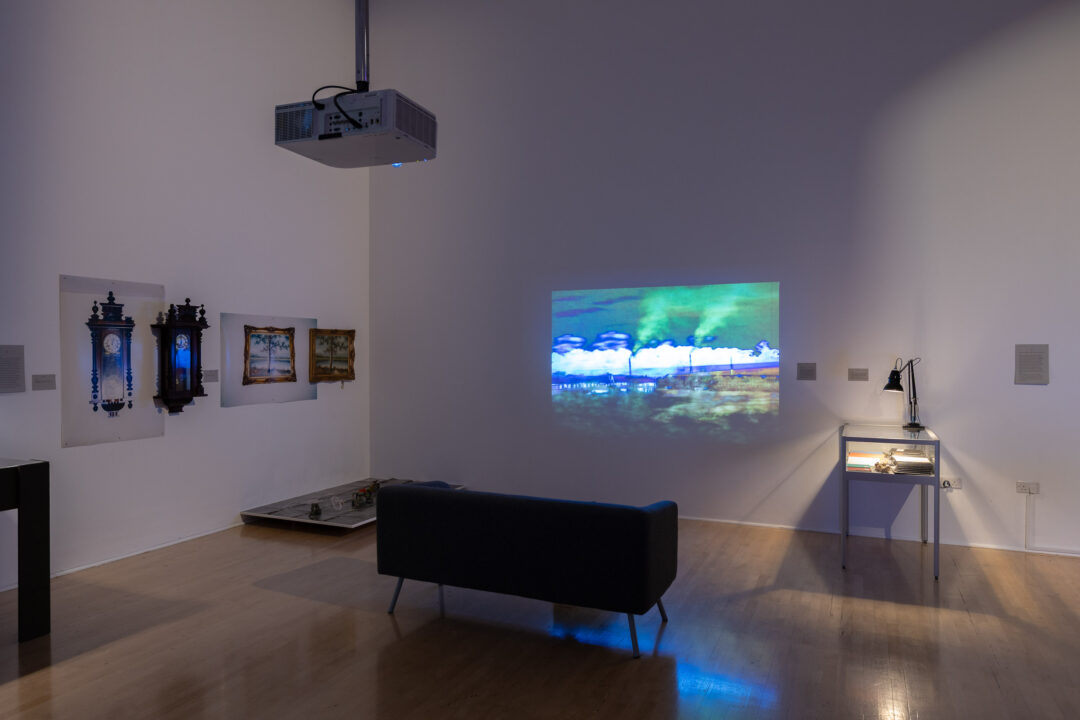
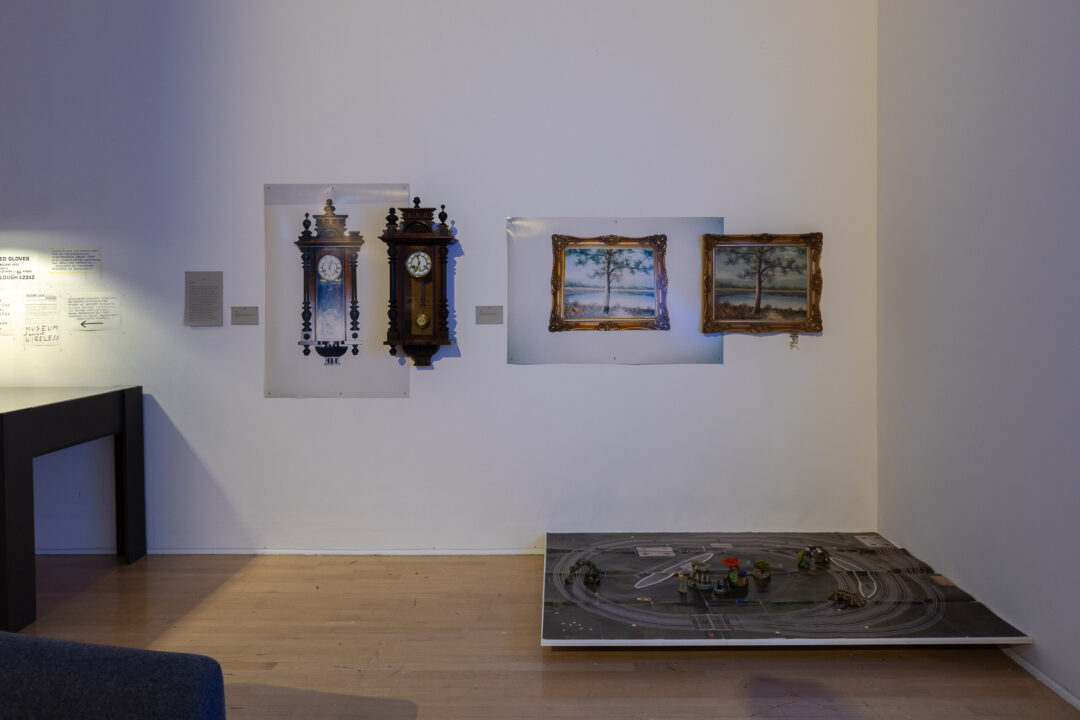

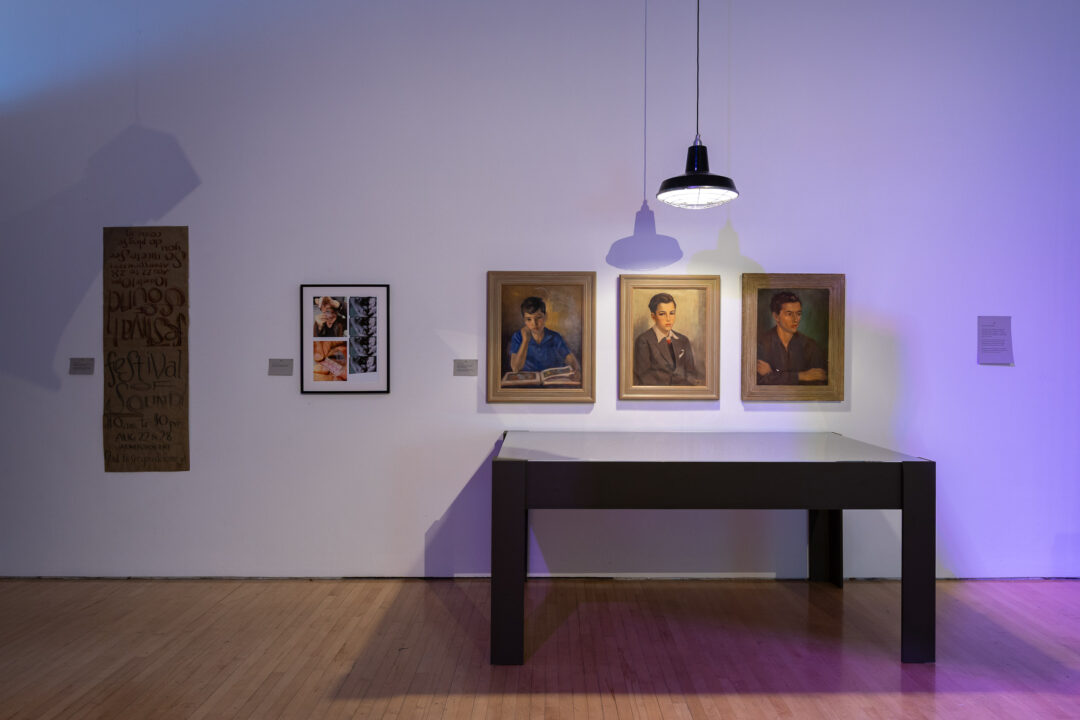
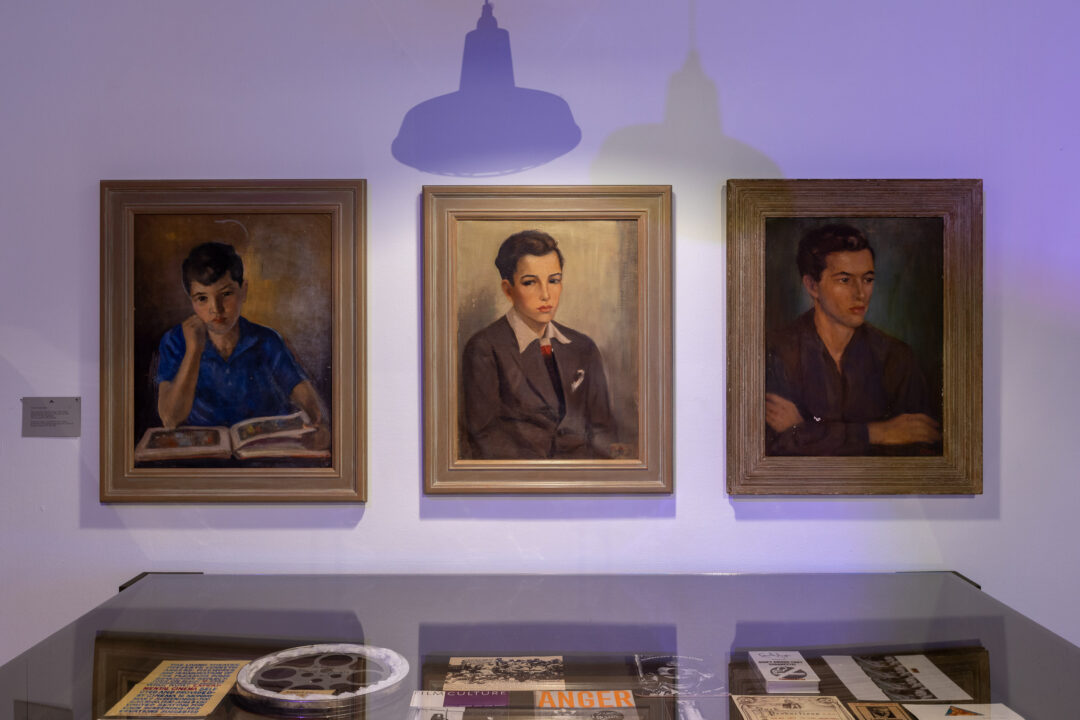
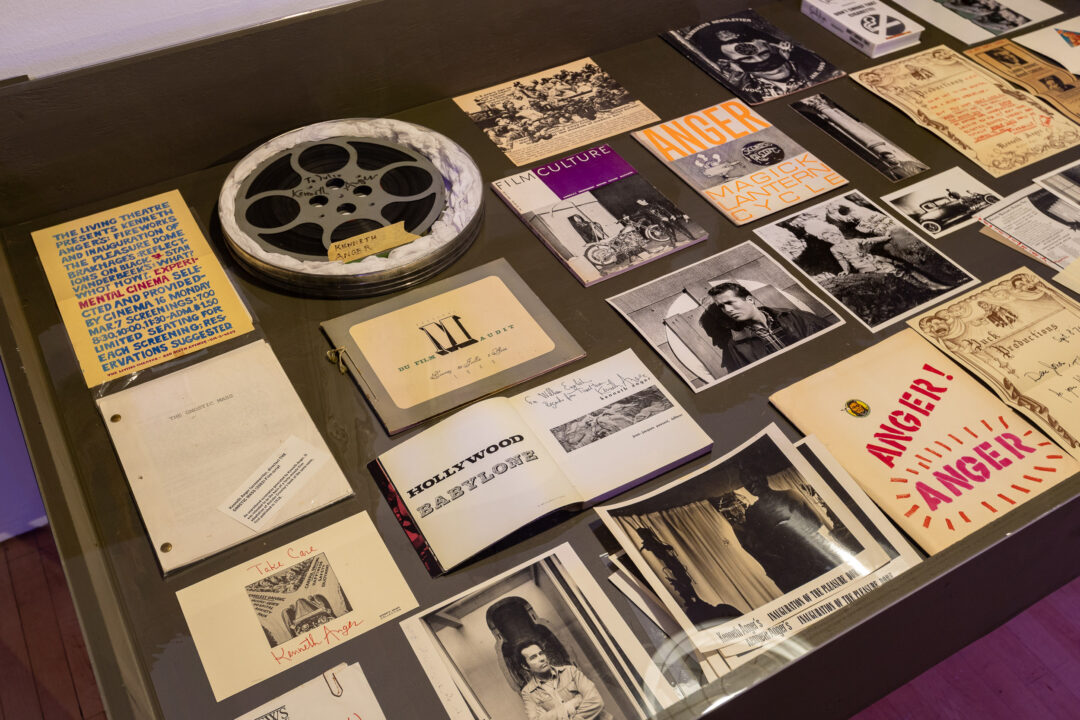

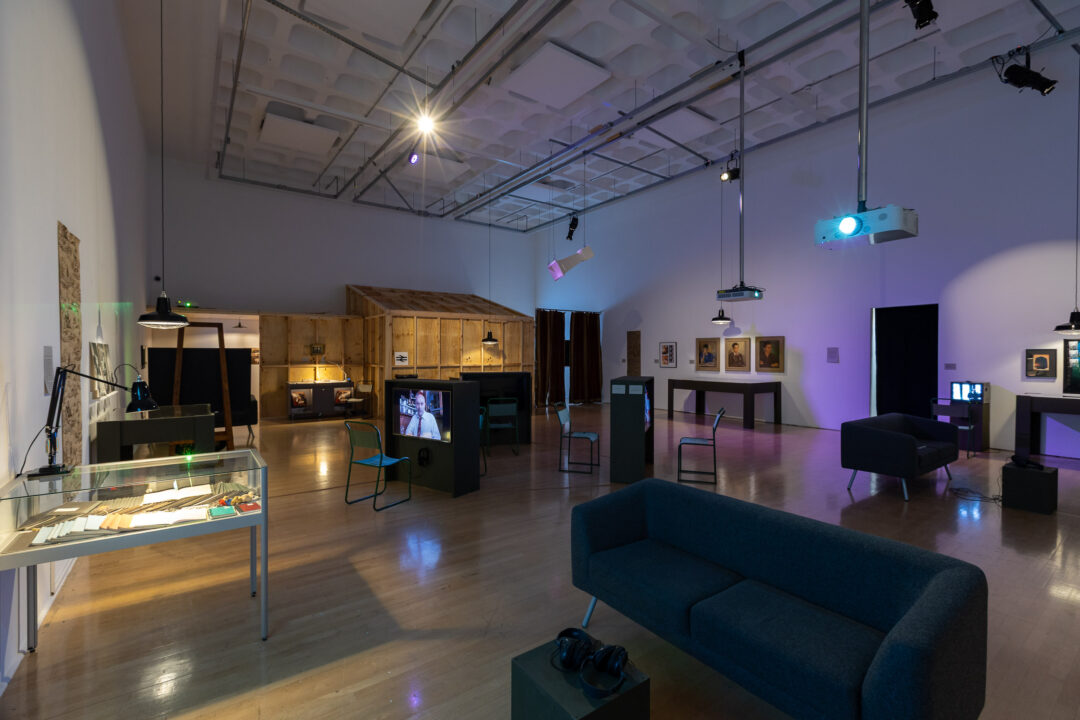
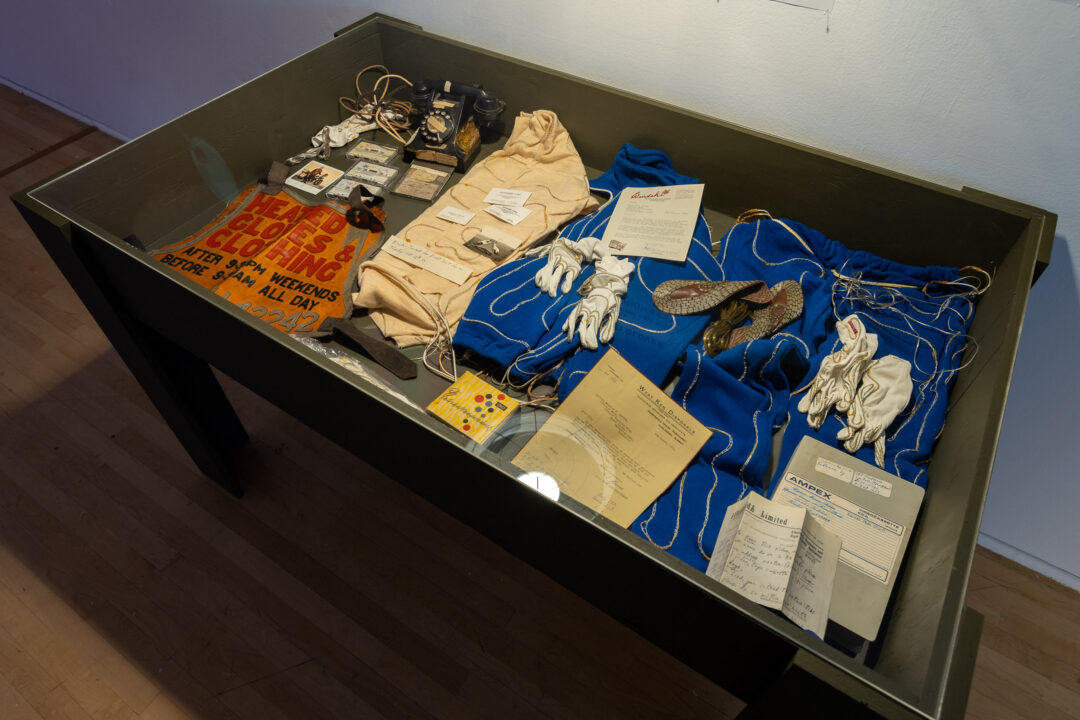
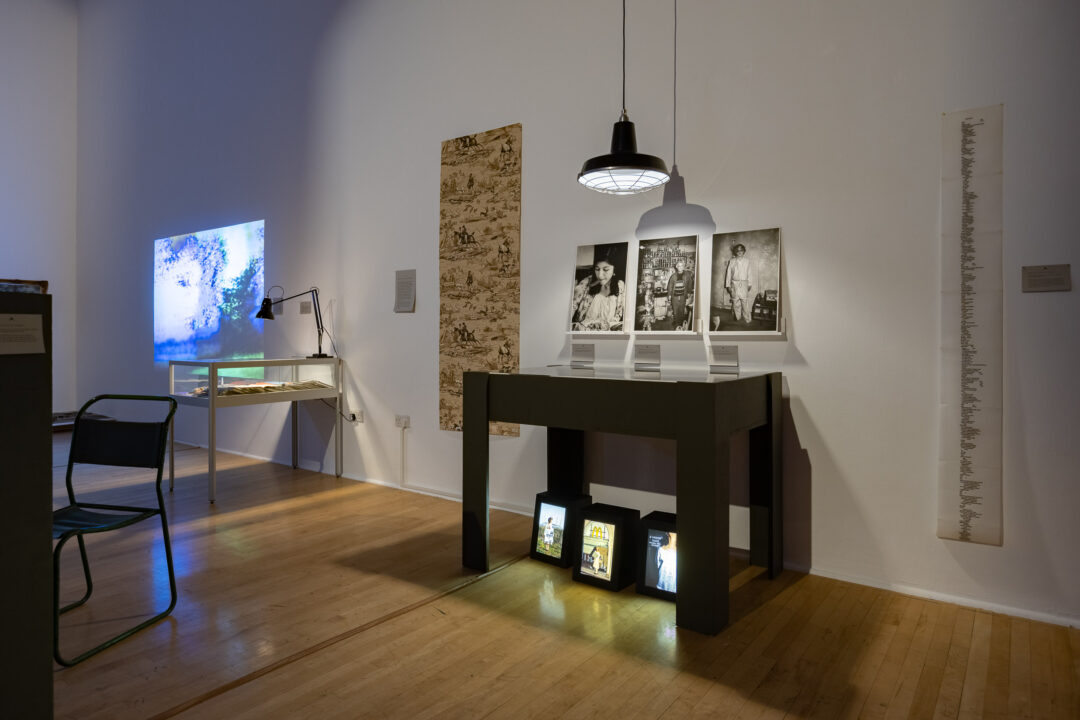
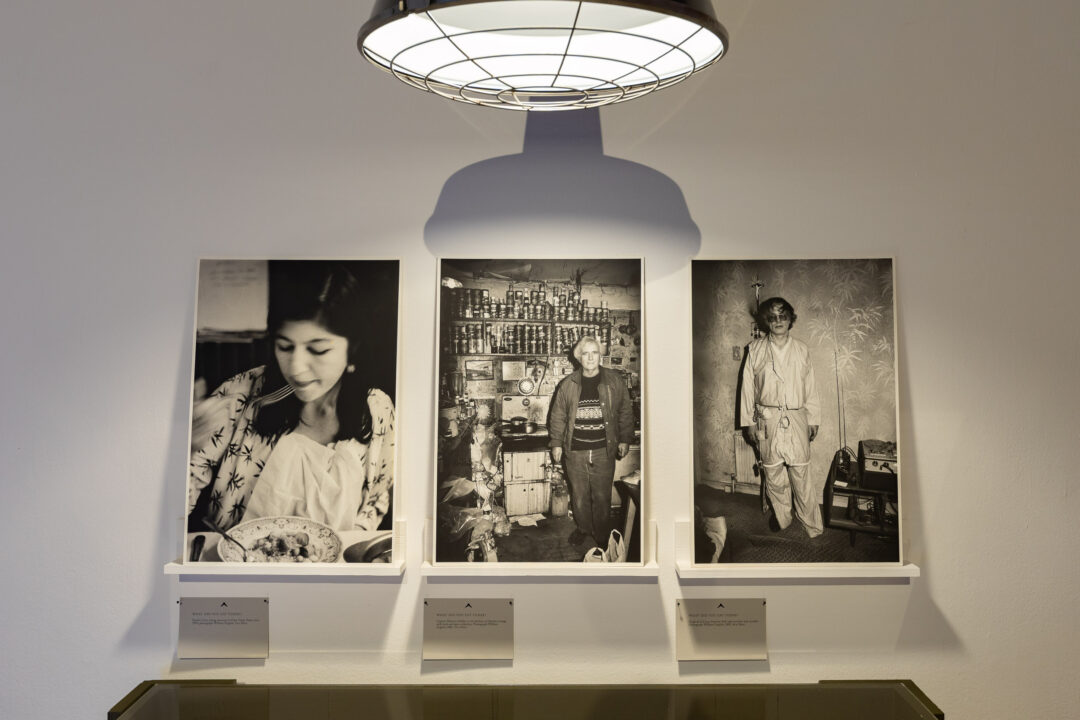
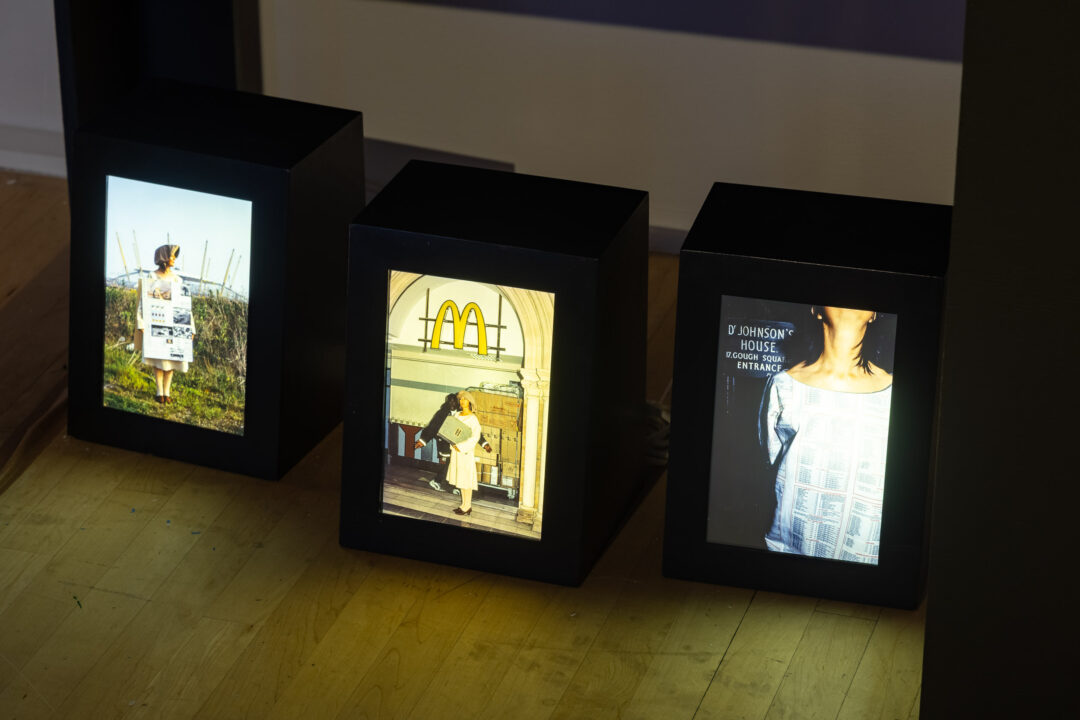
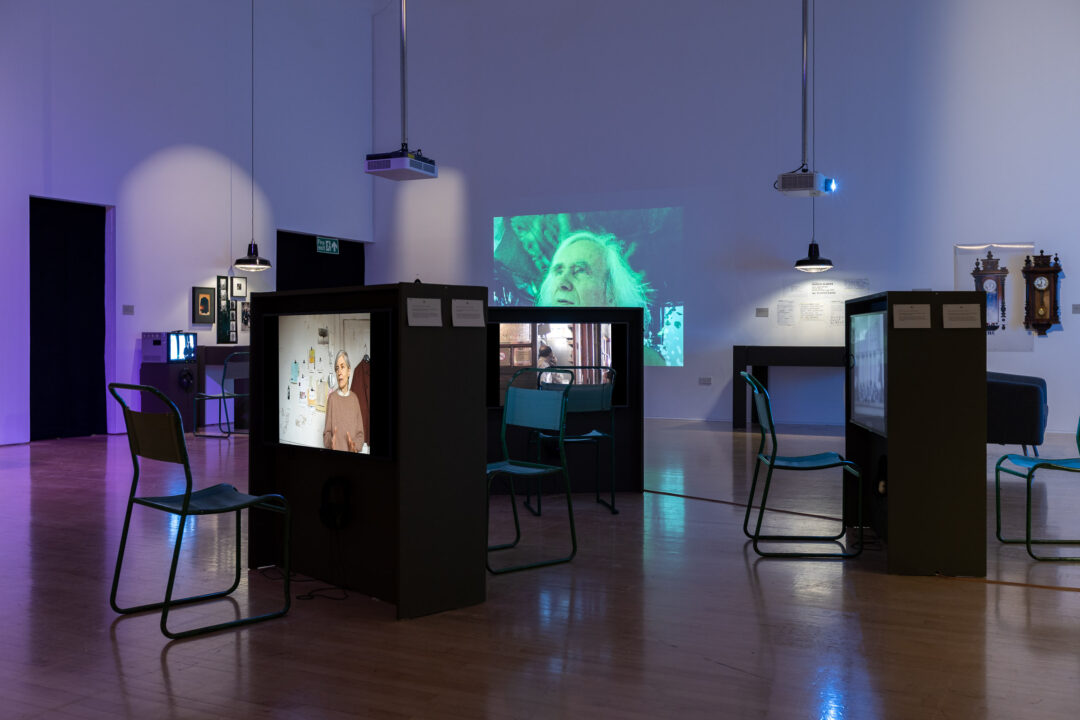
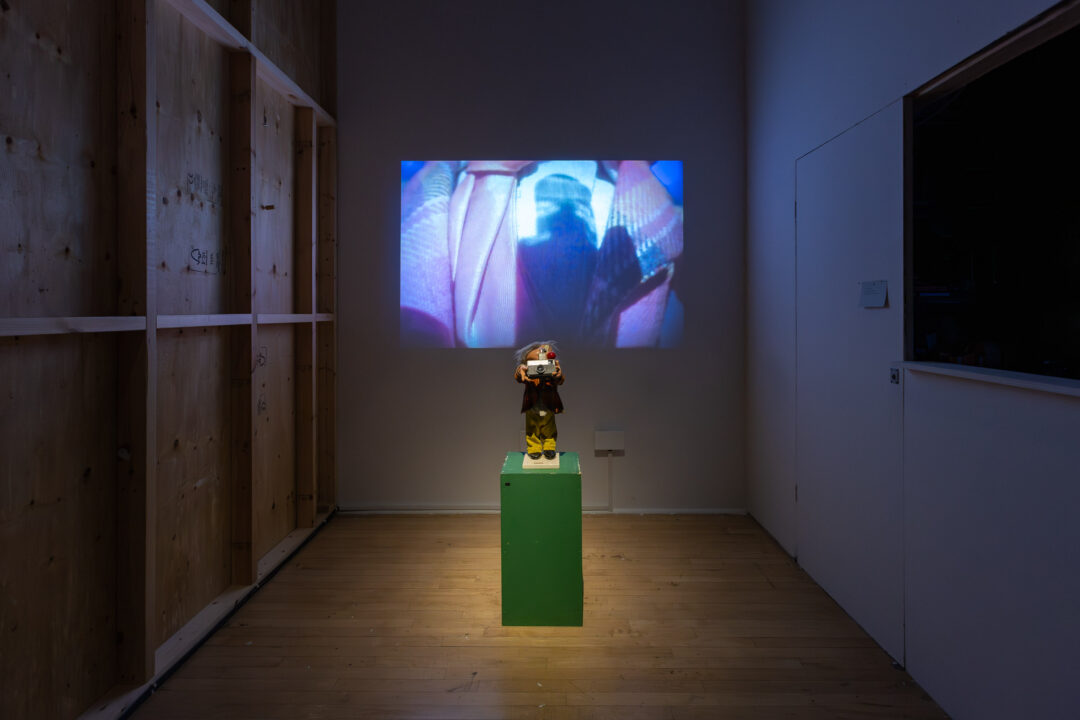
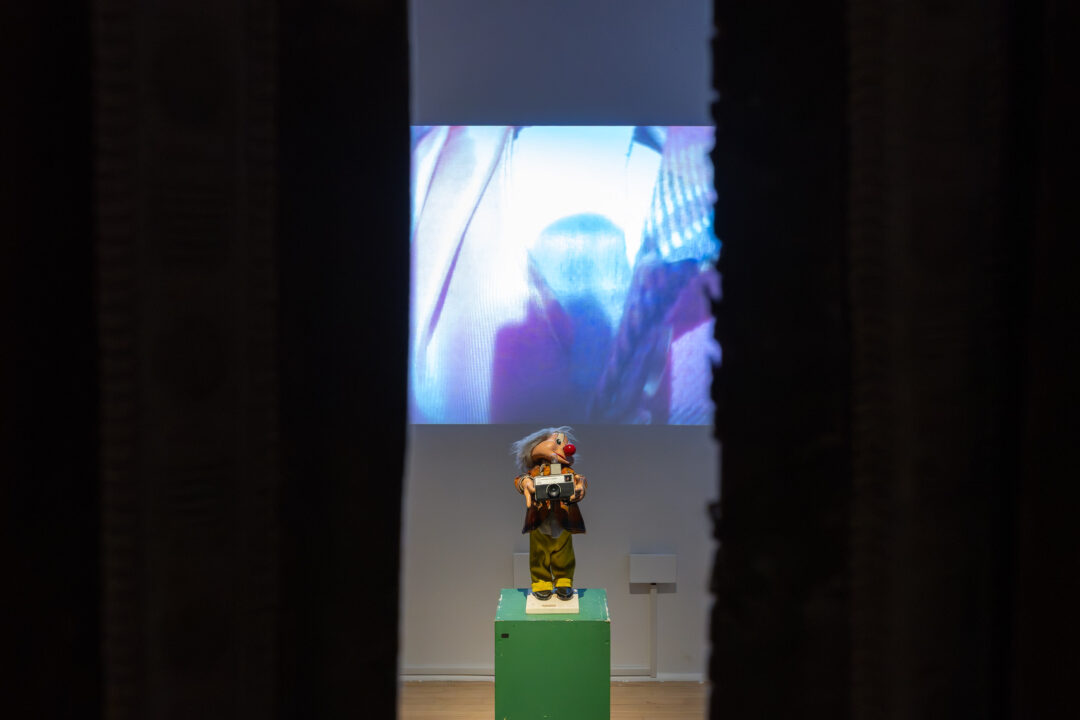
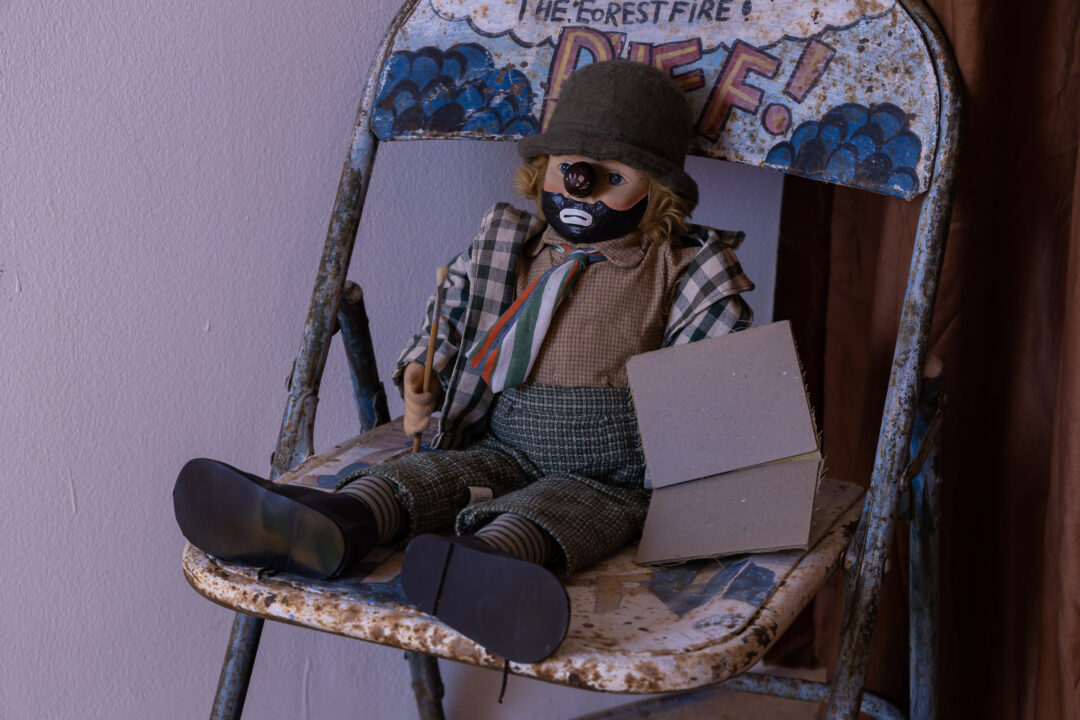
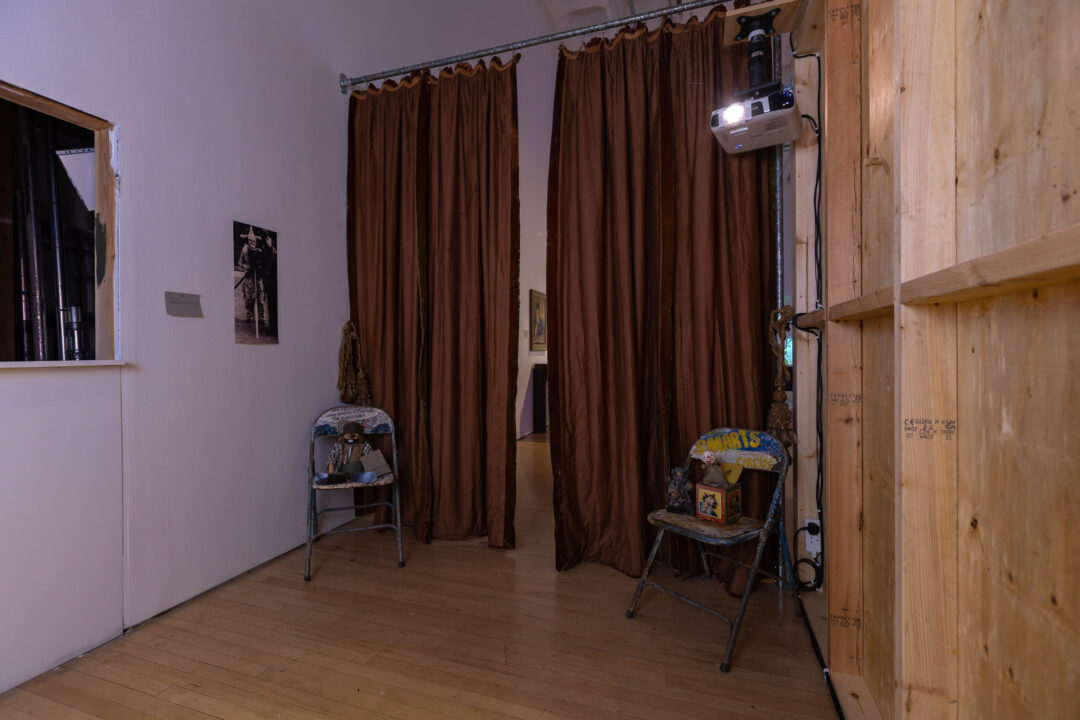
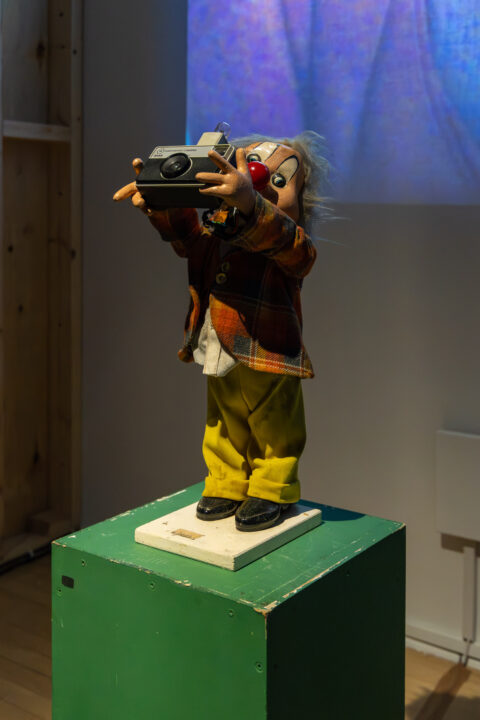

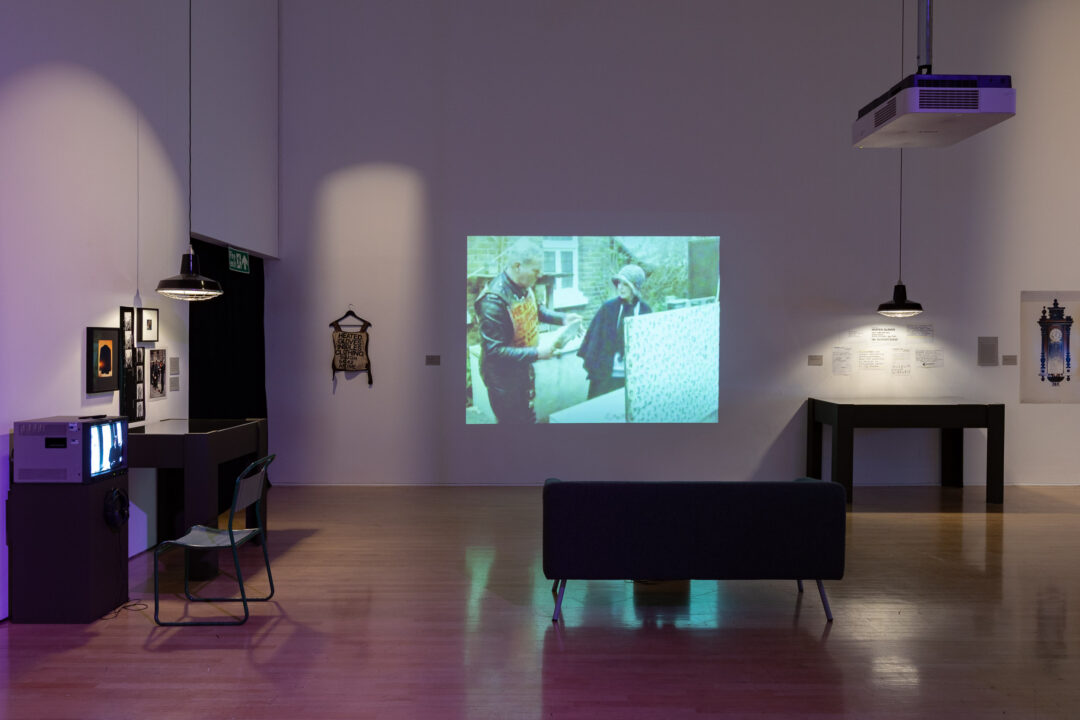
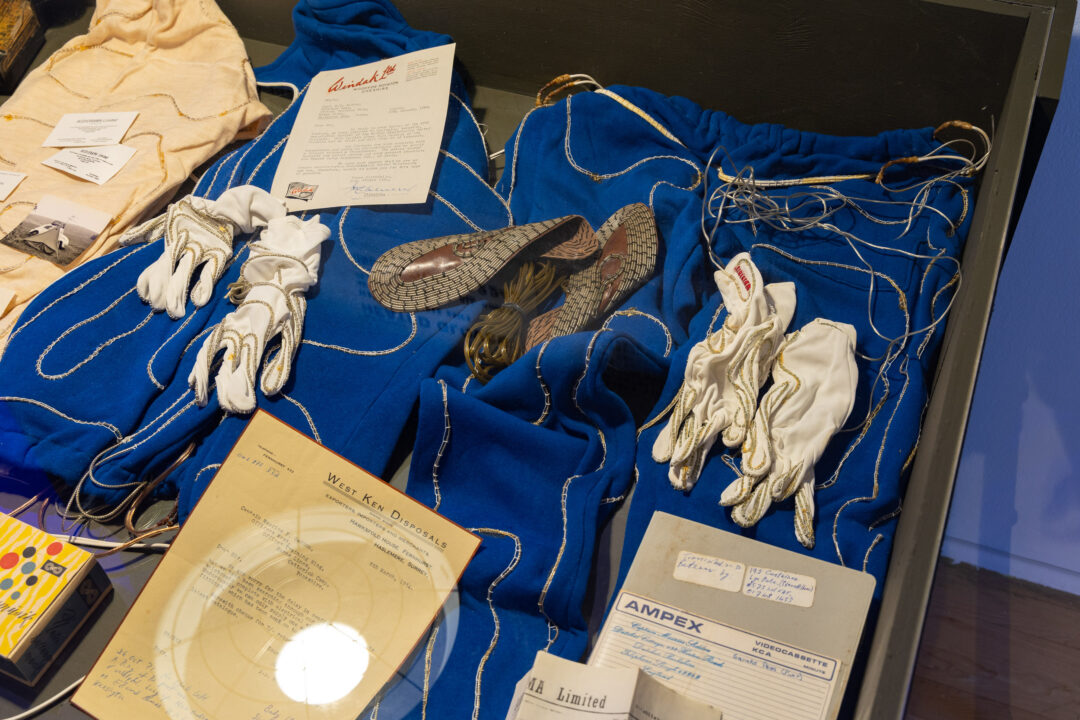
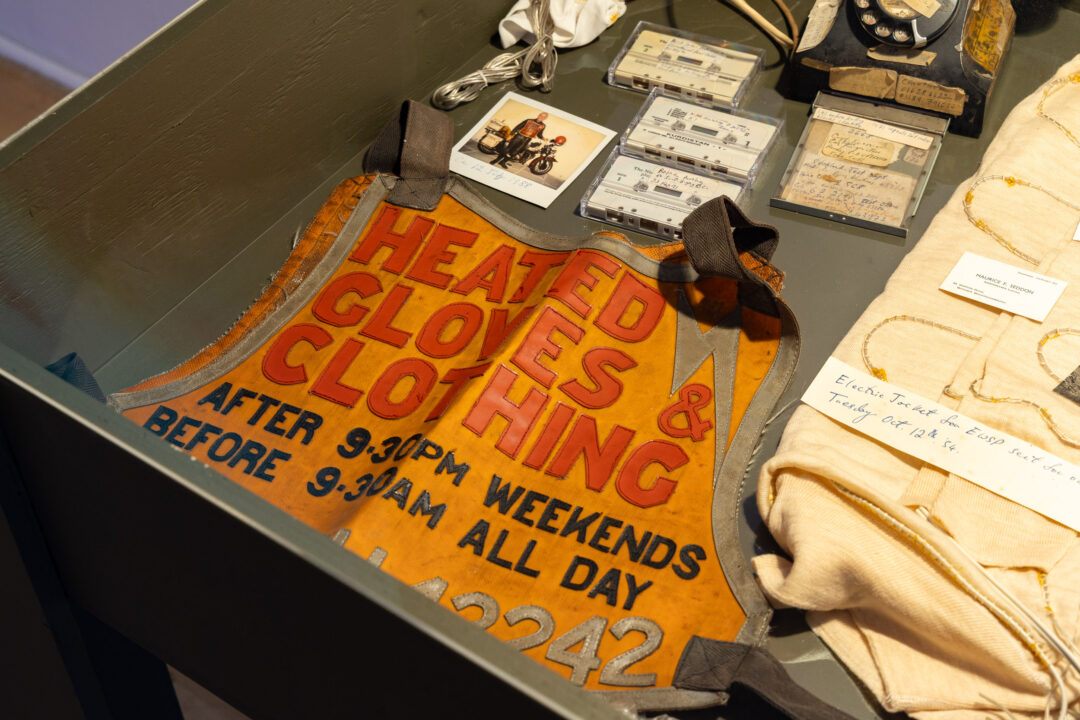
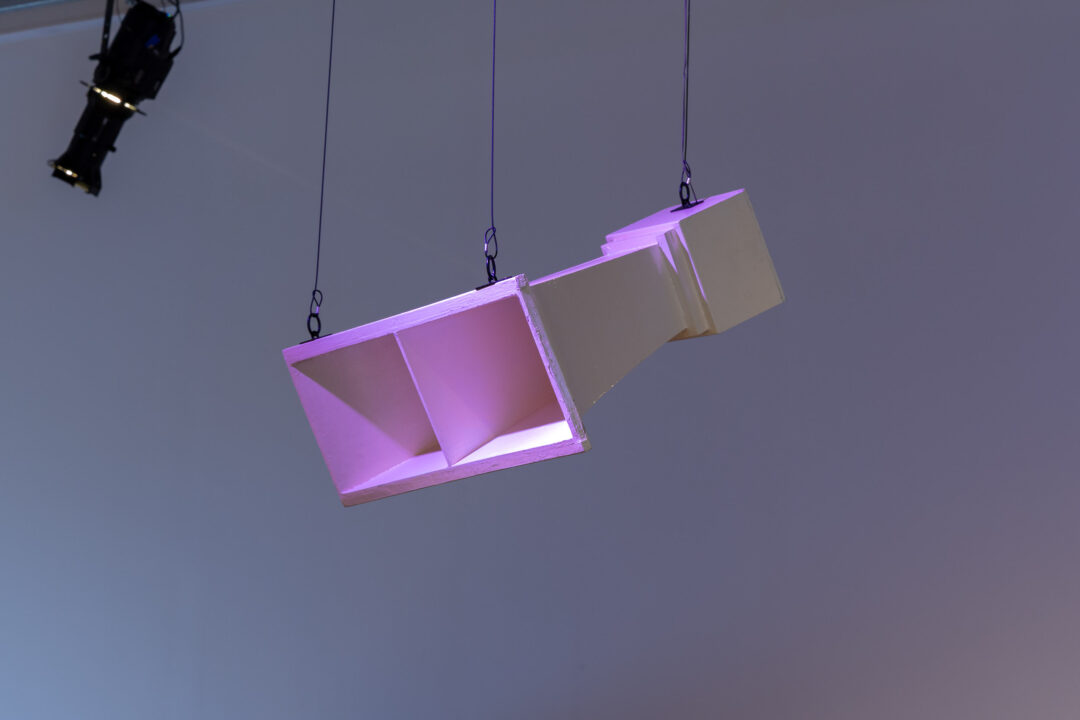
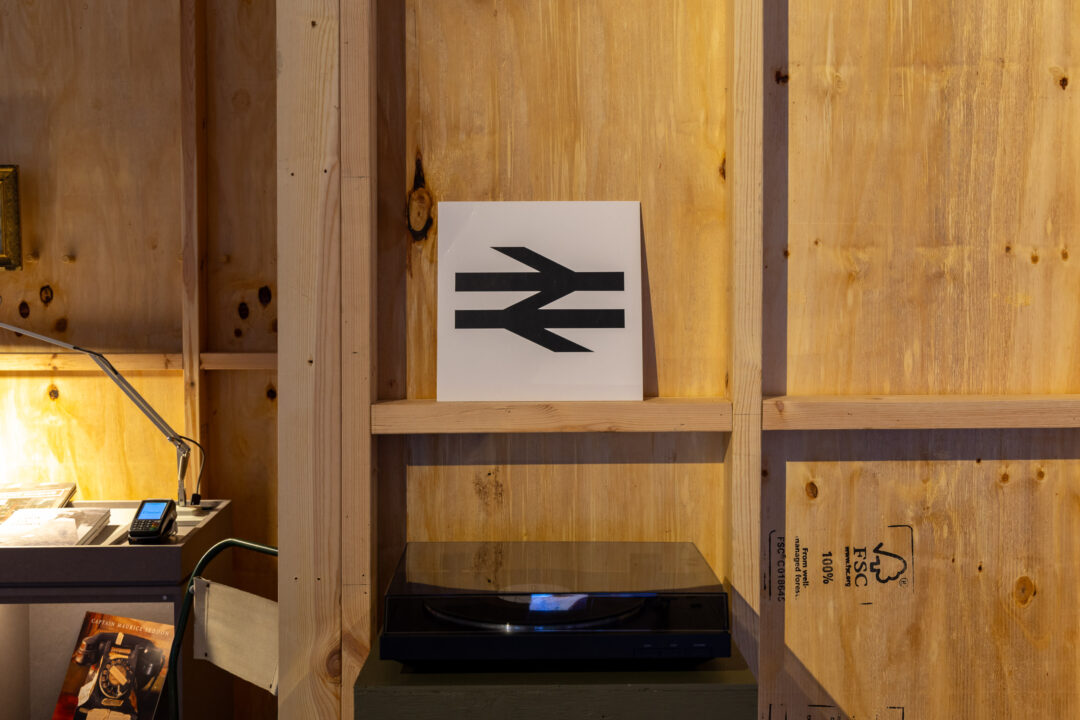
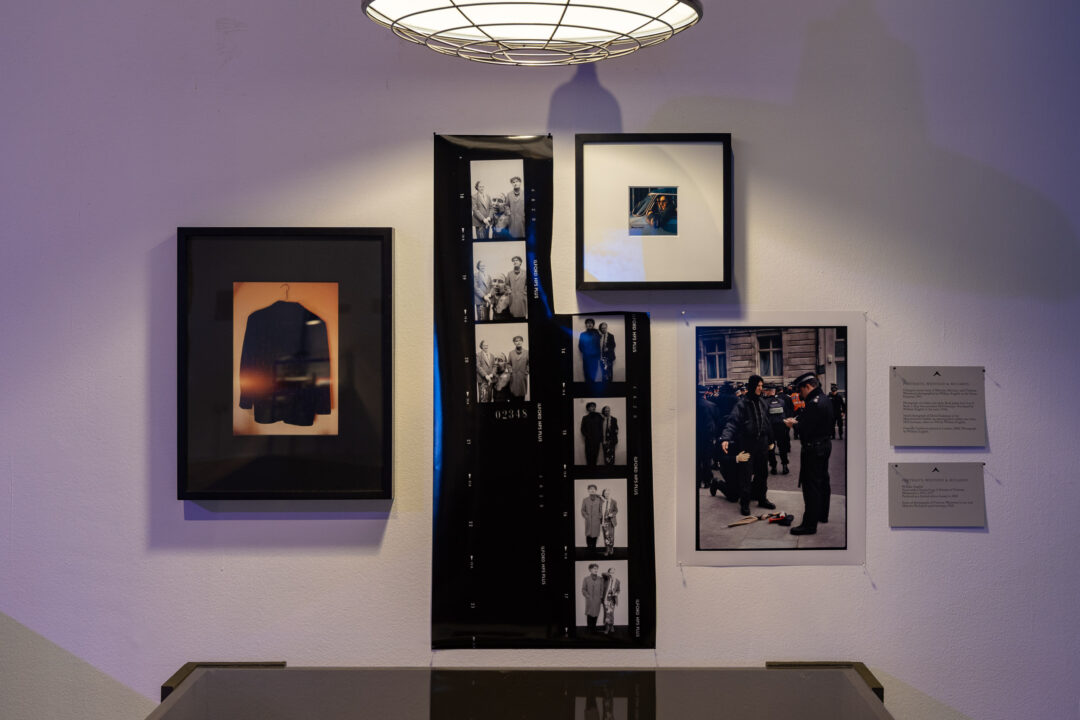
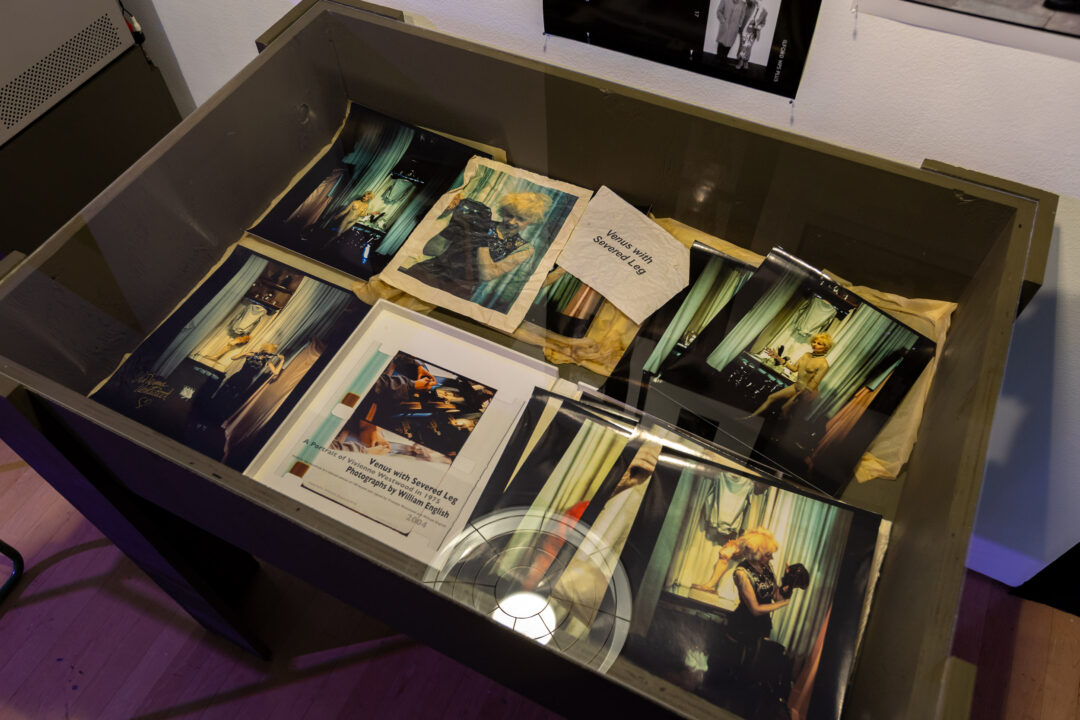
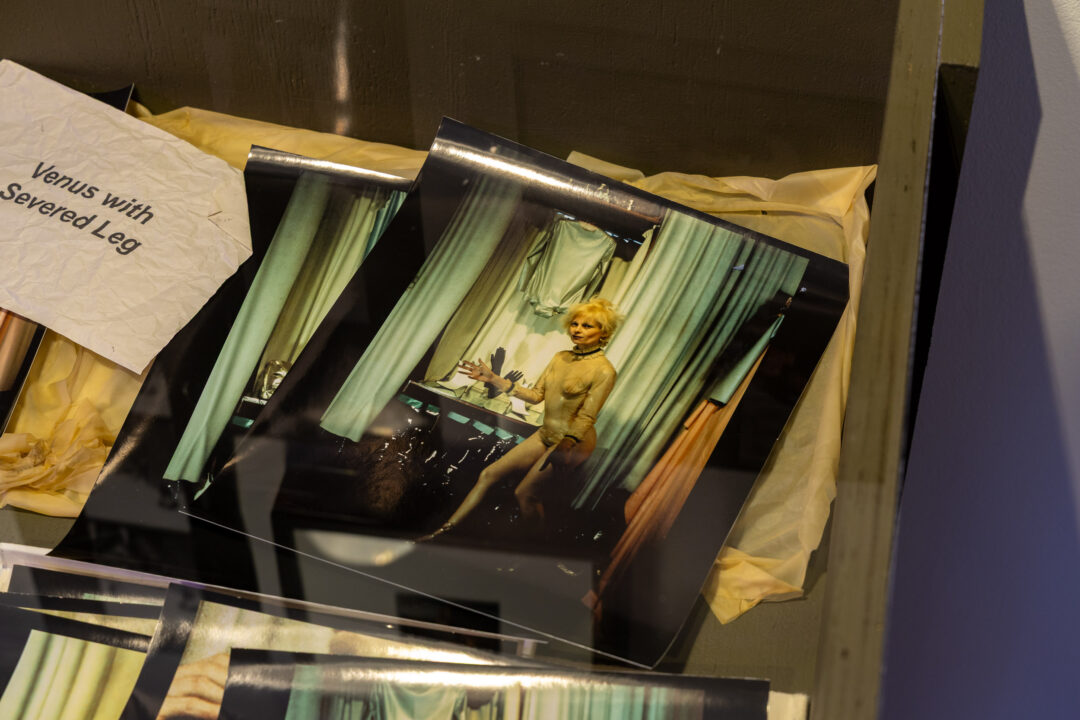
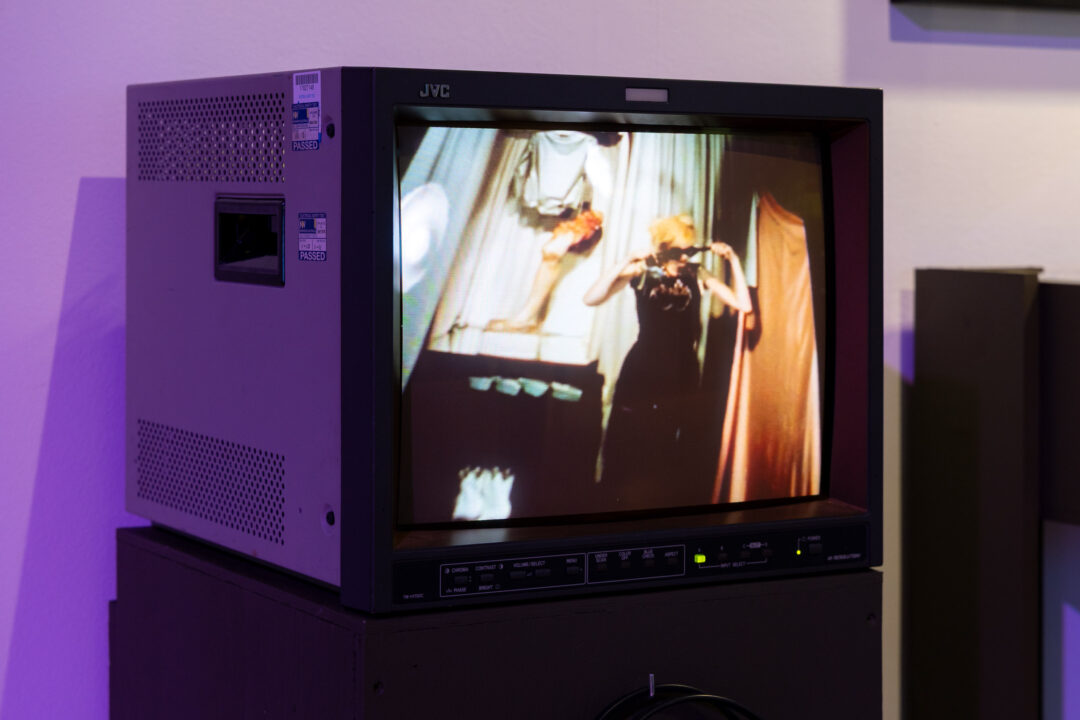
Image at top of page: Left – William English in Dining Room kitchen circa 1982 photograph by Sandra Cross / Right – Sandra Cross in Dining Room kitchen circa 1982 photograph by William English.